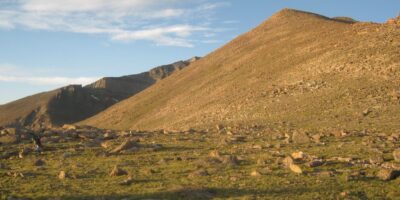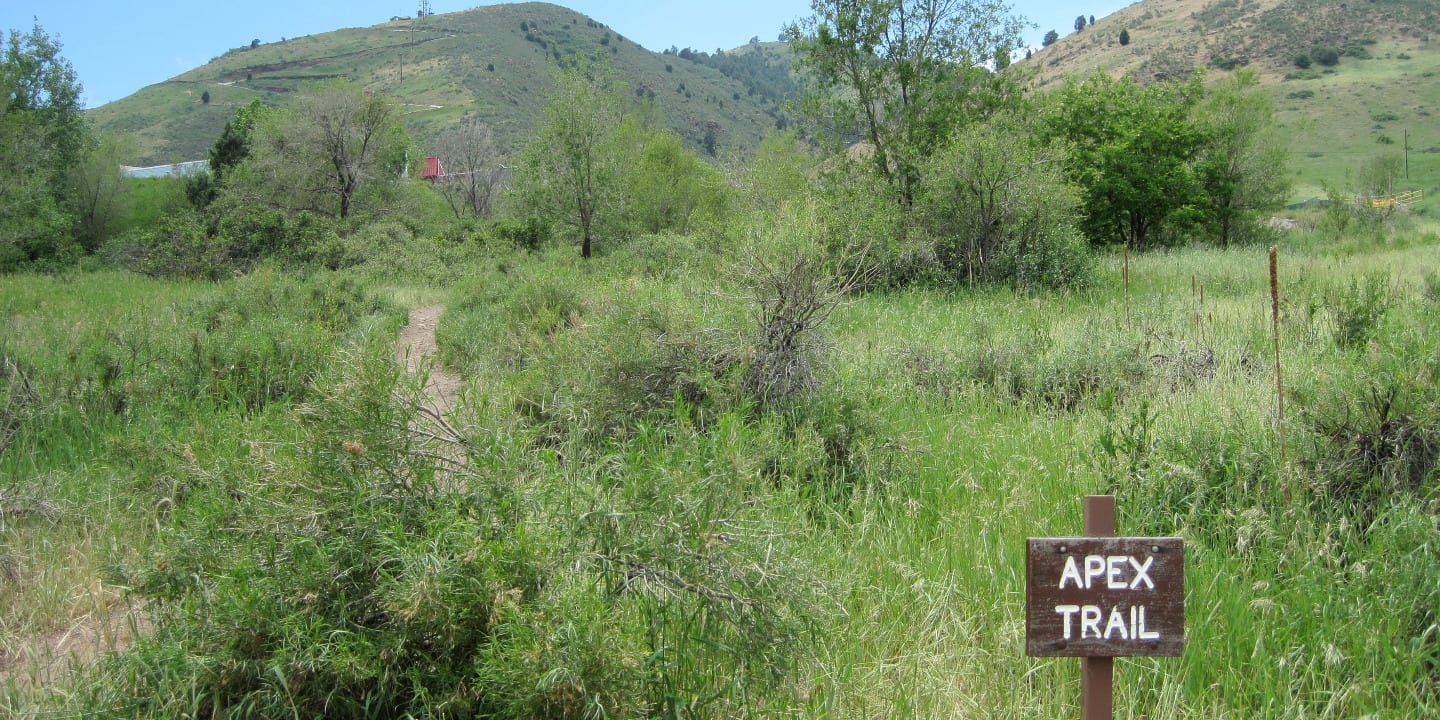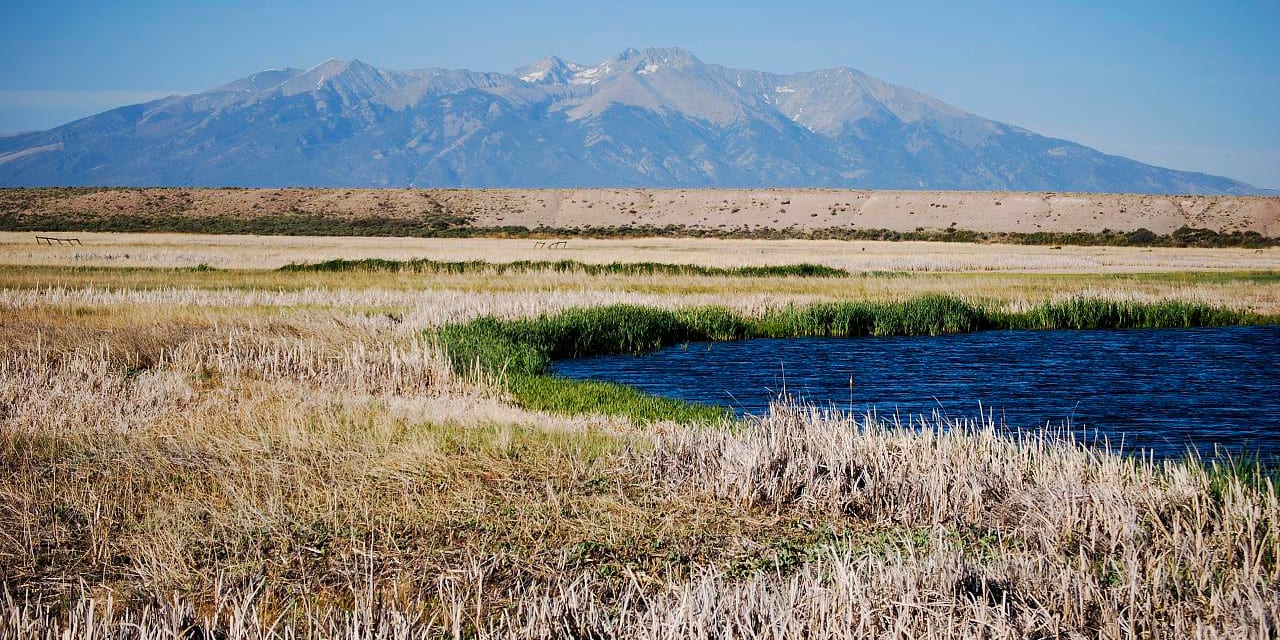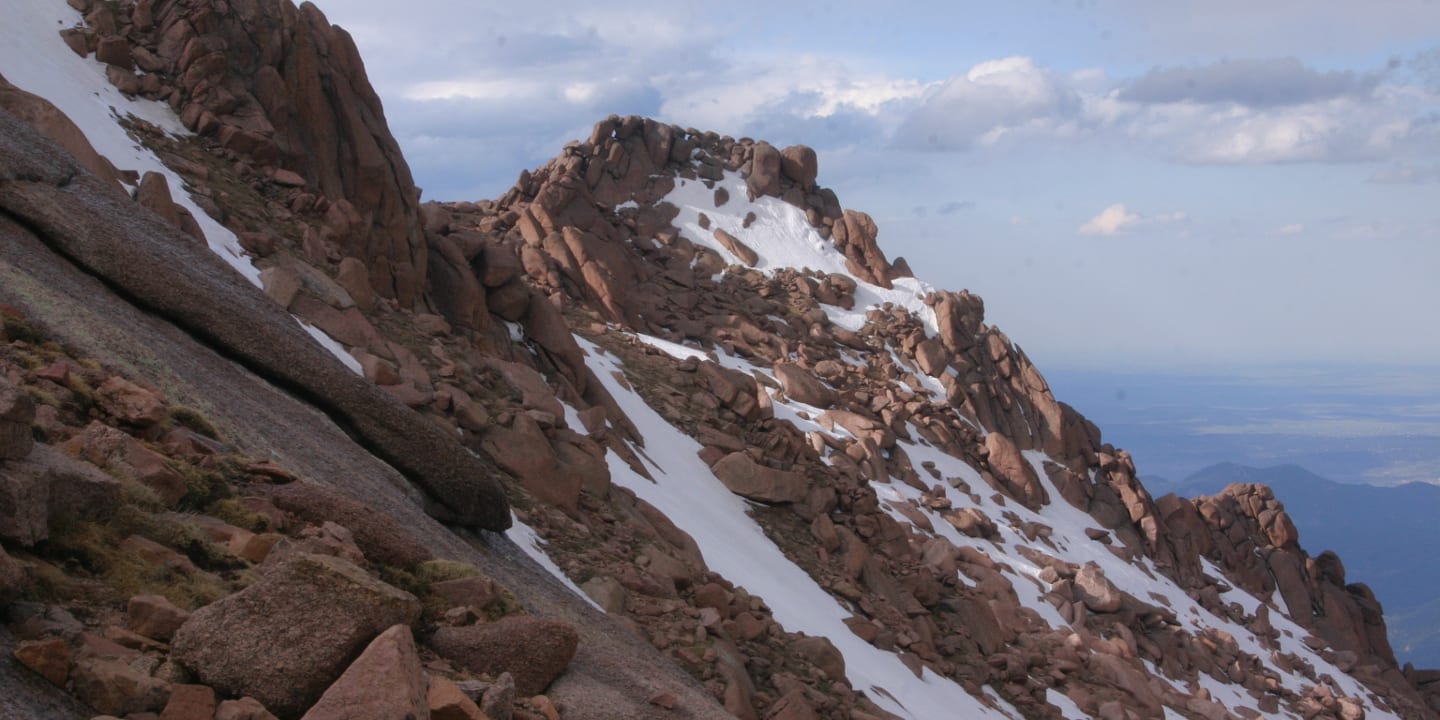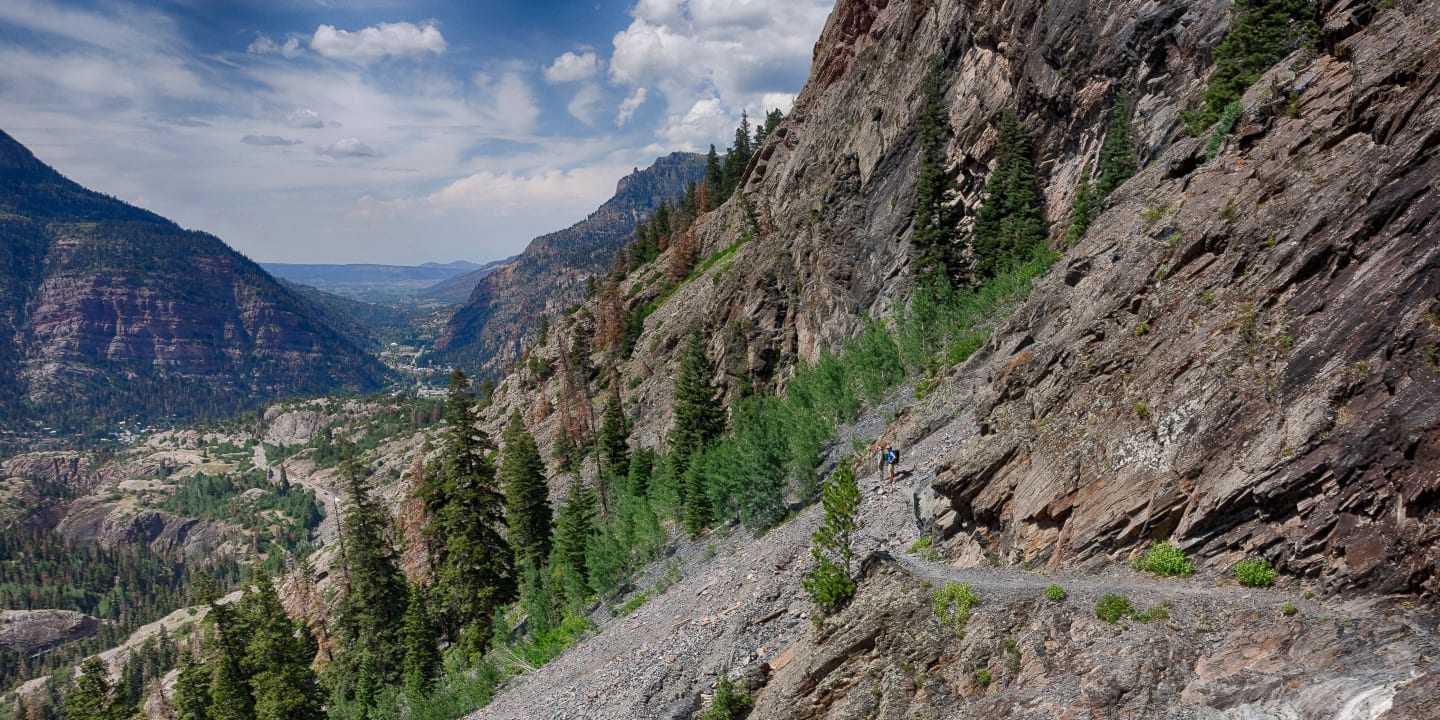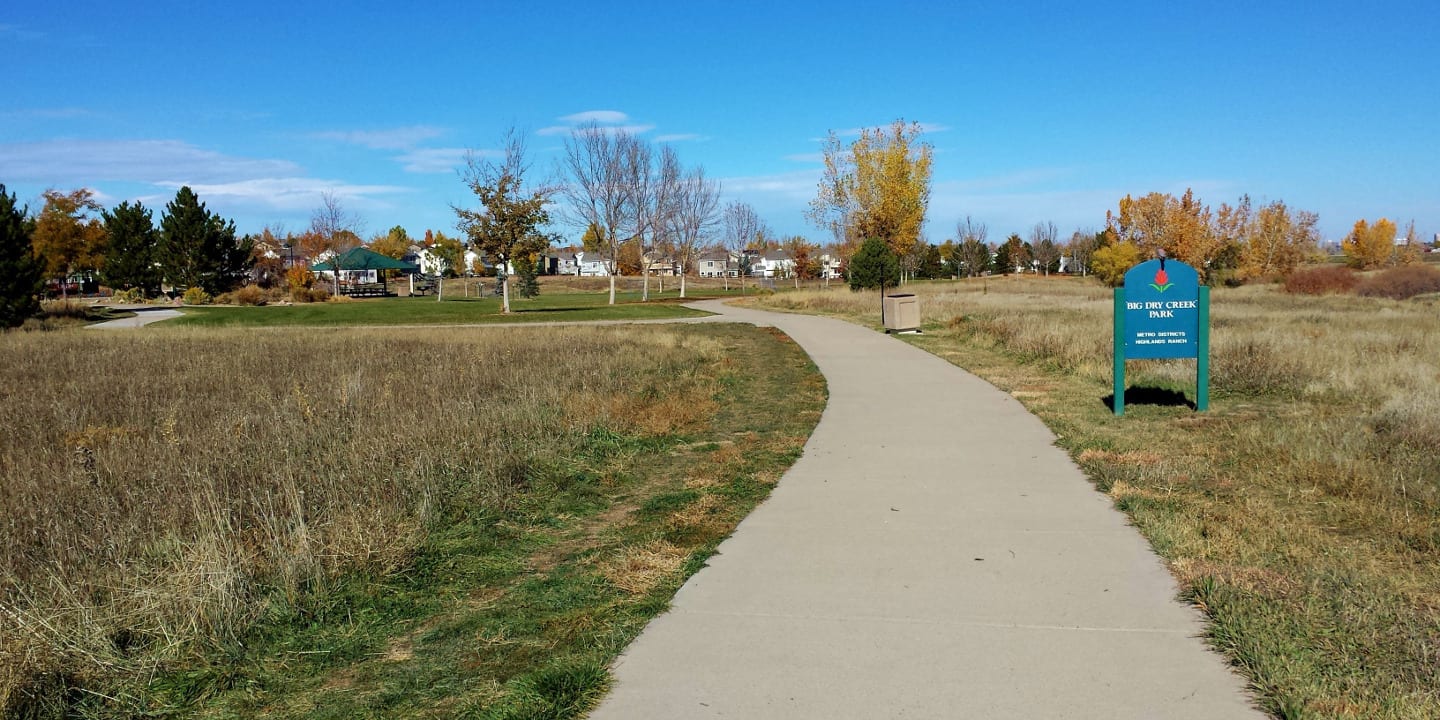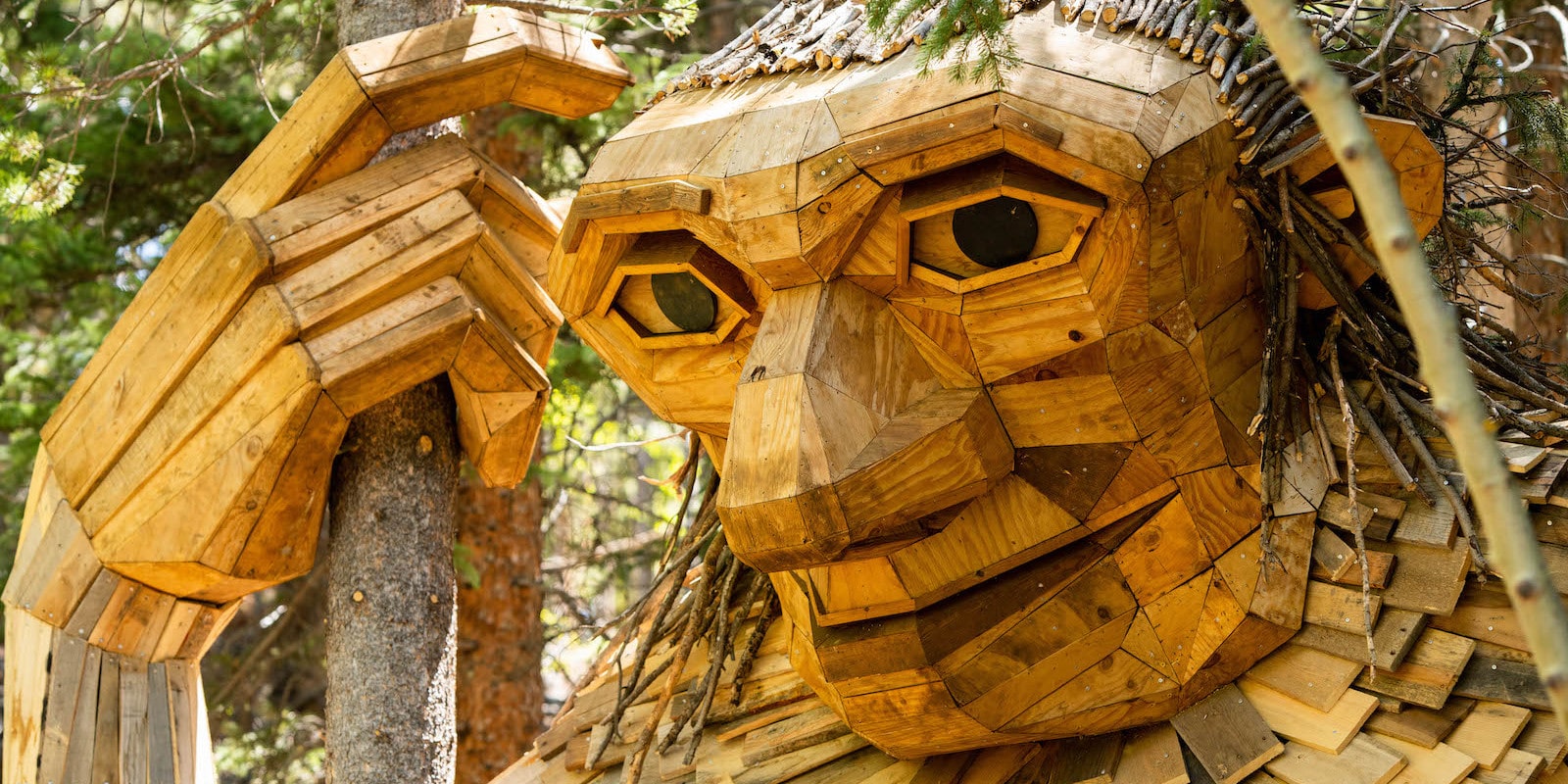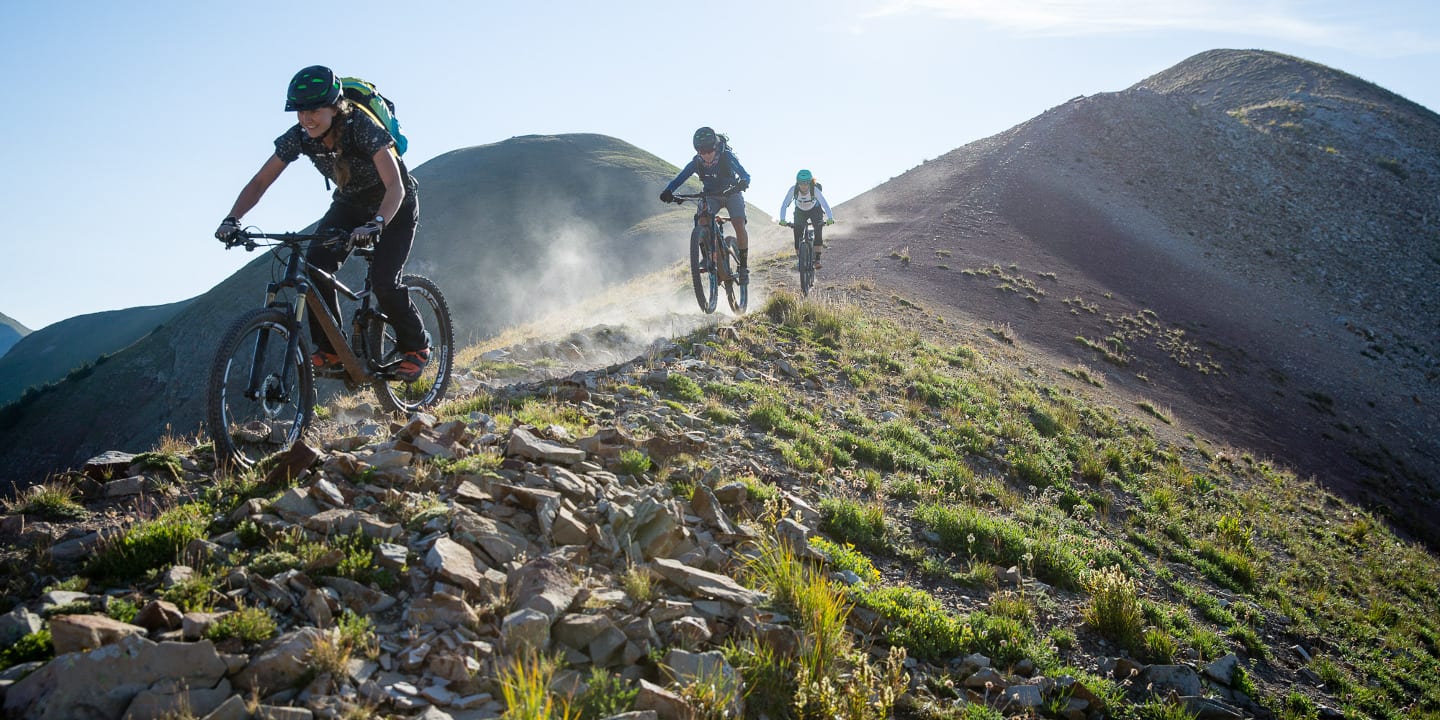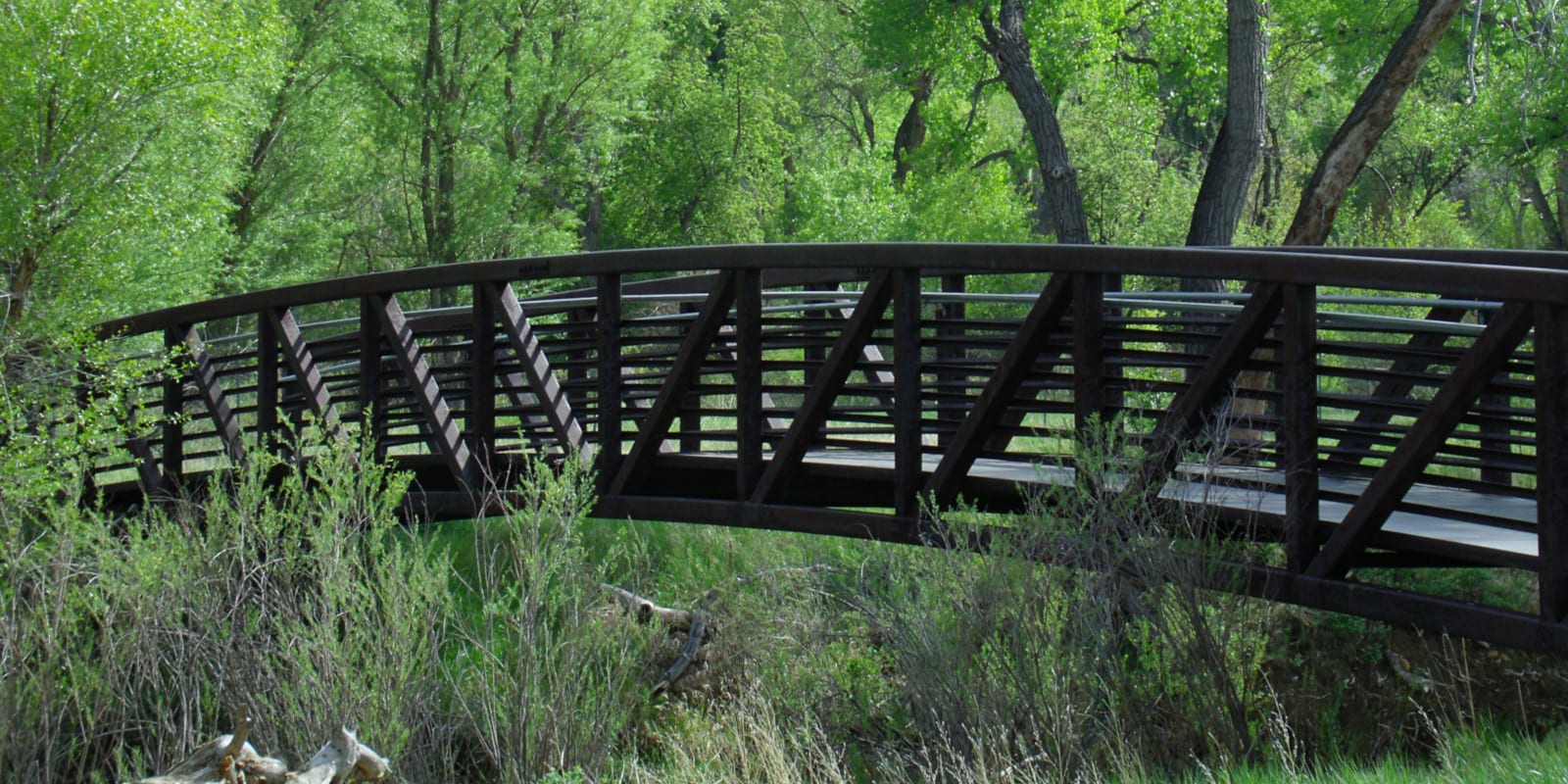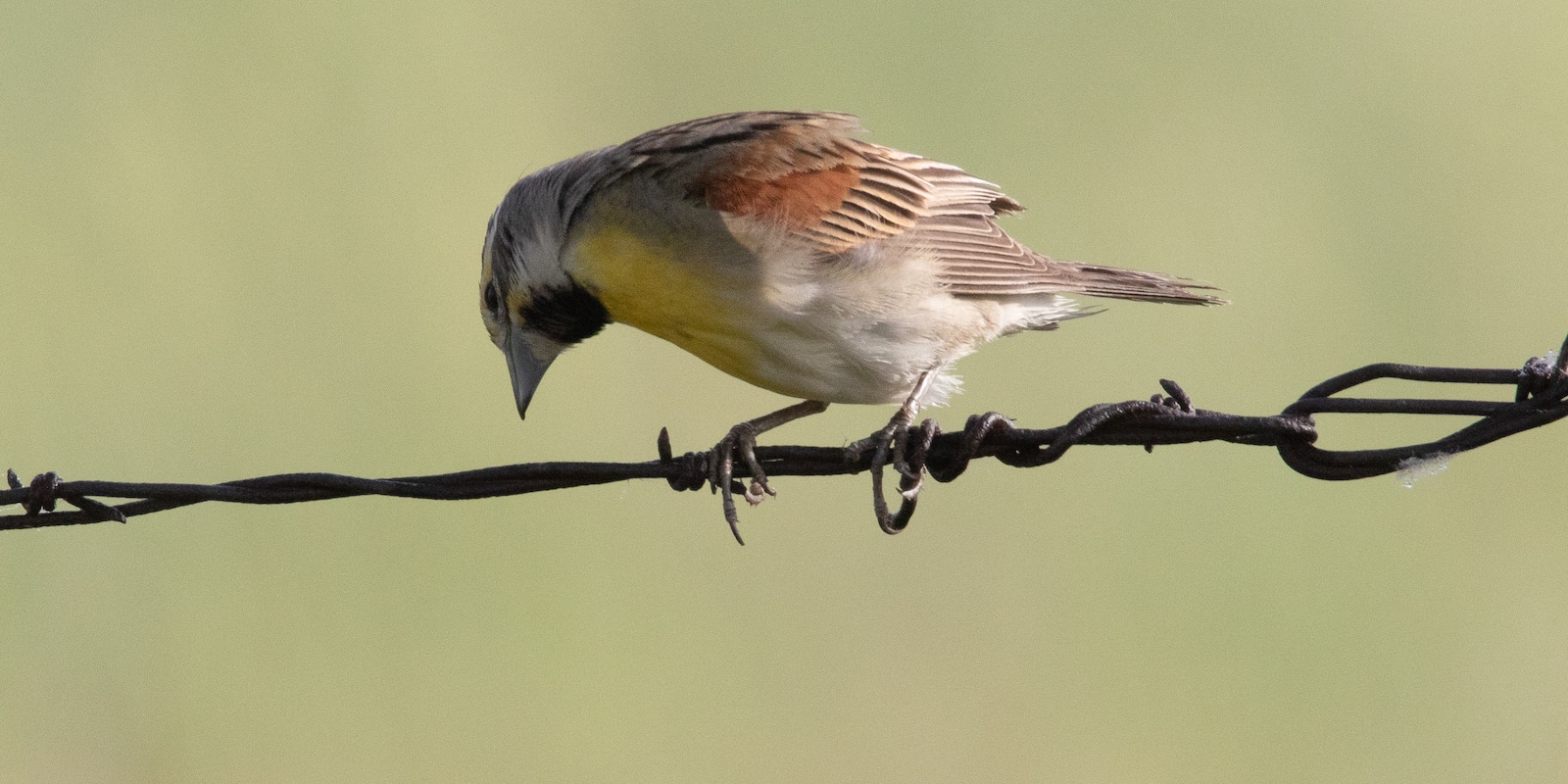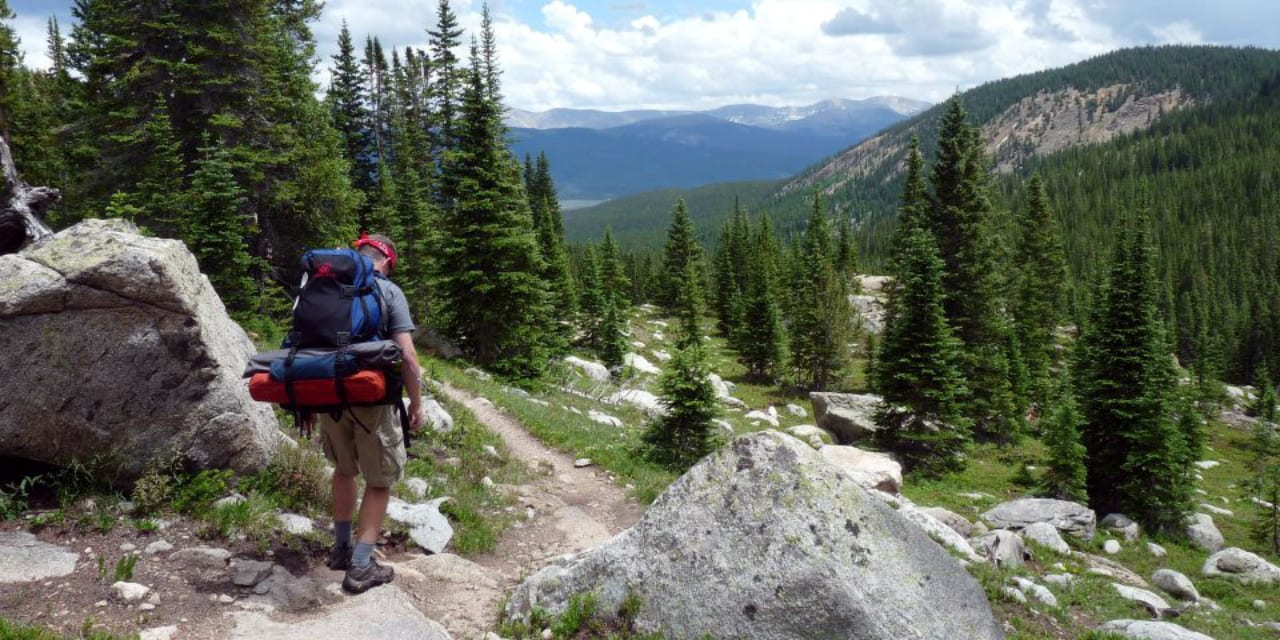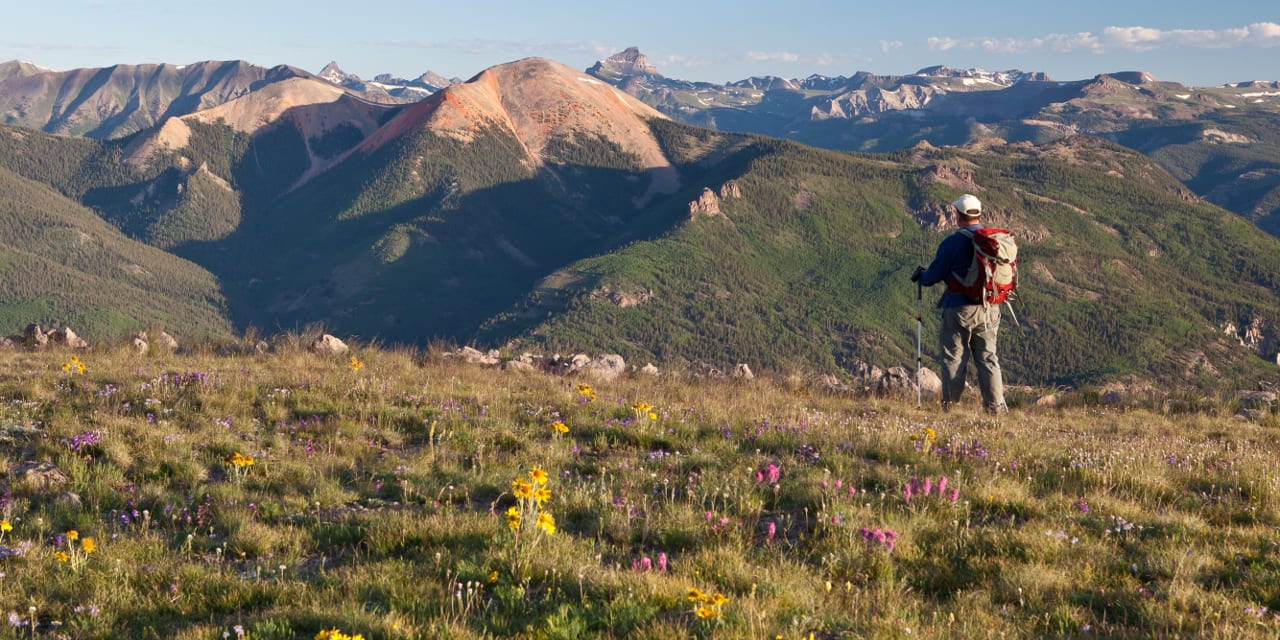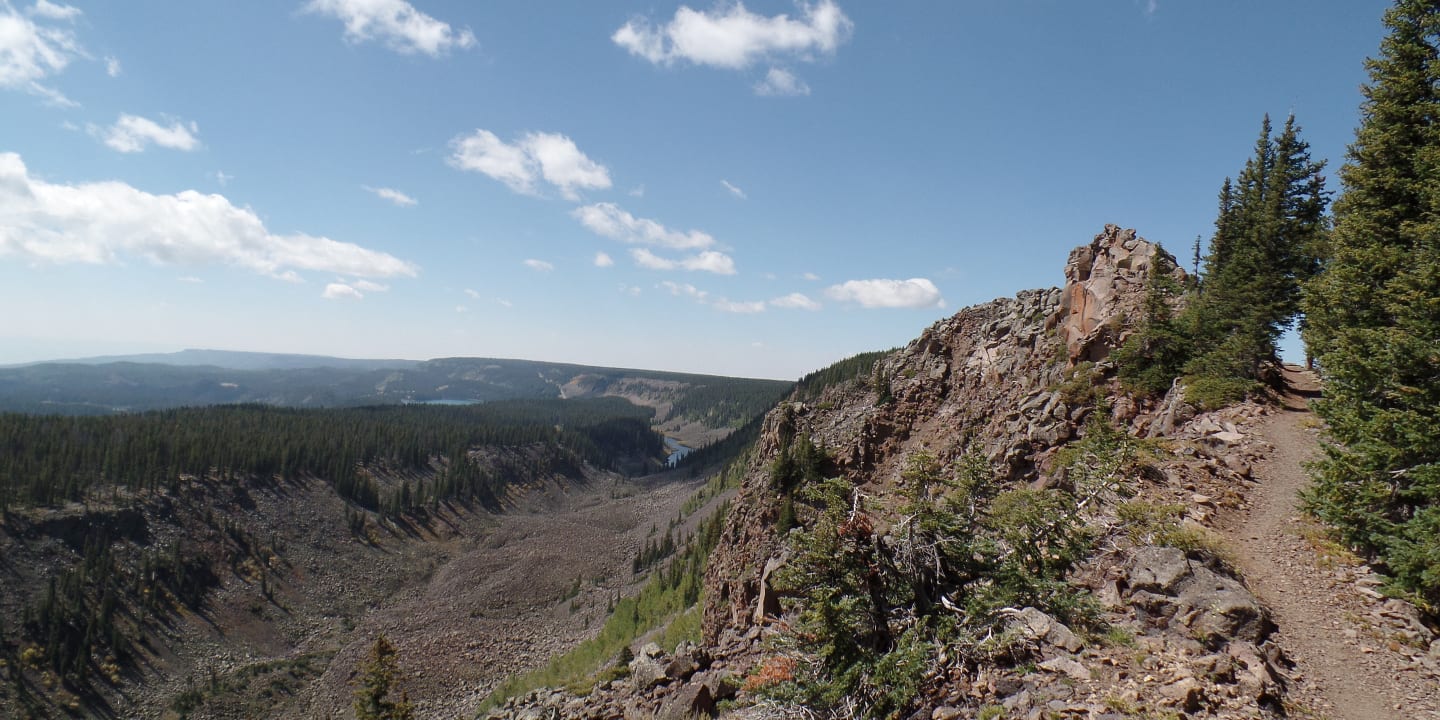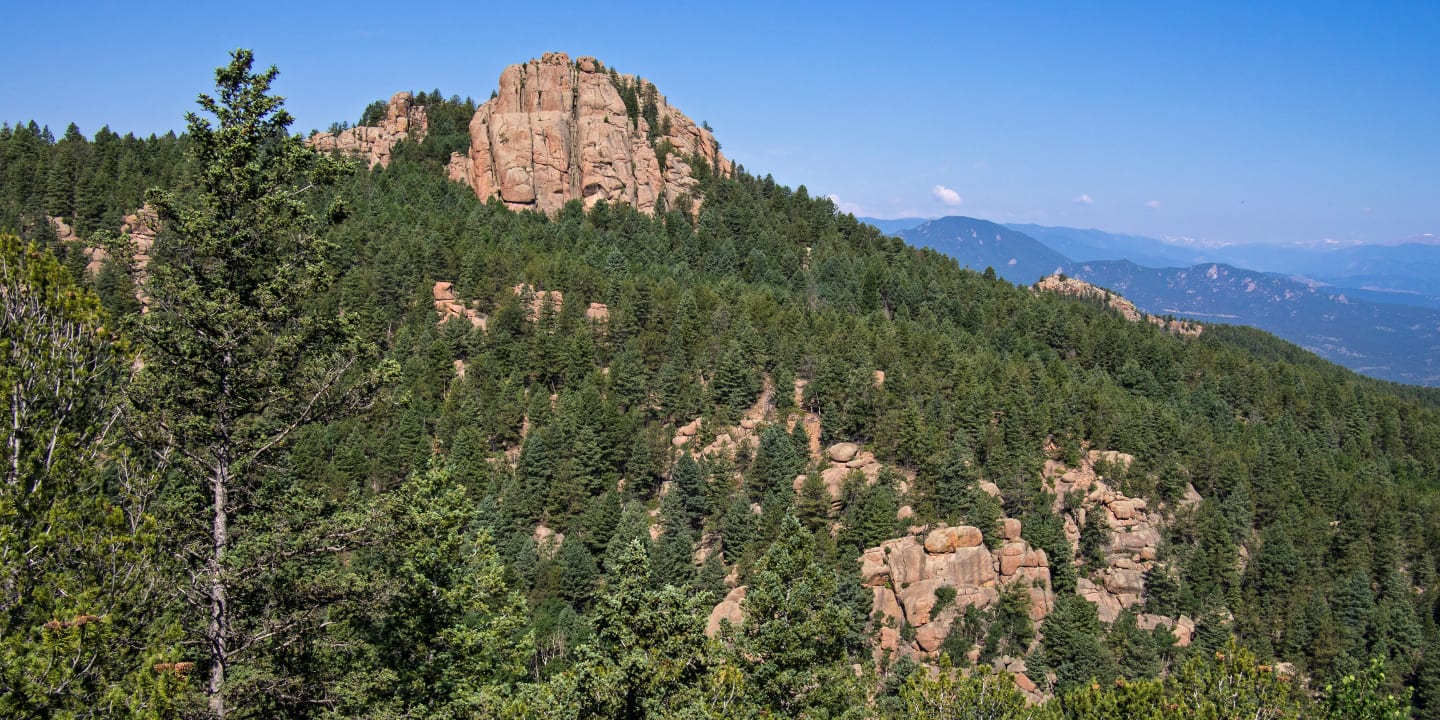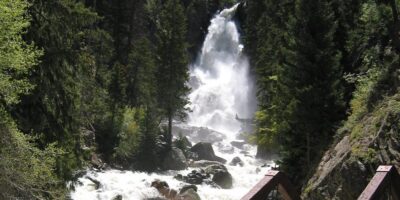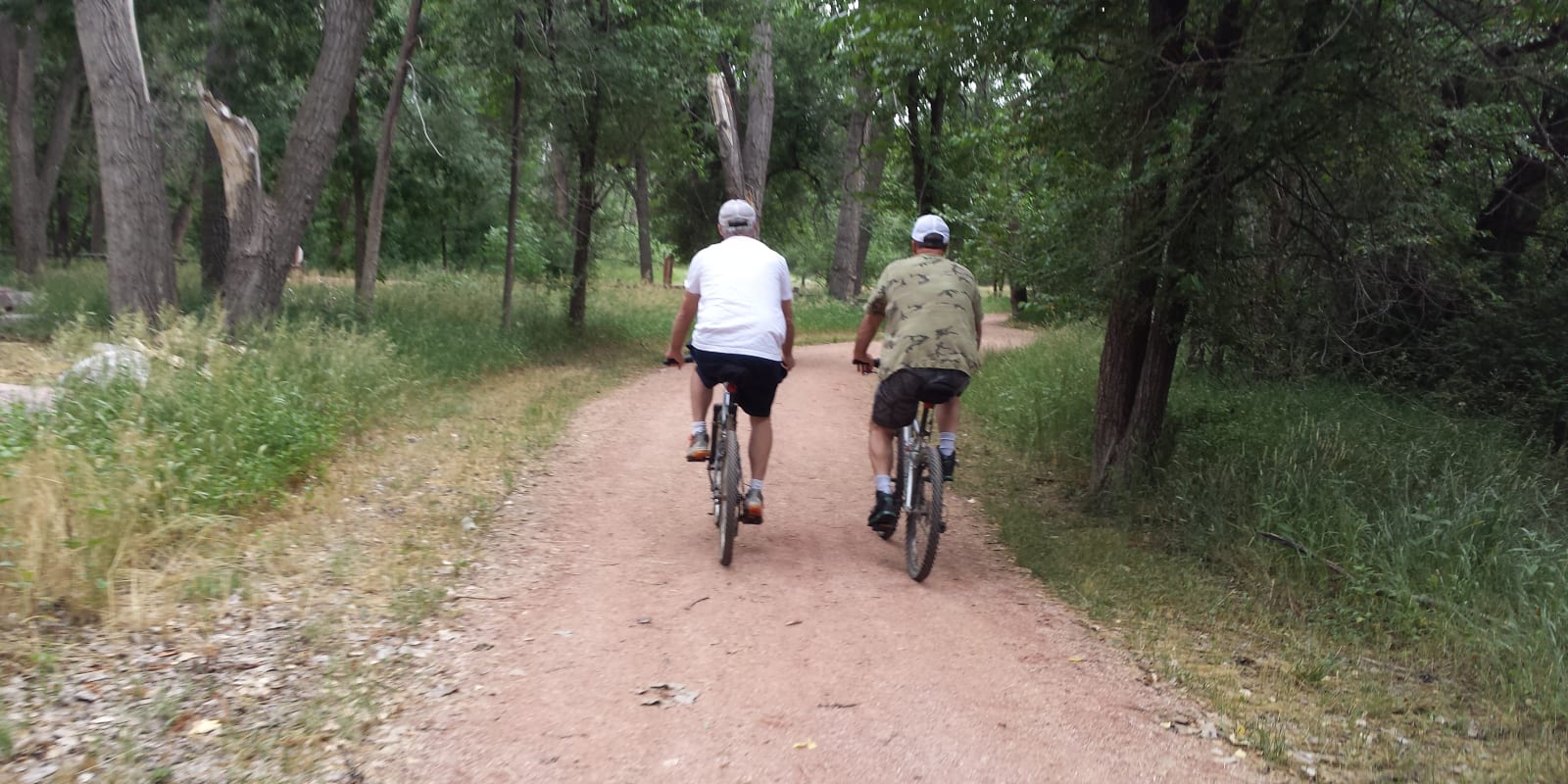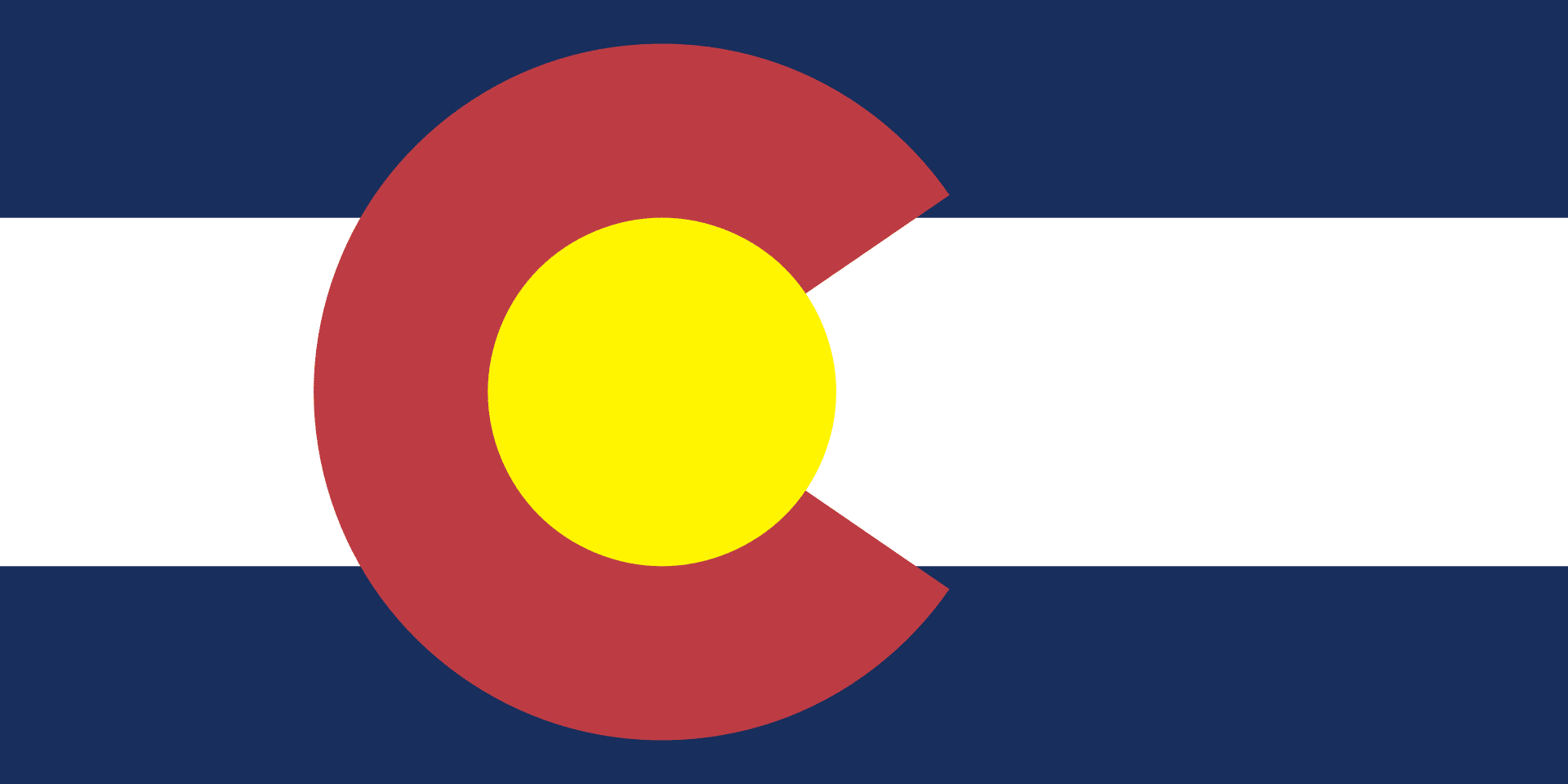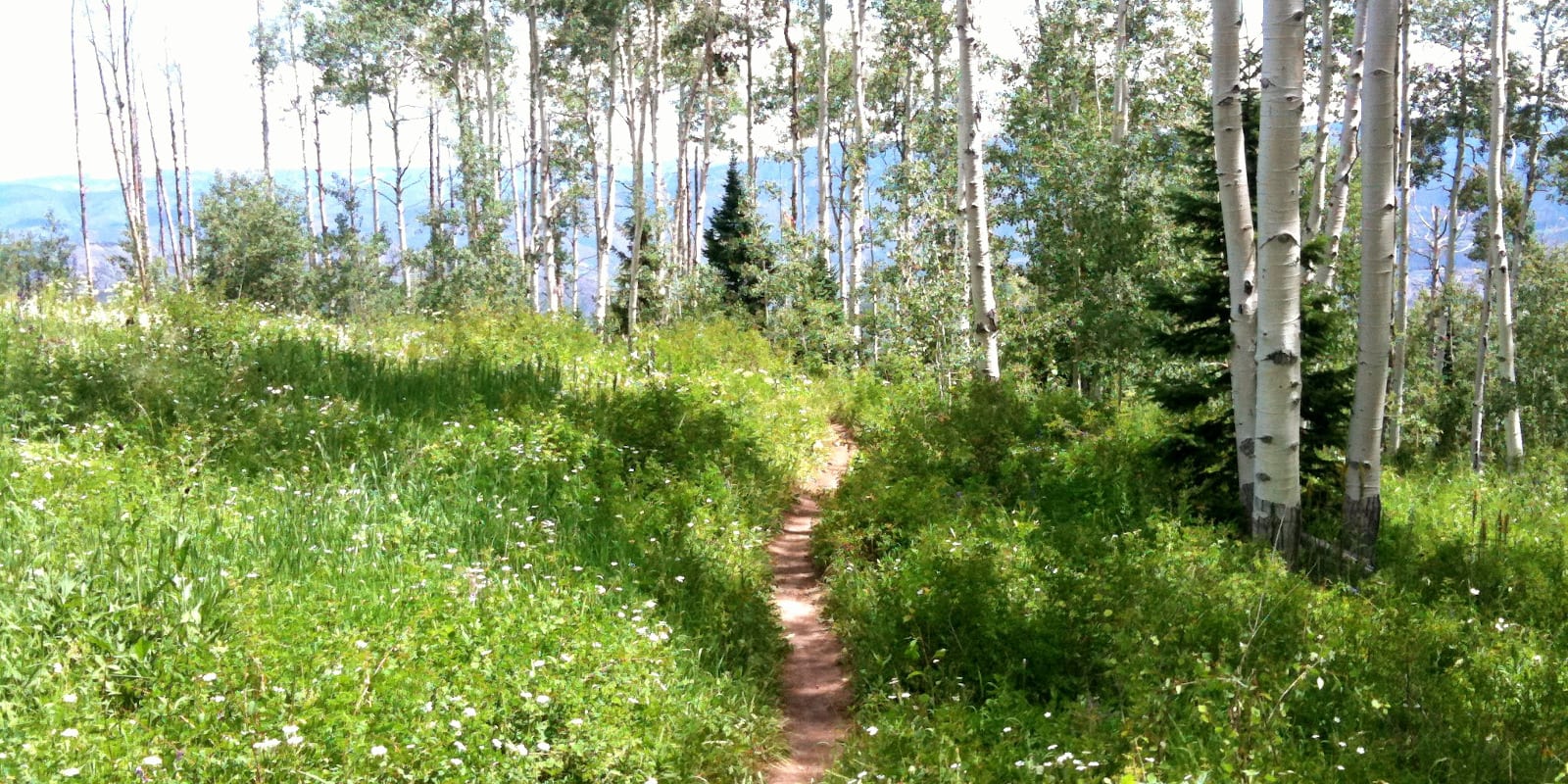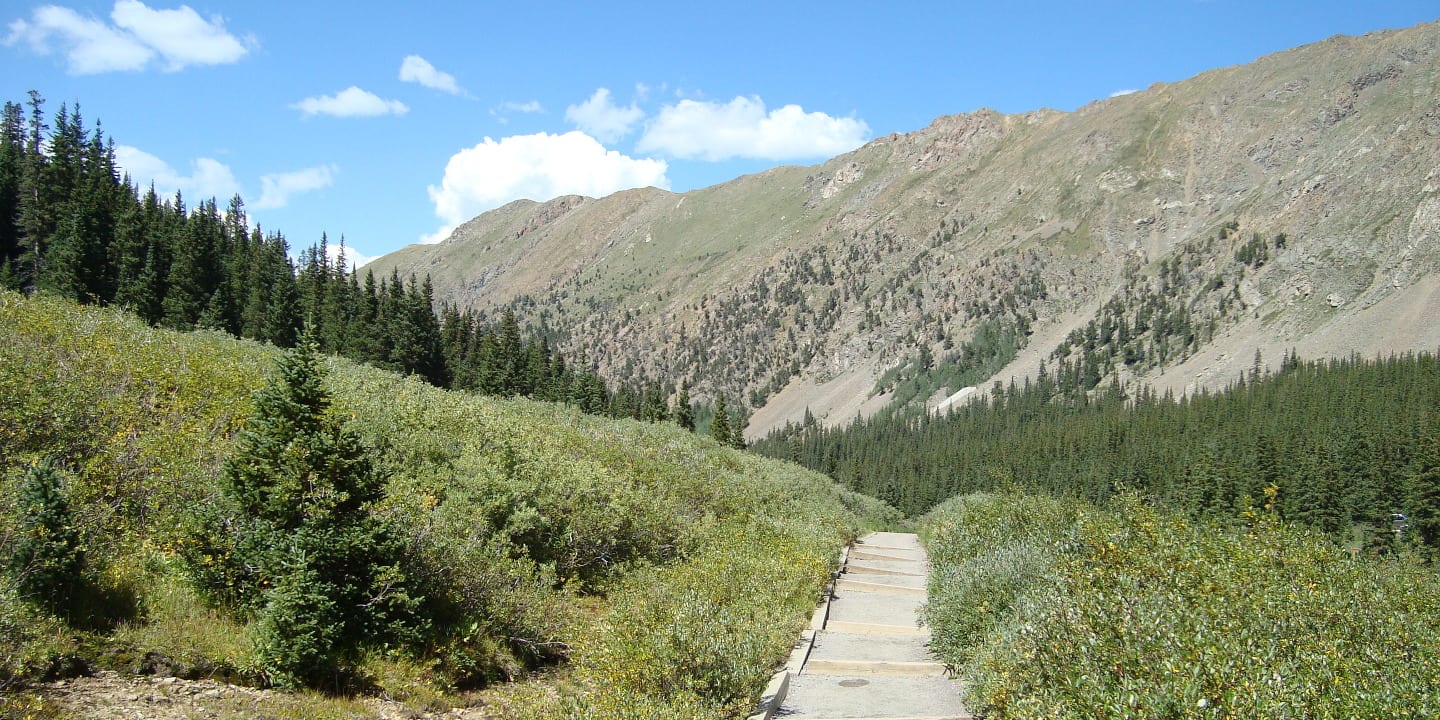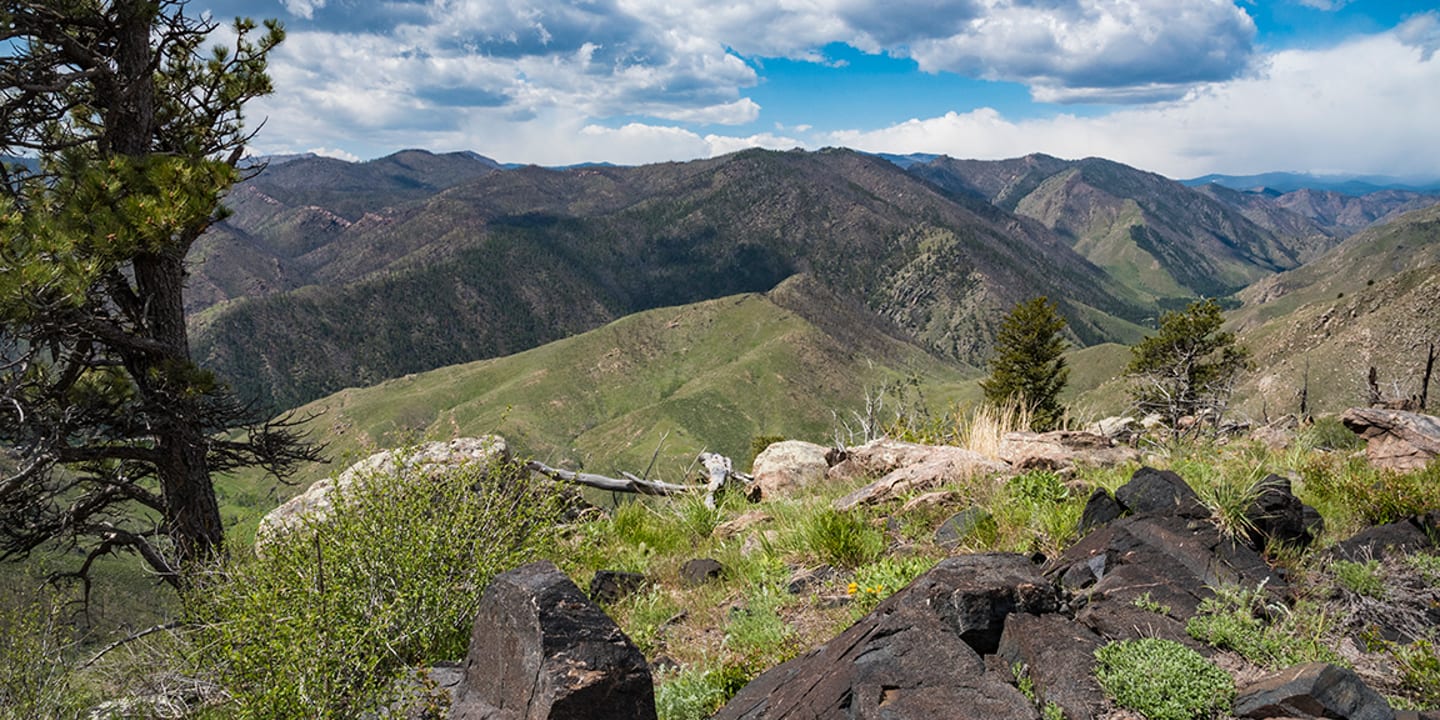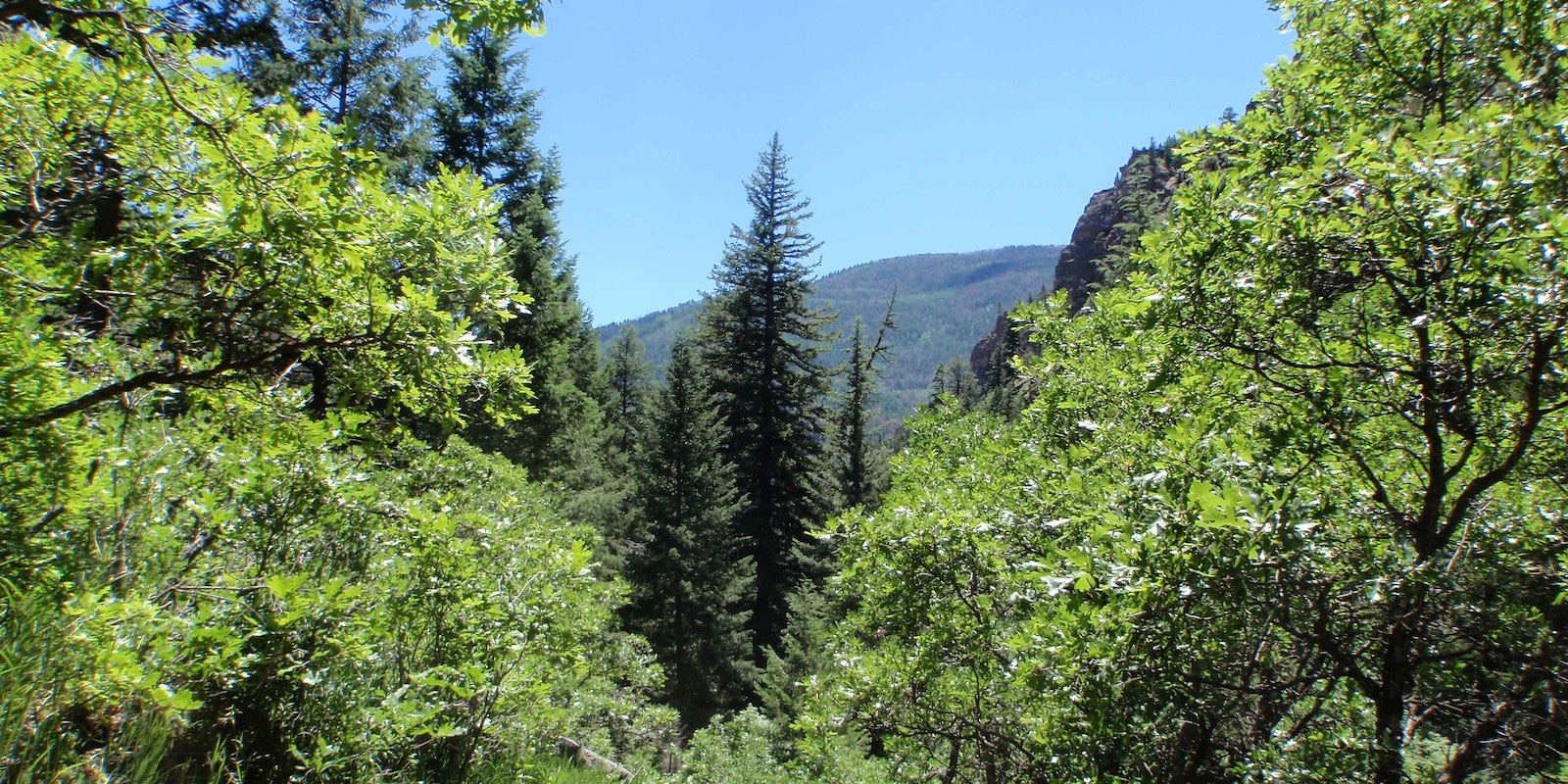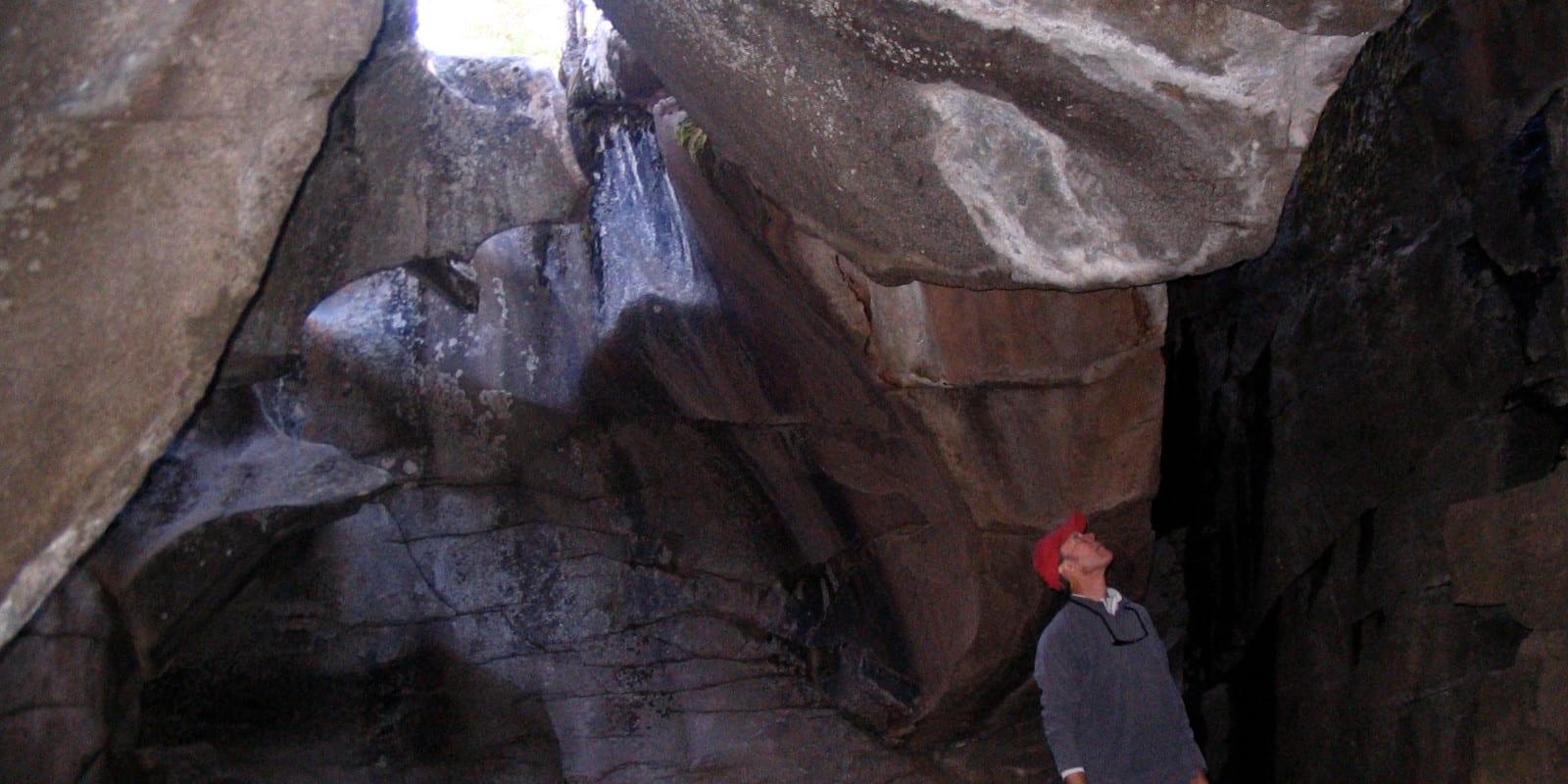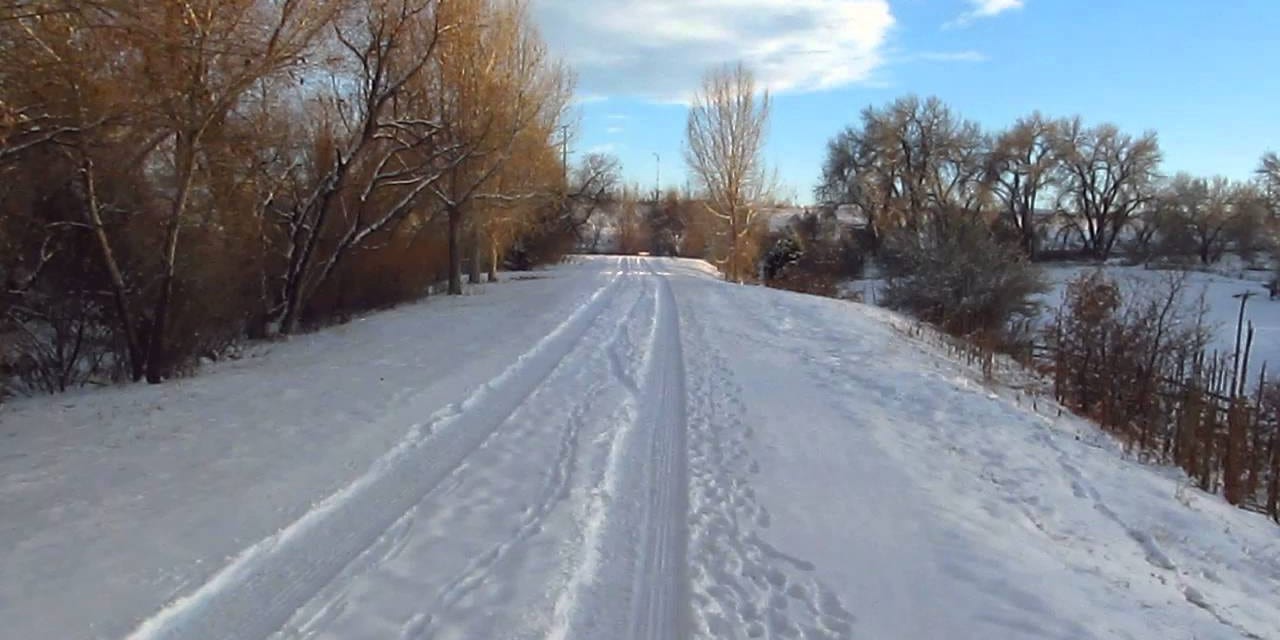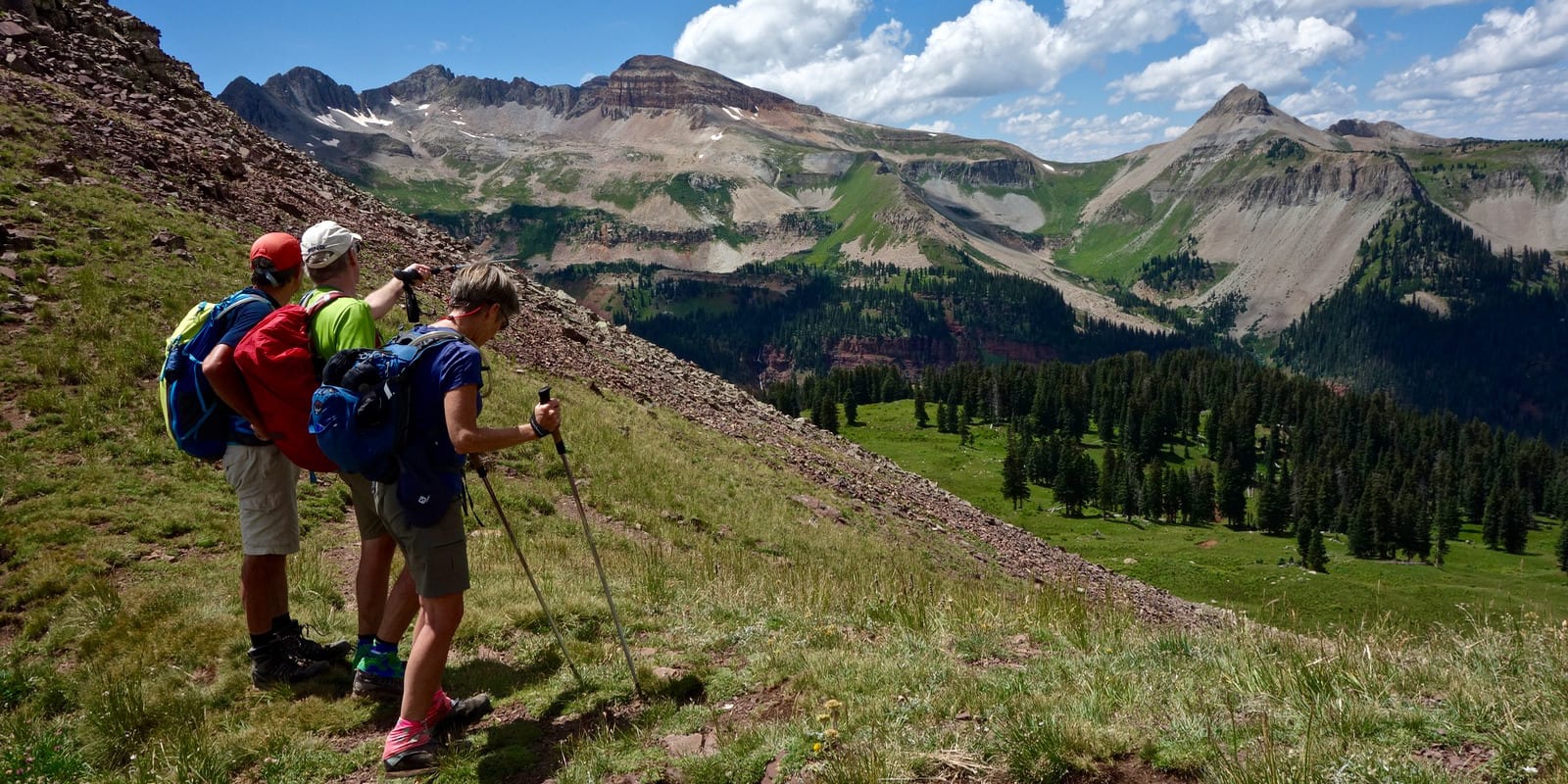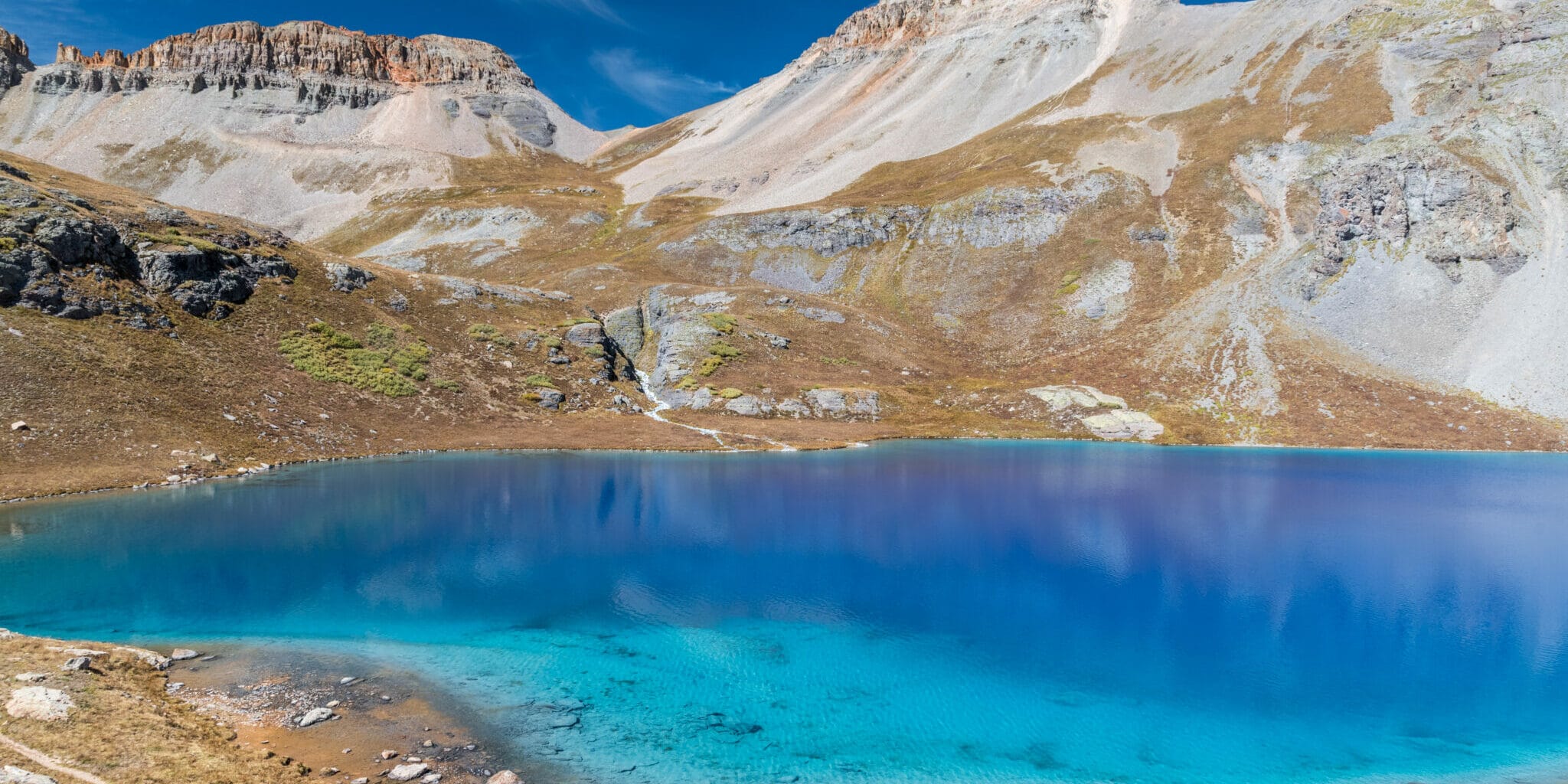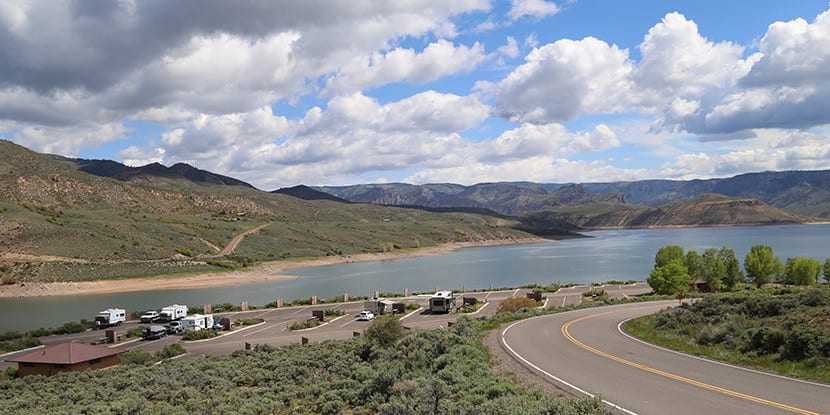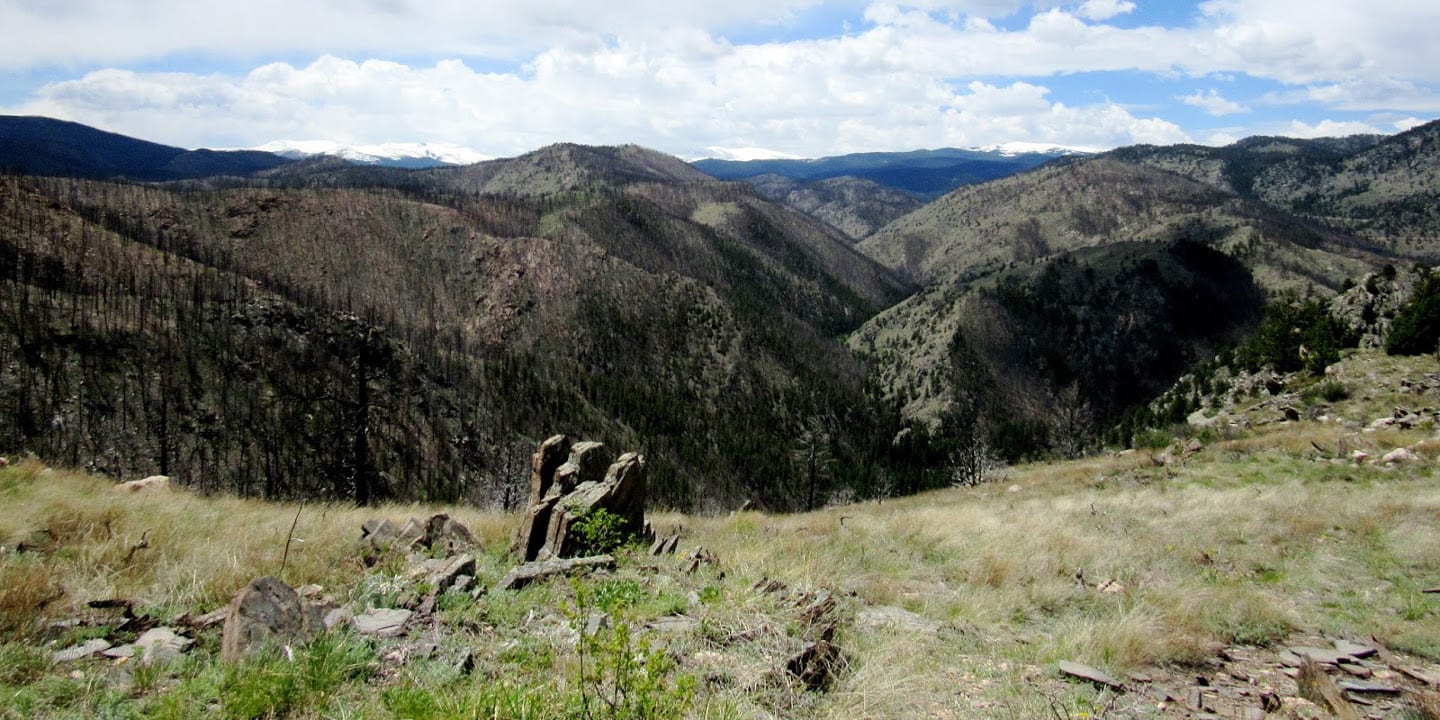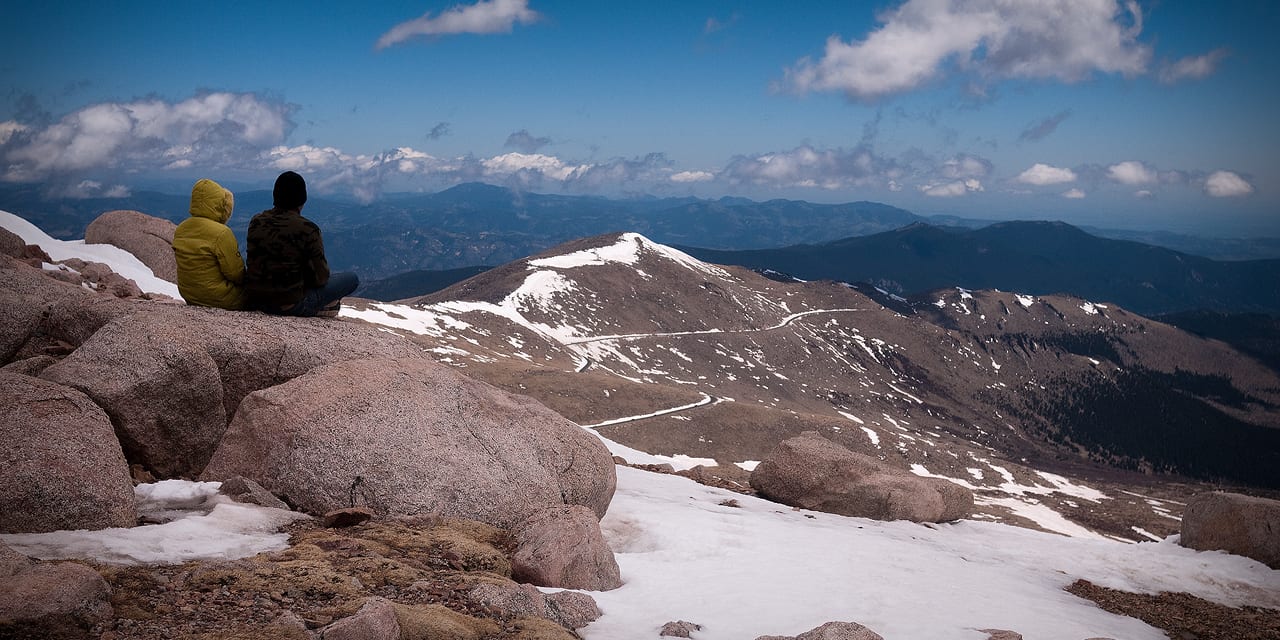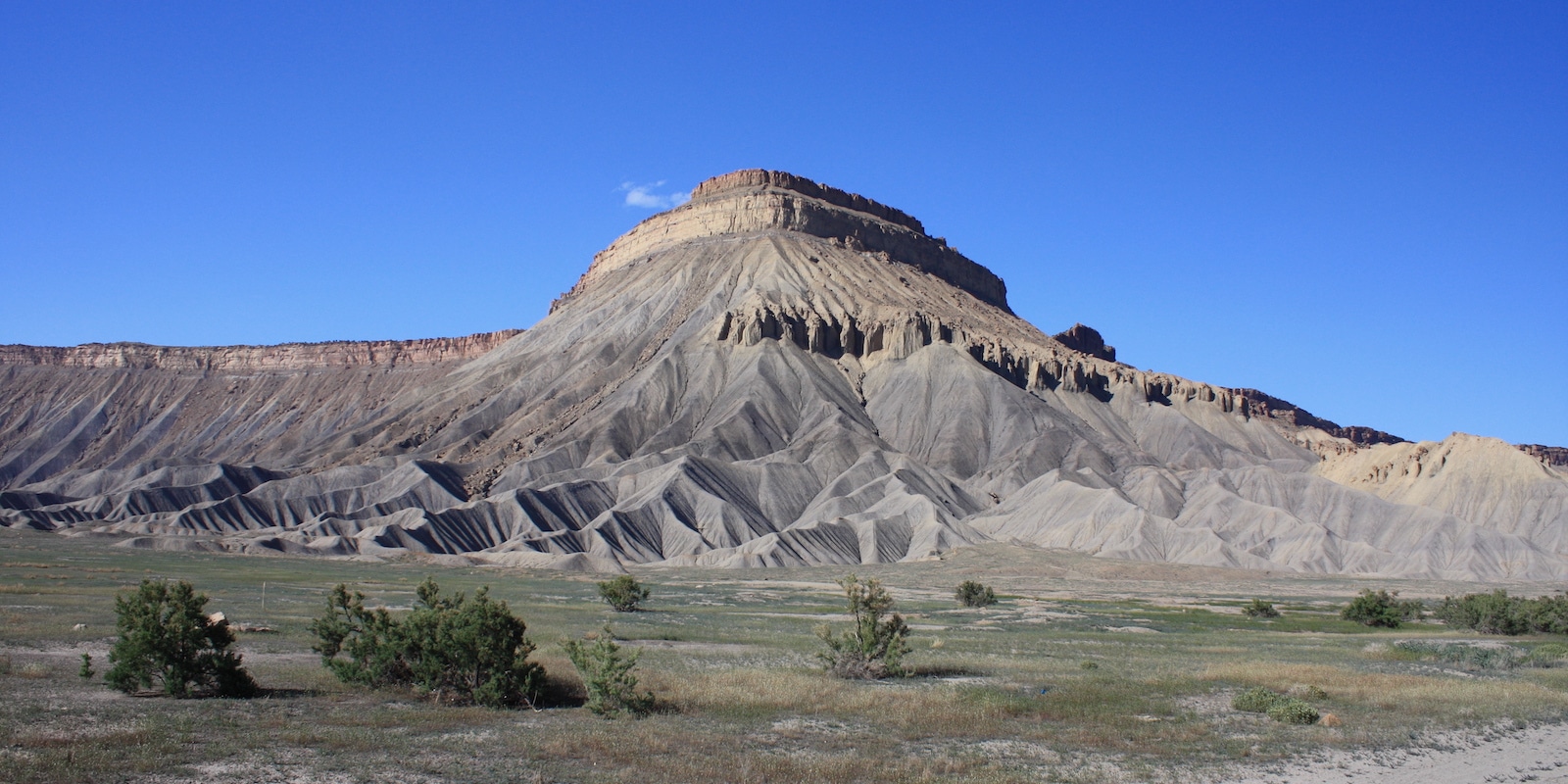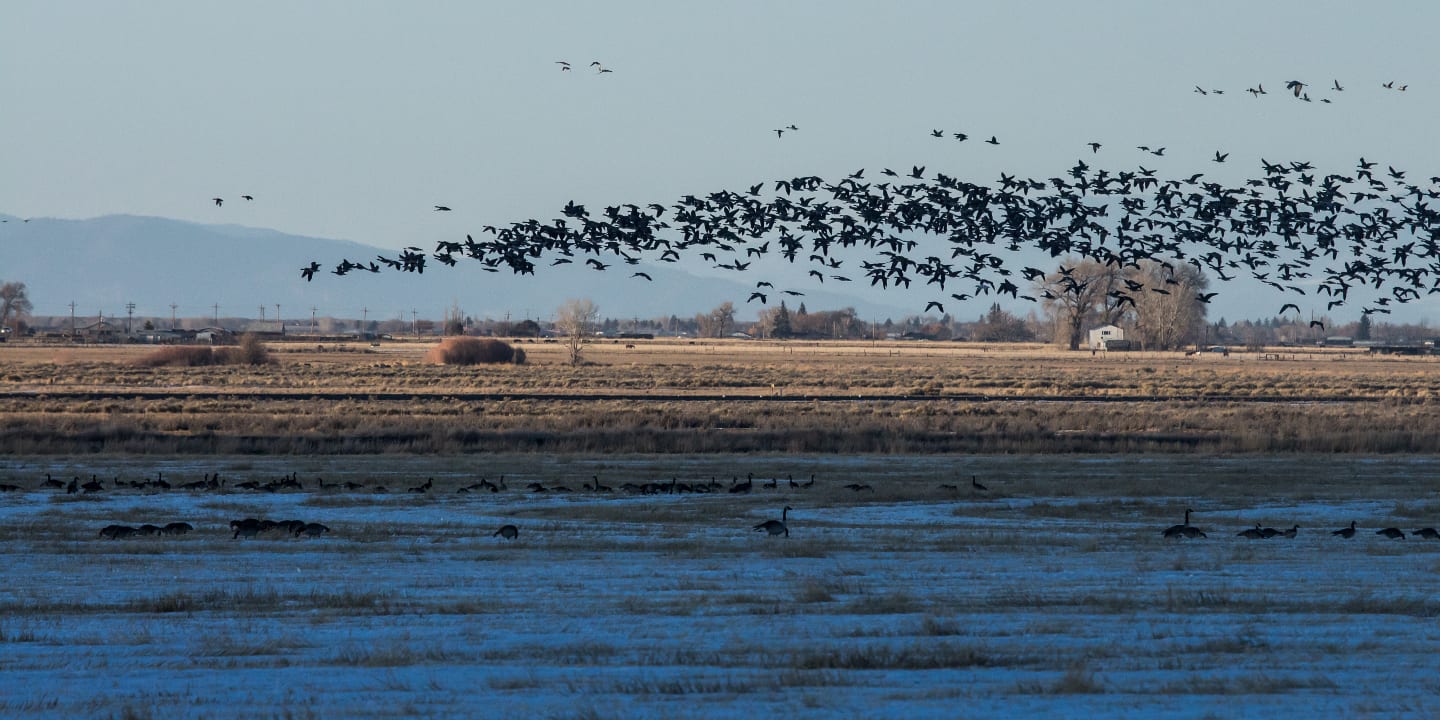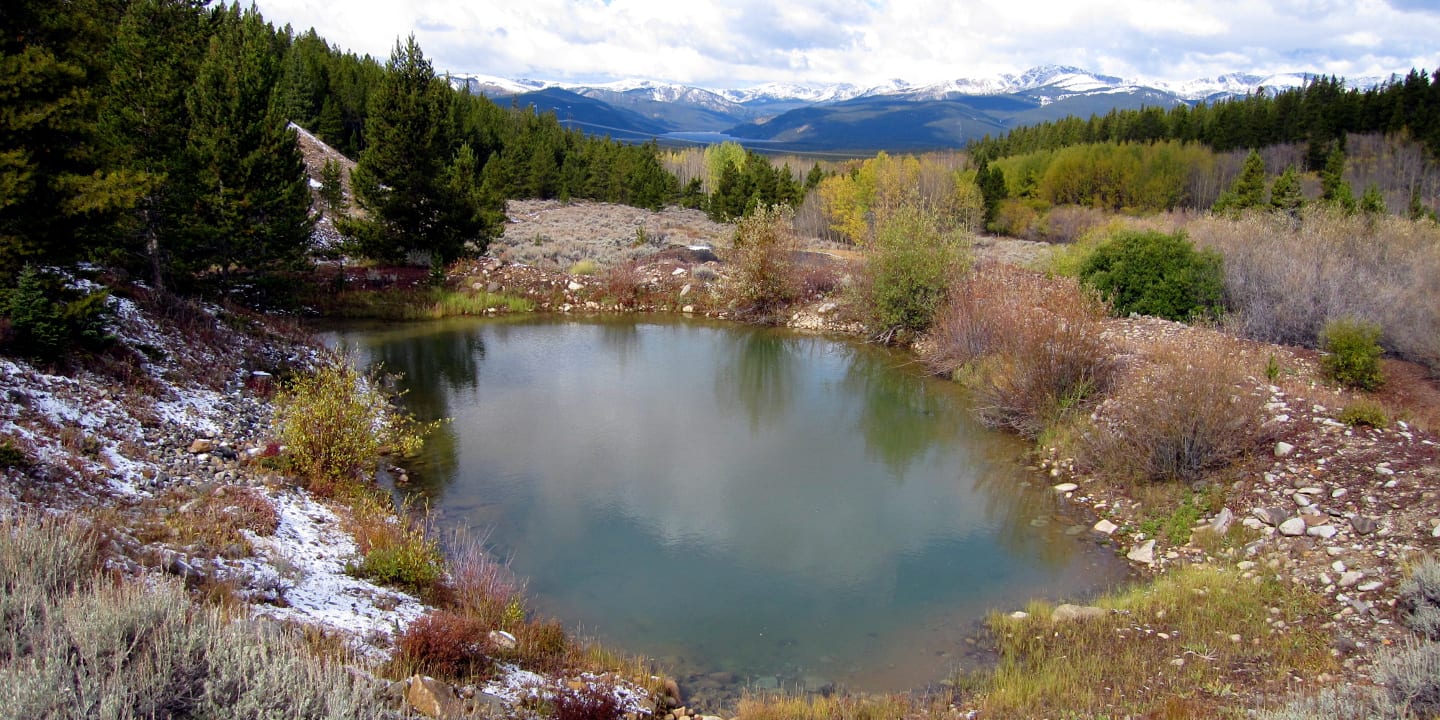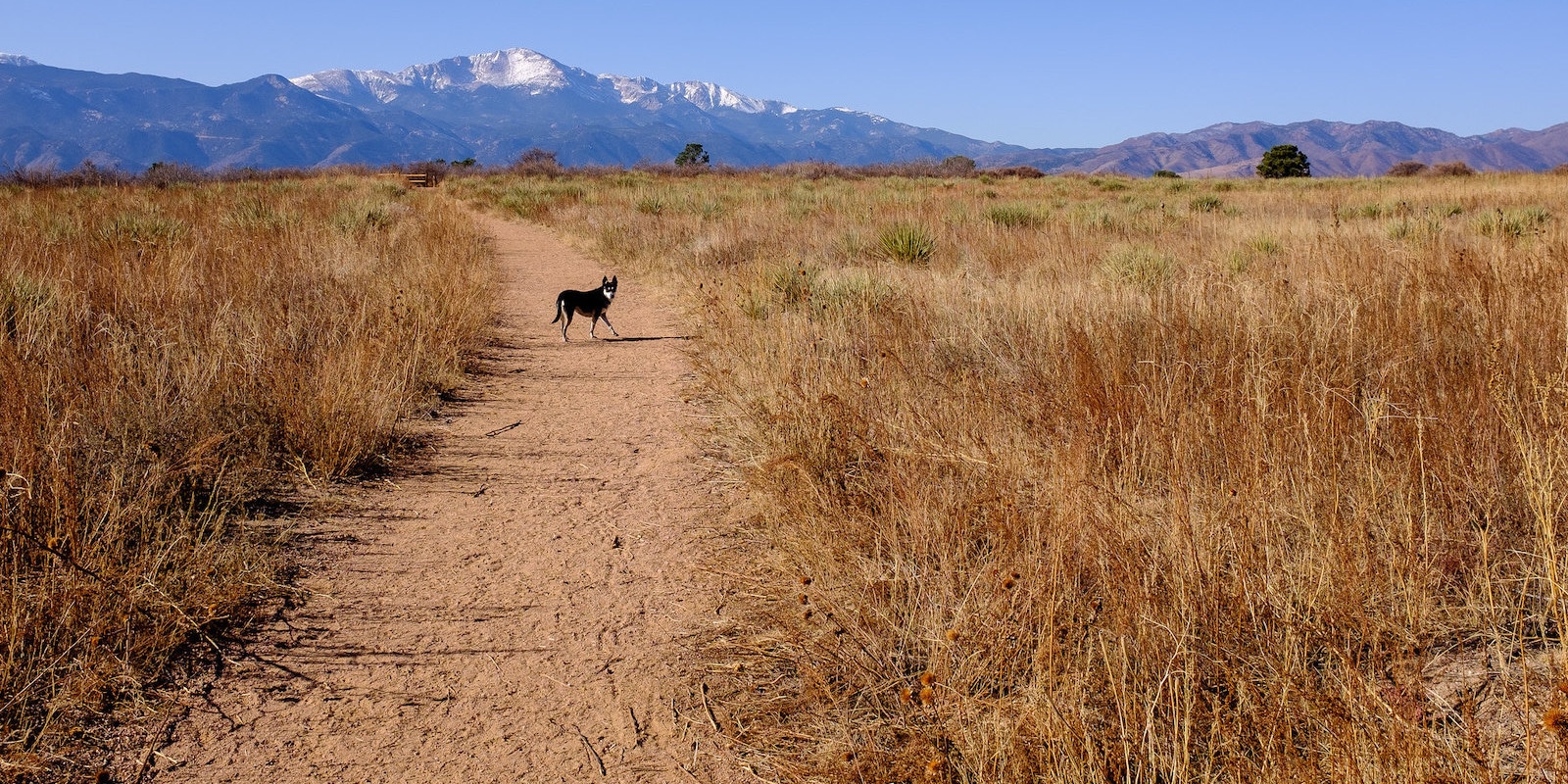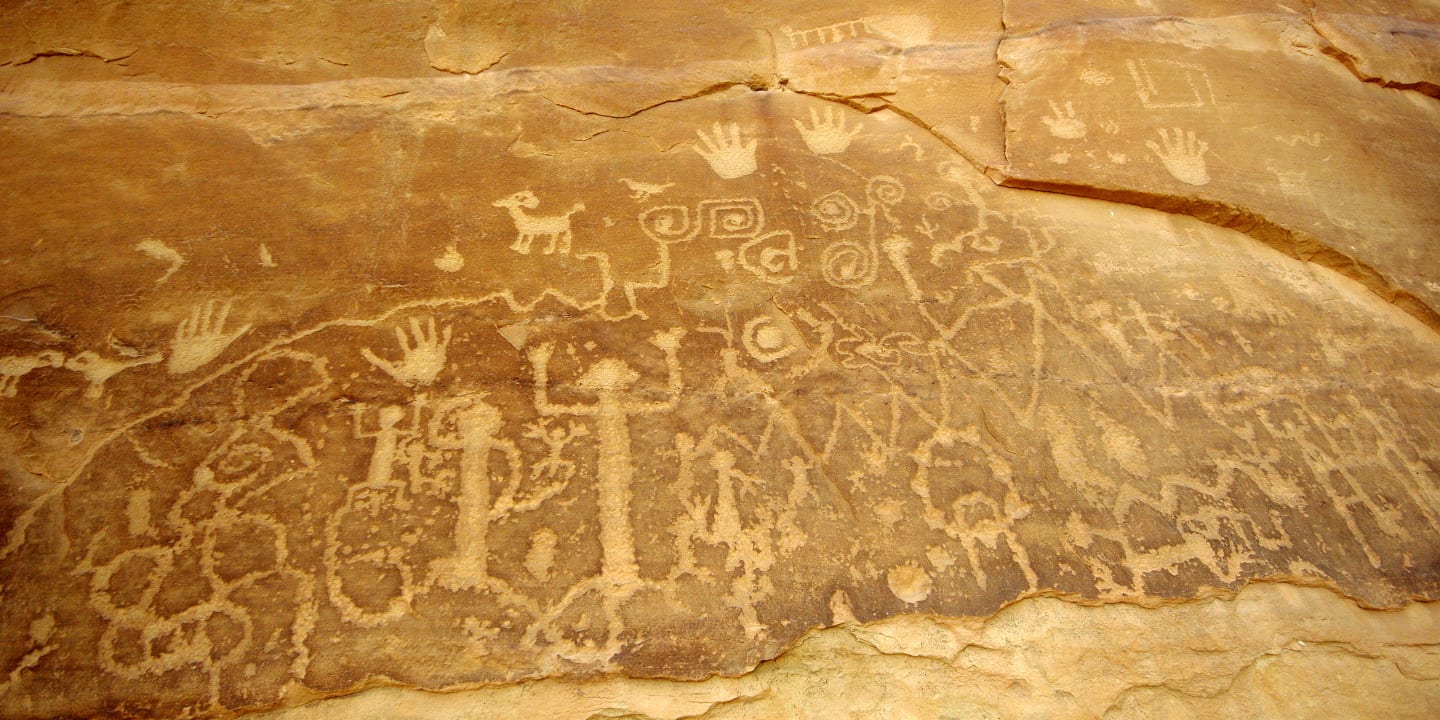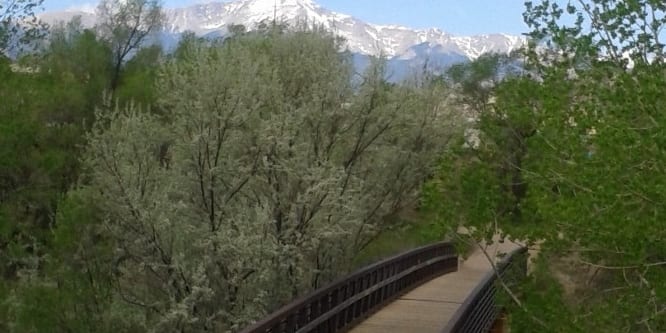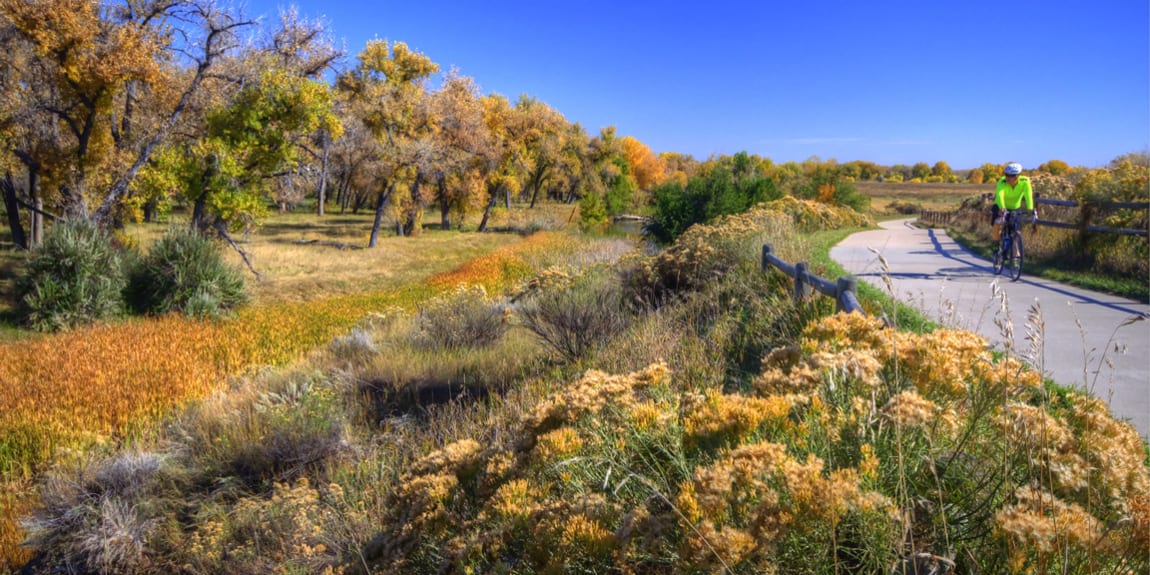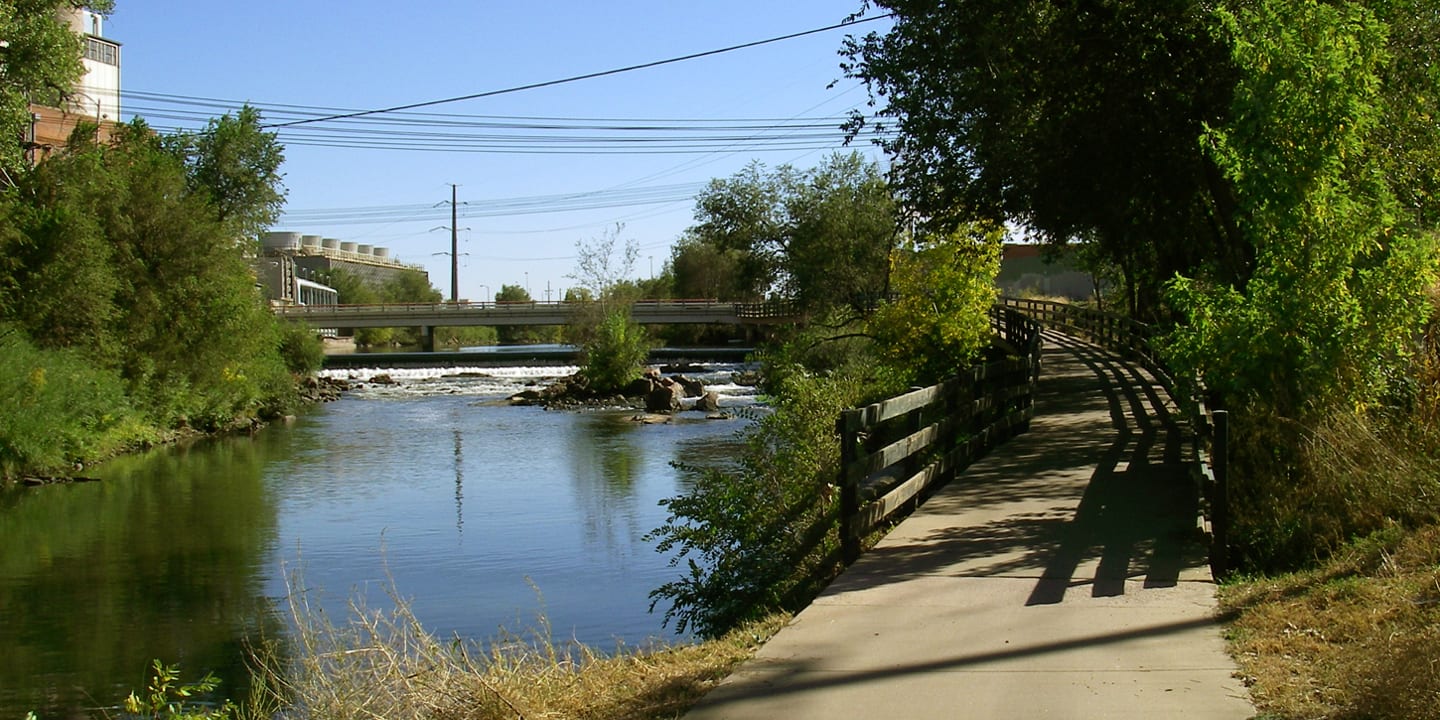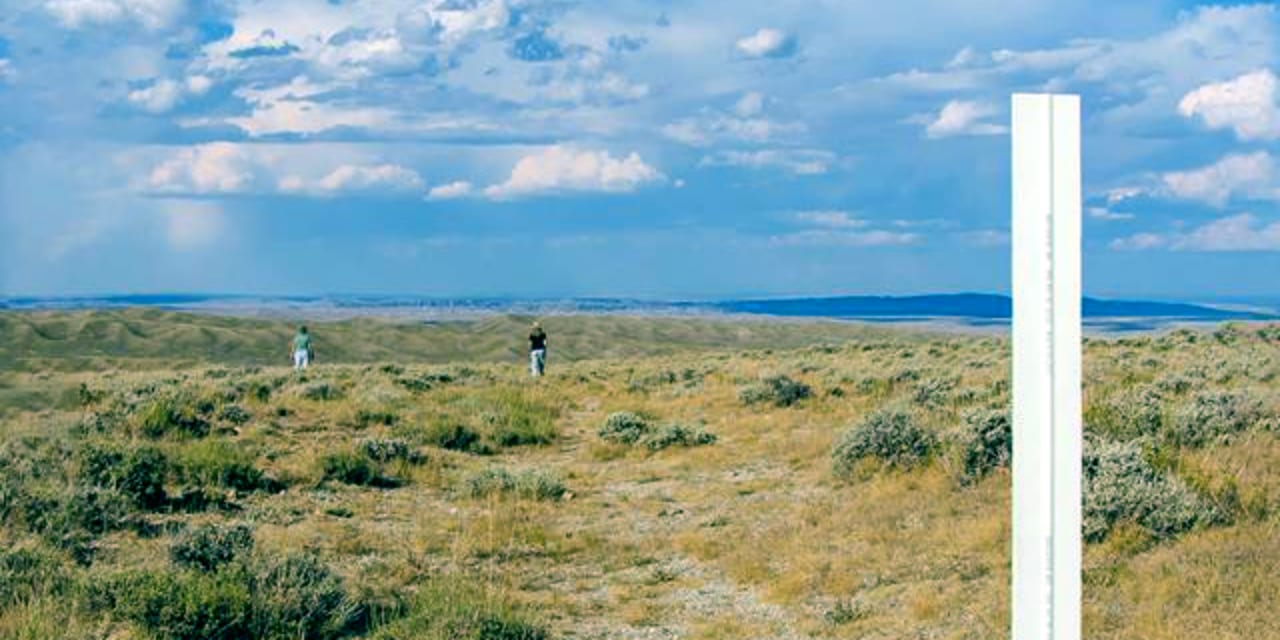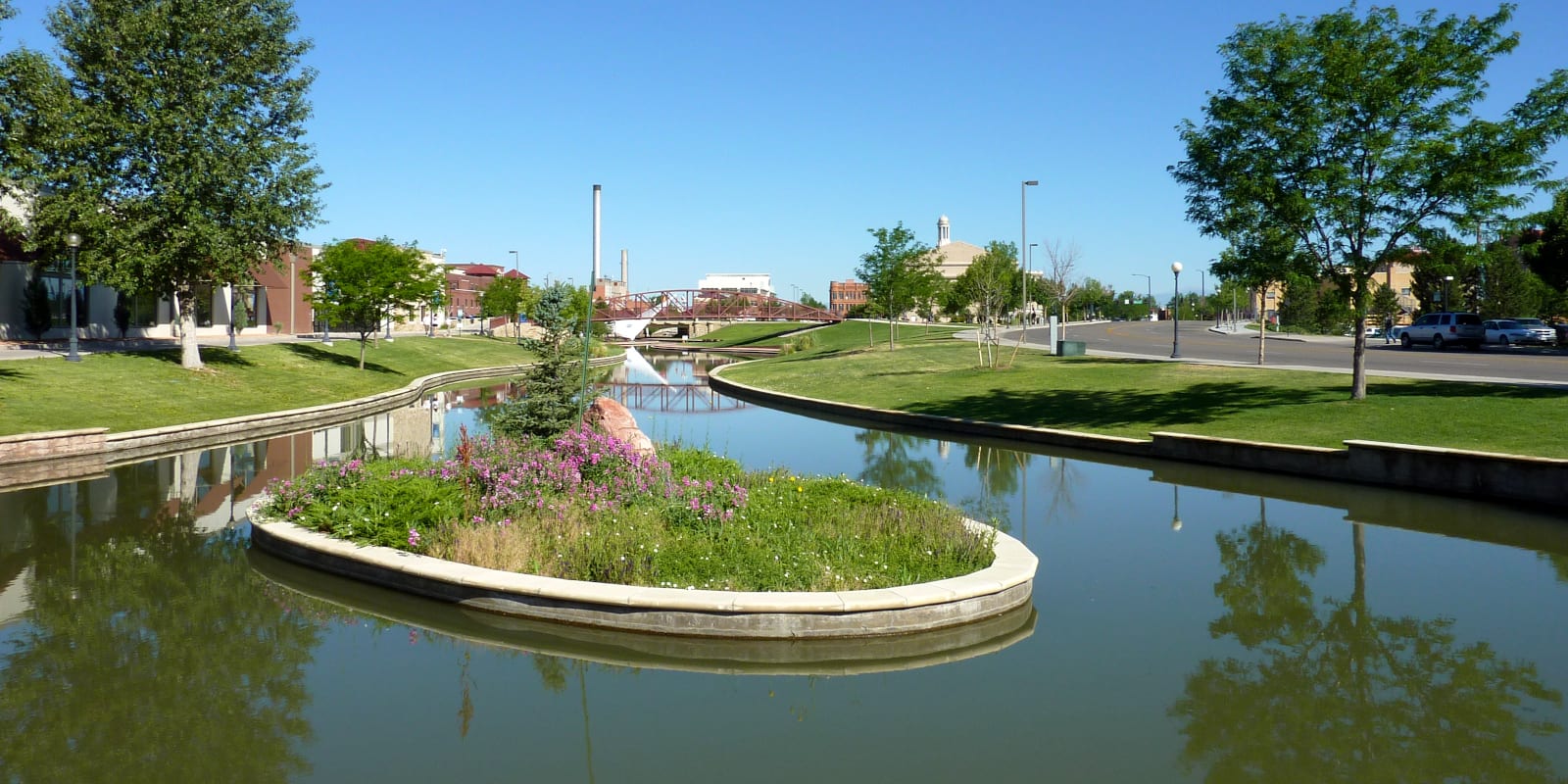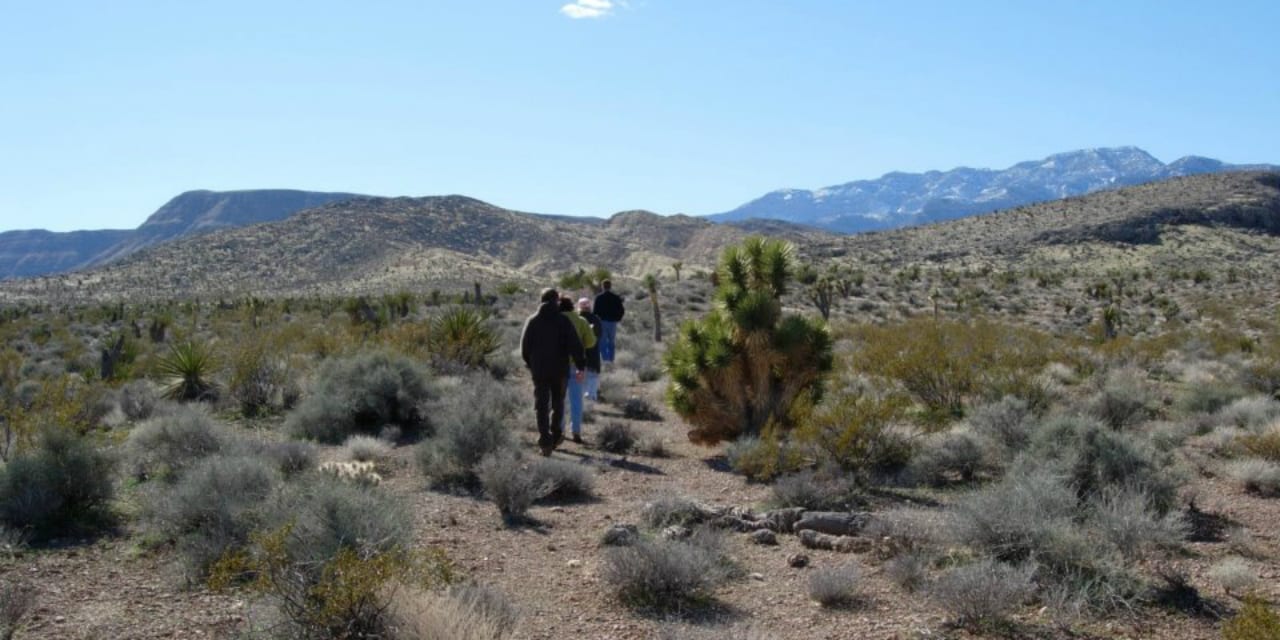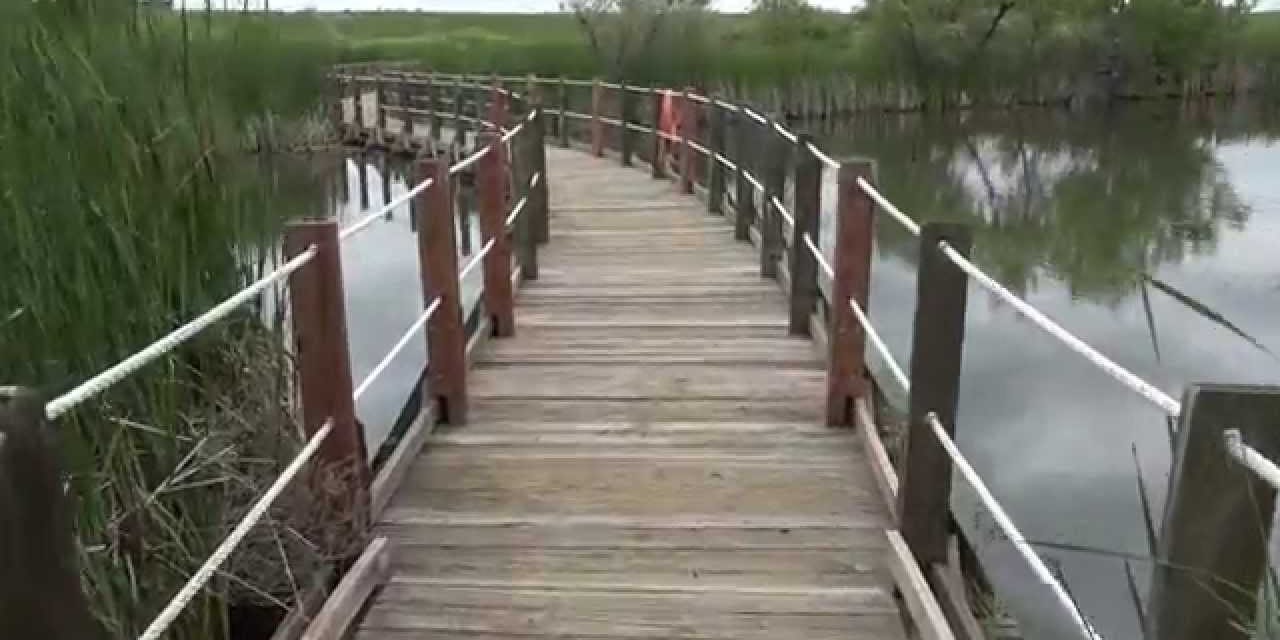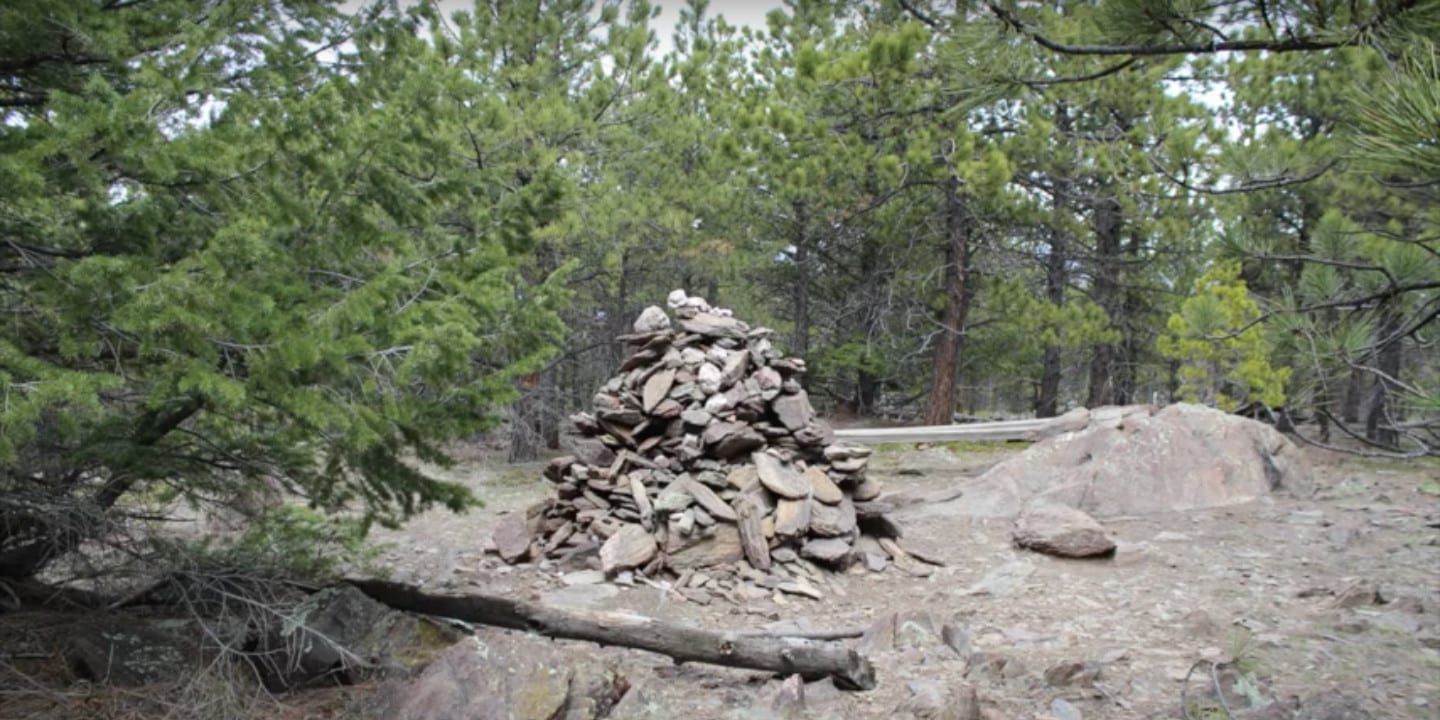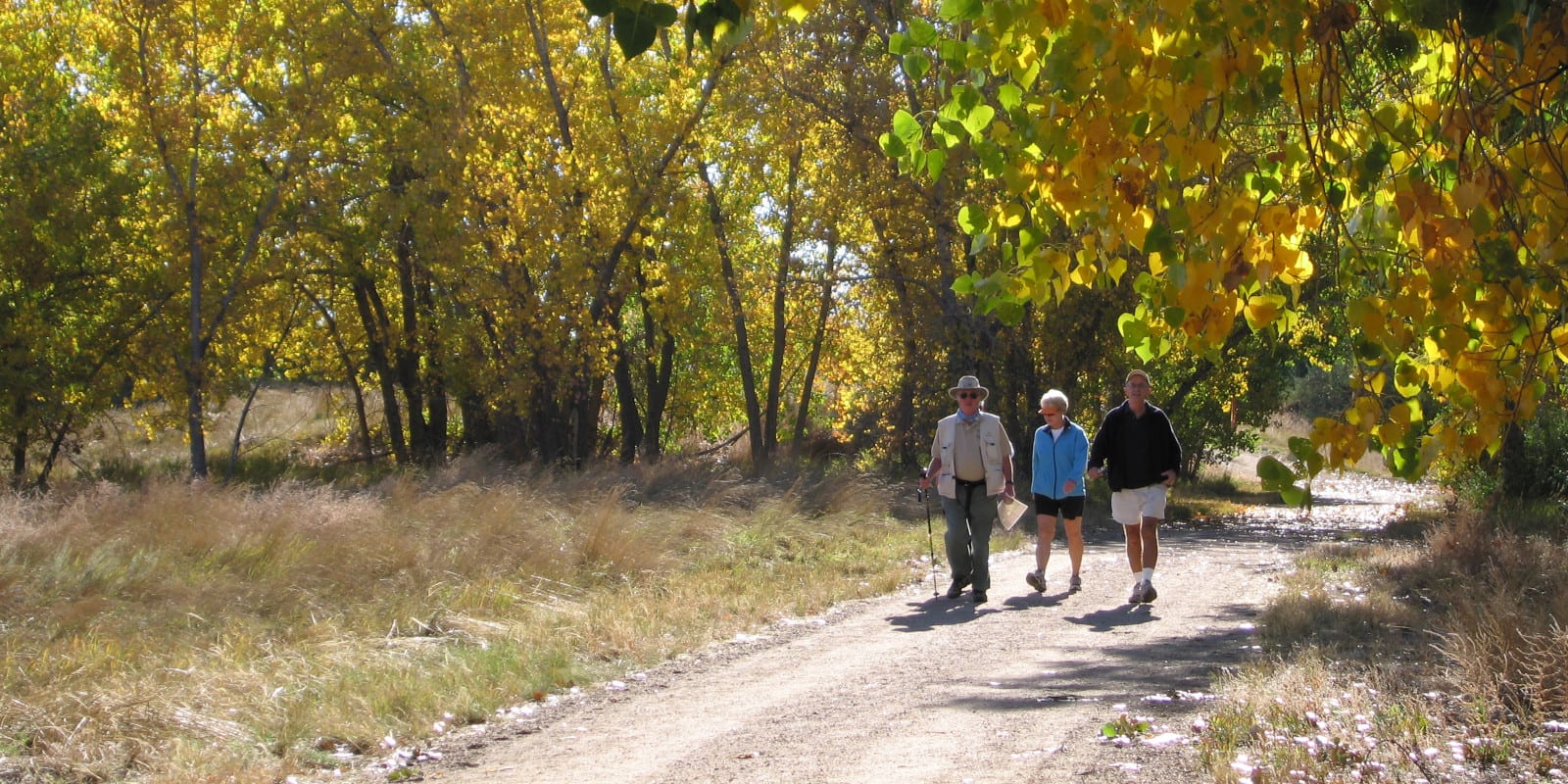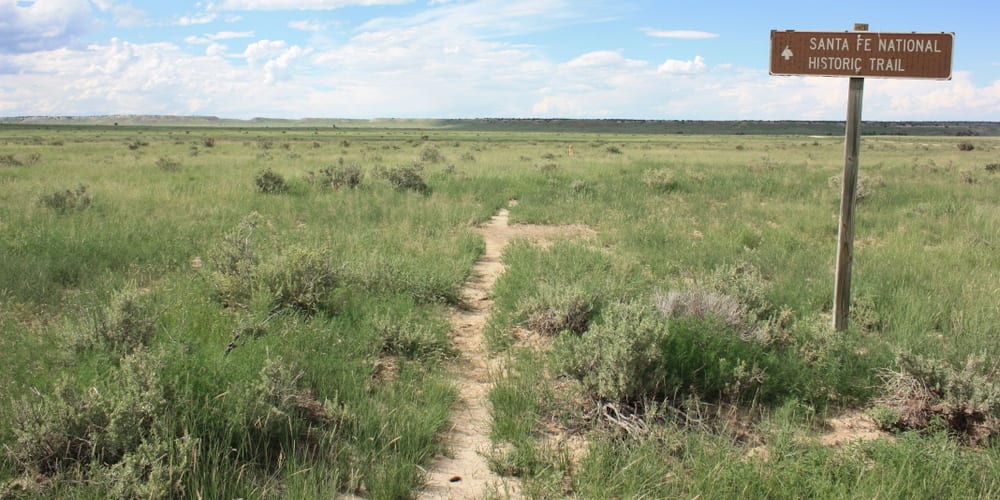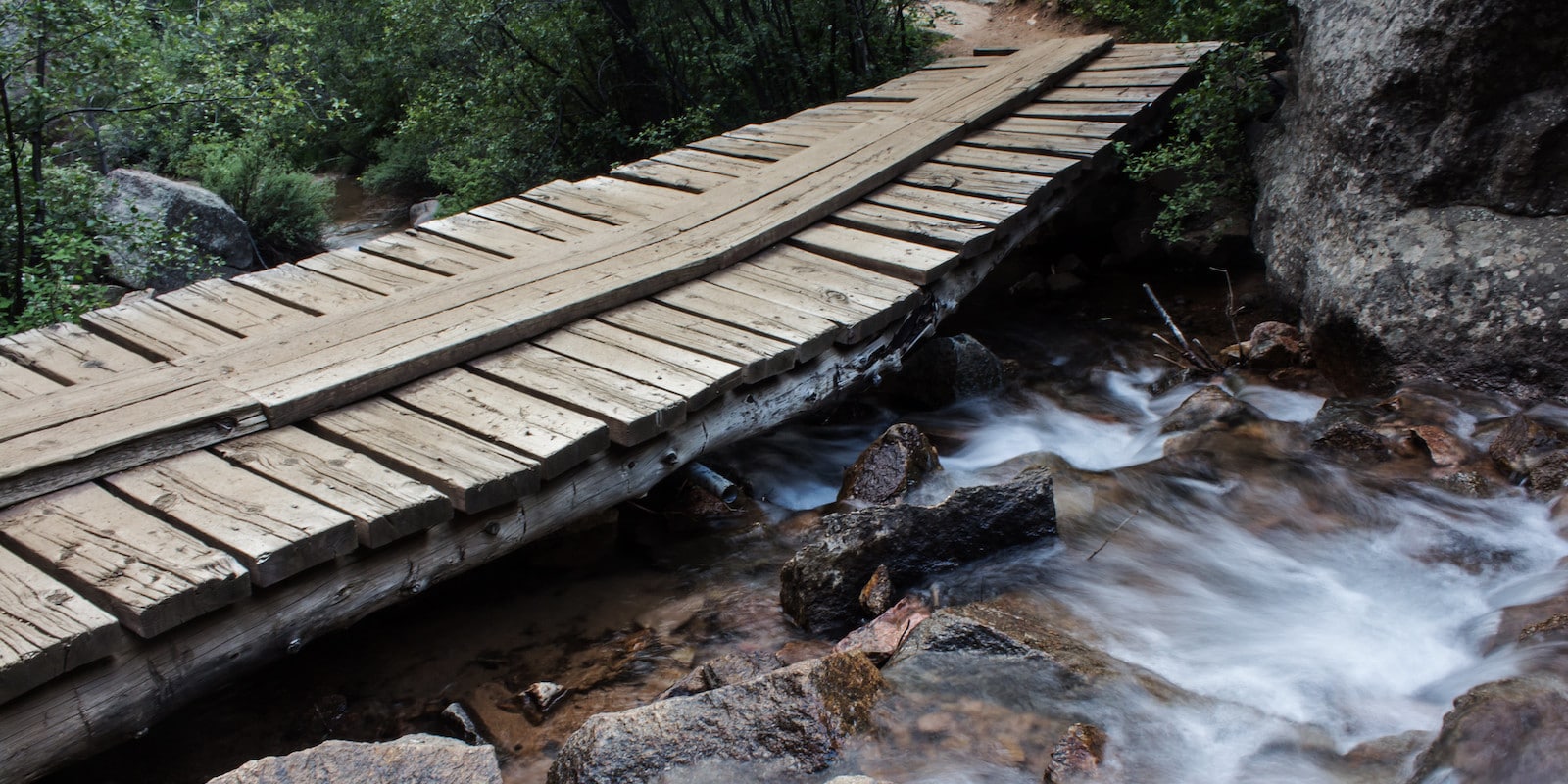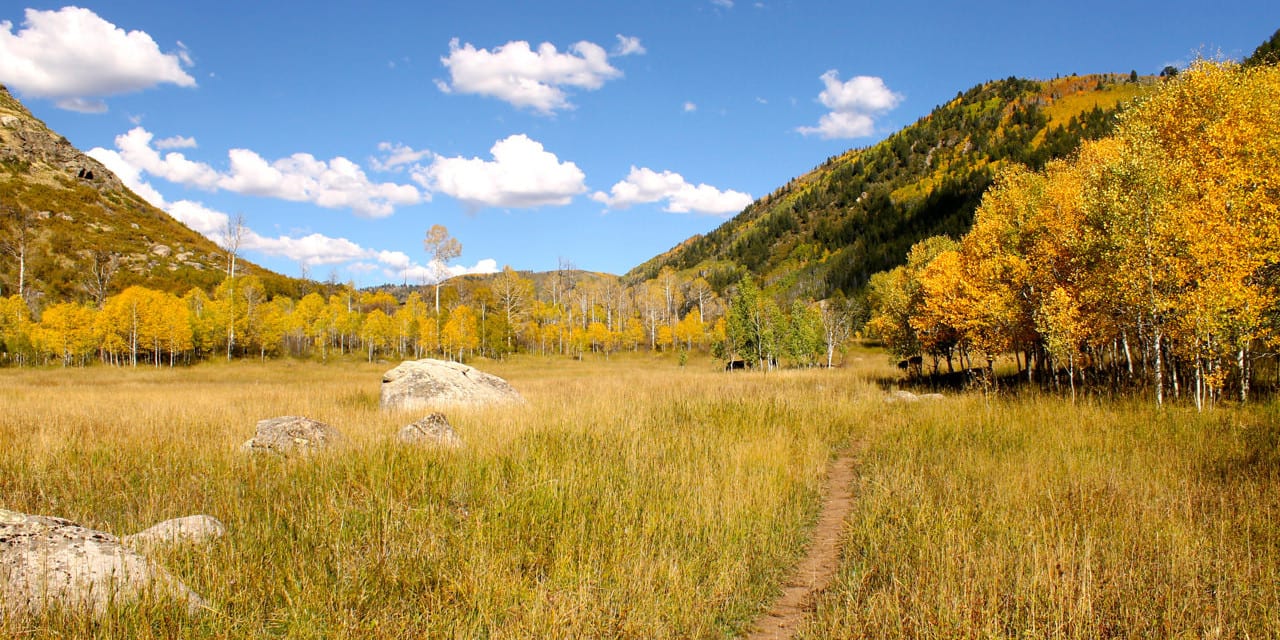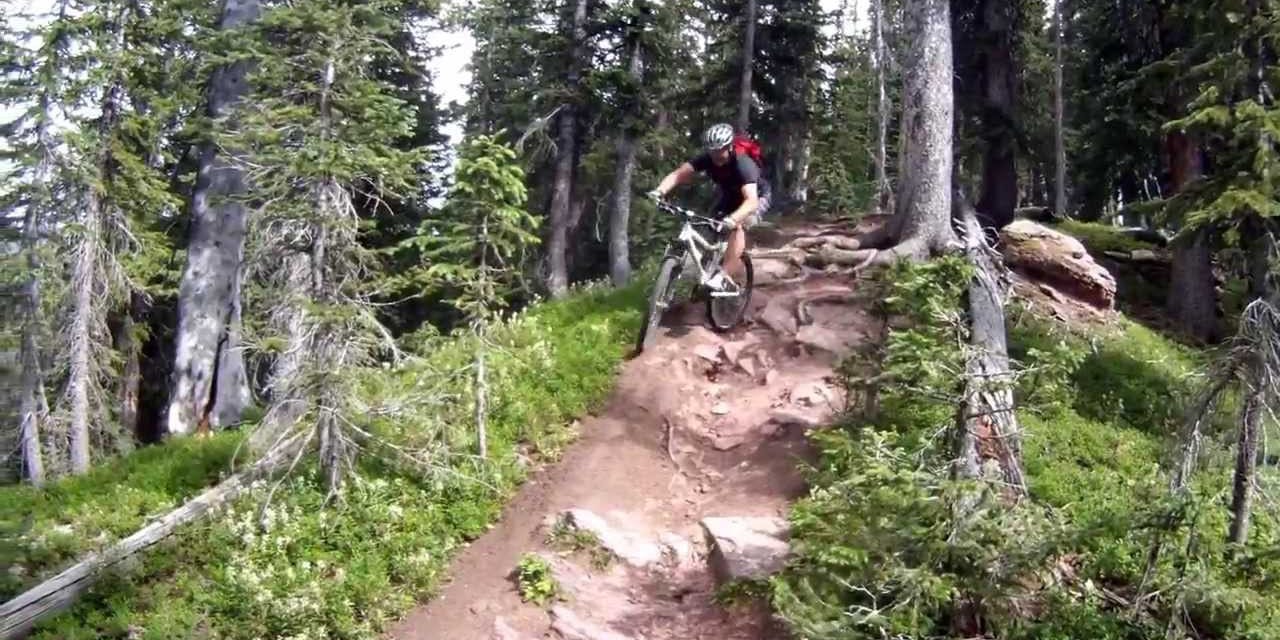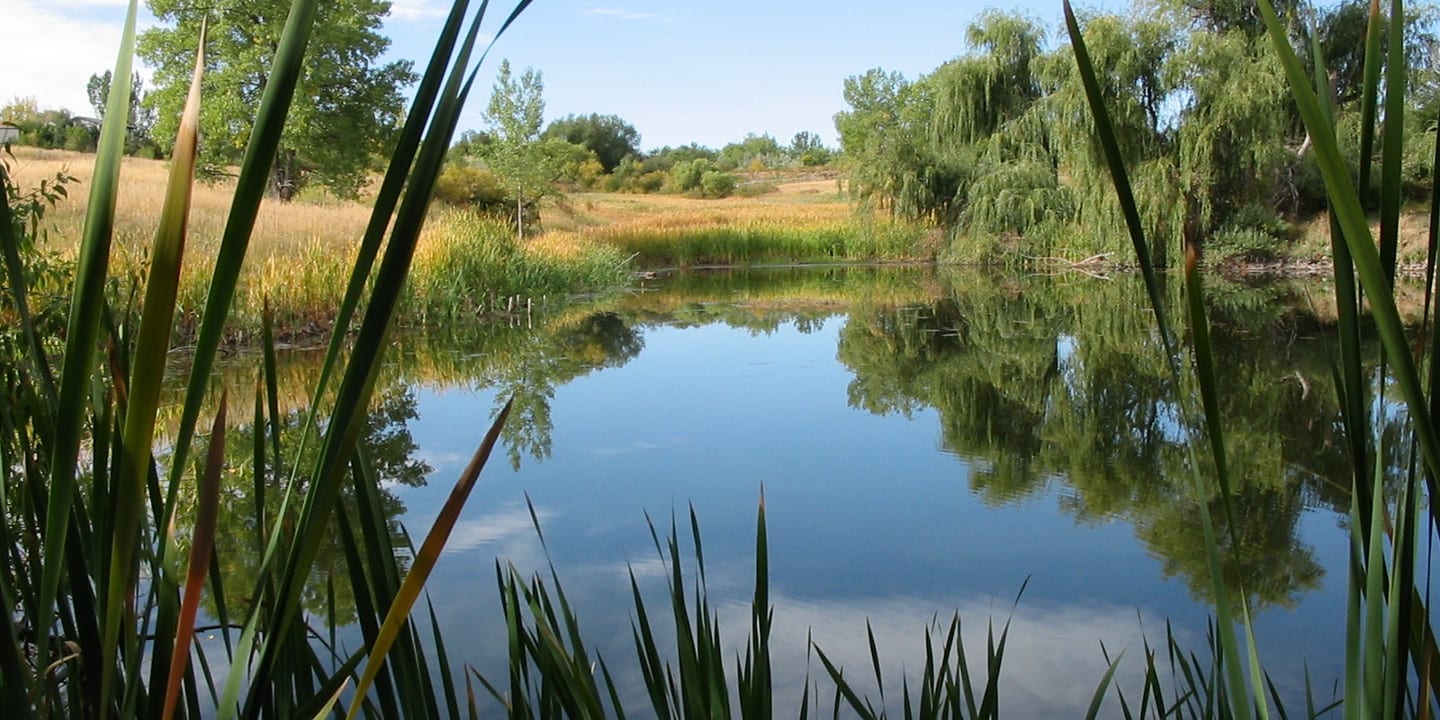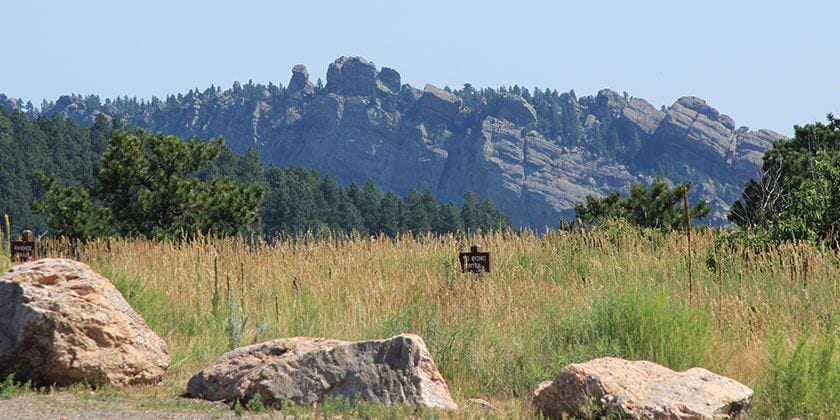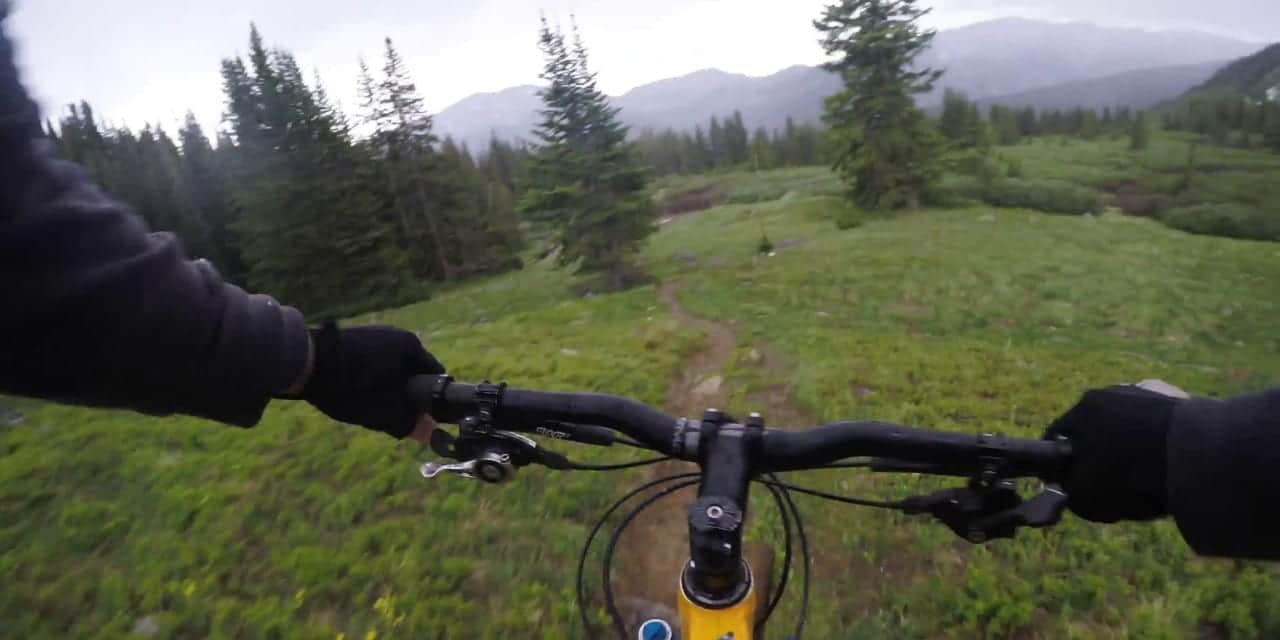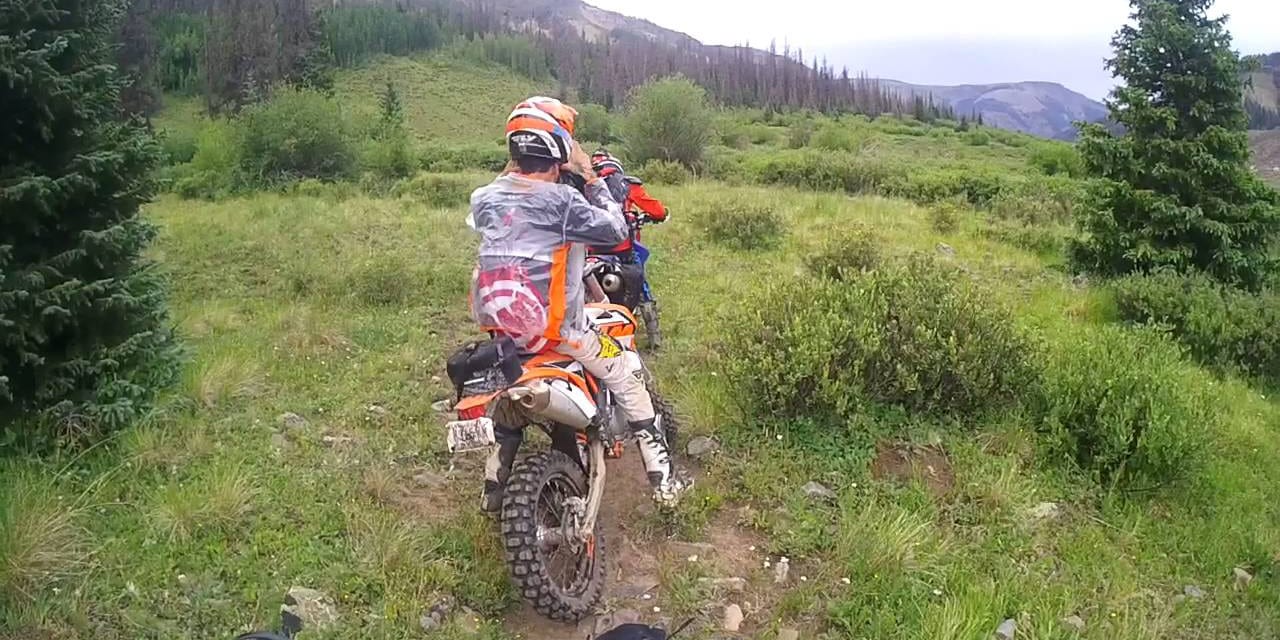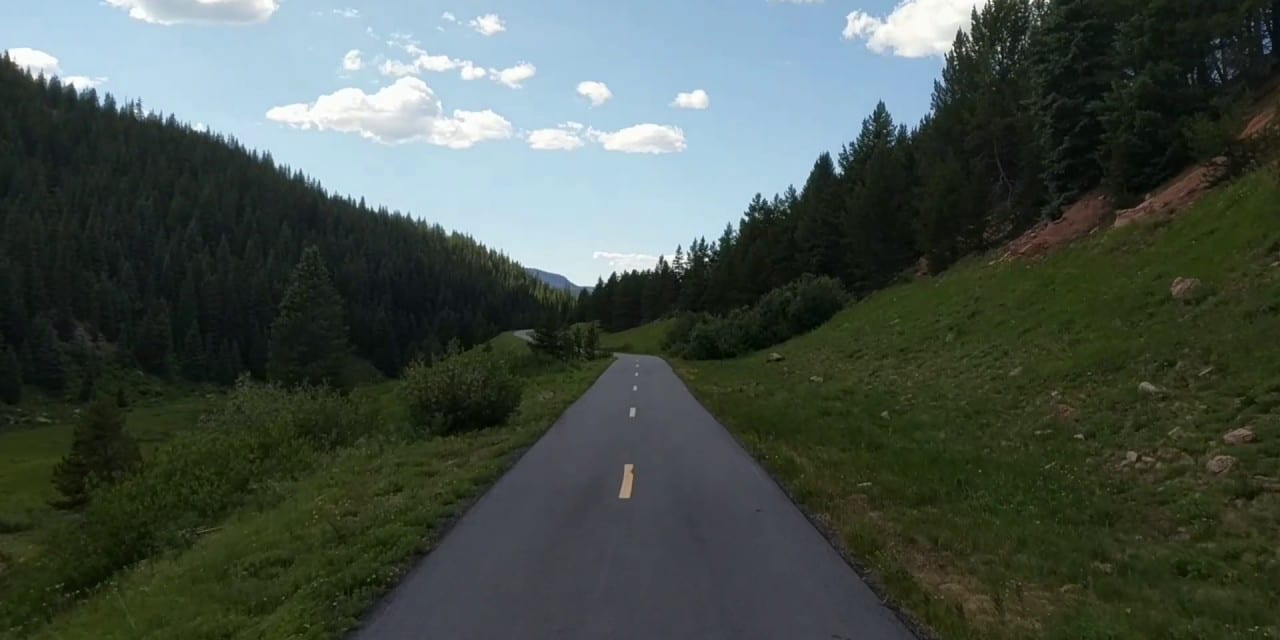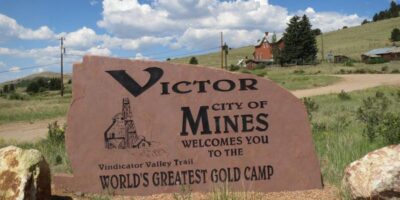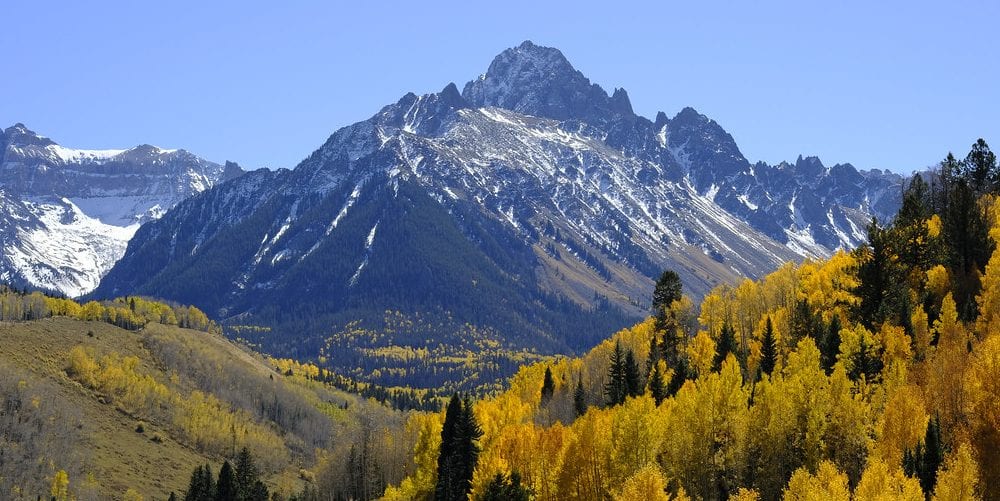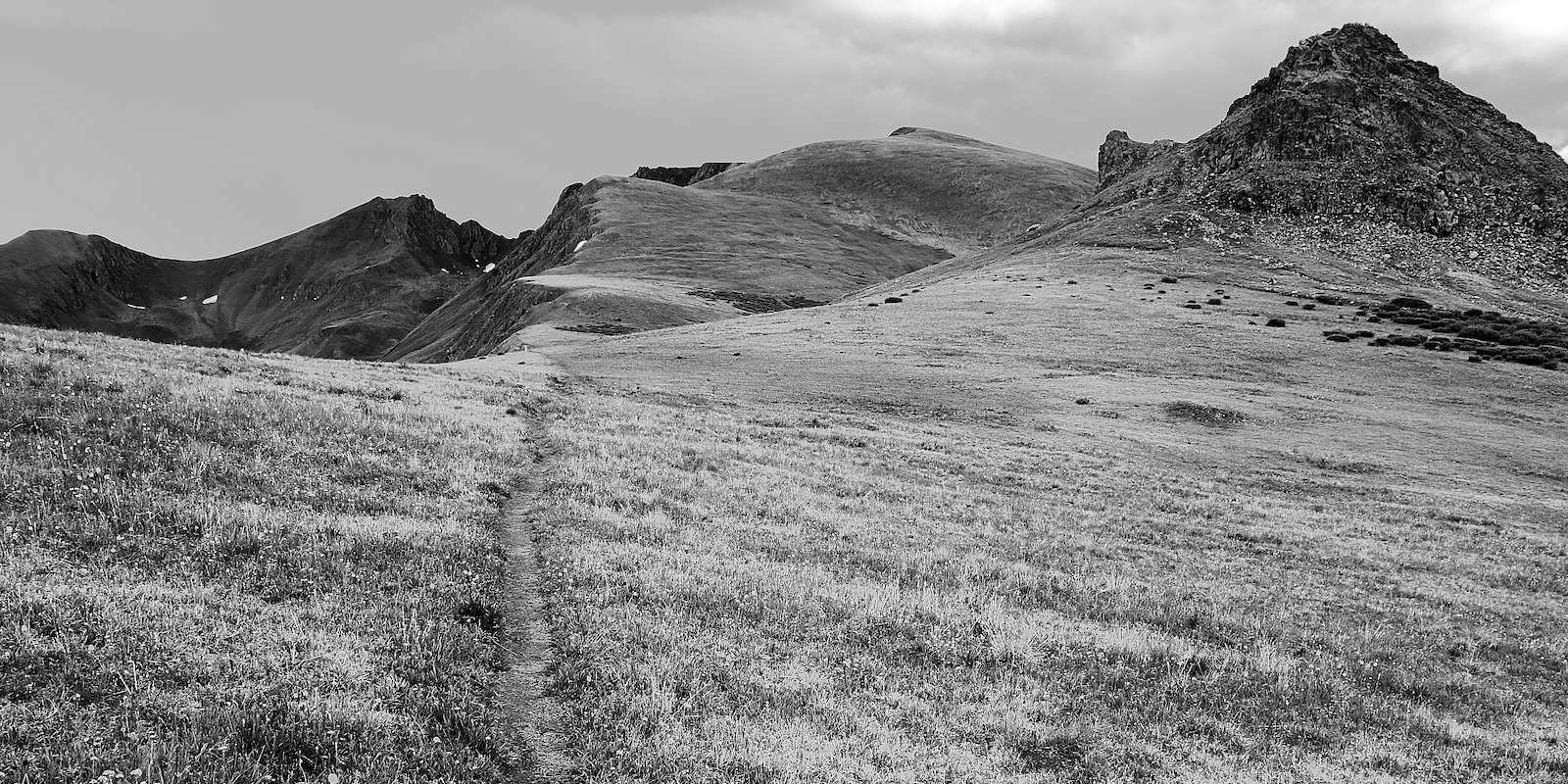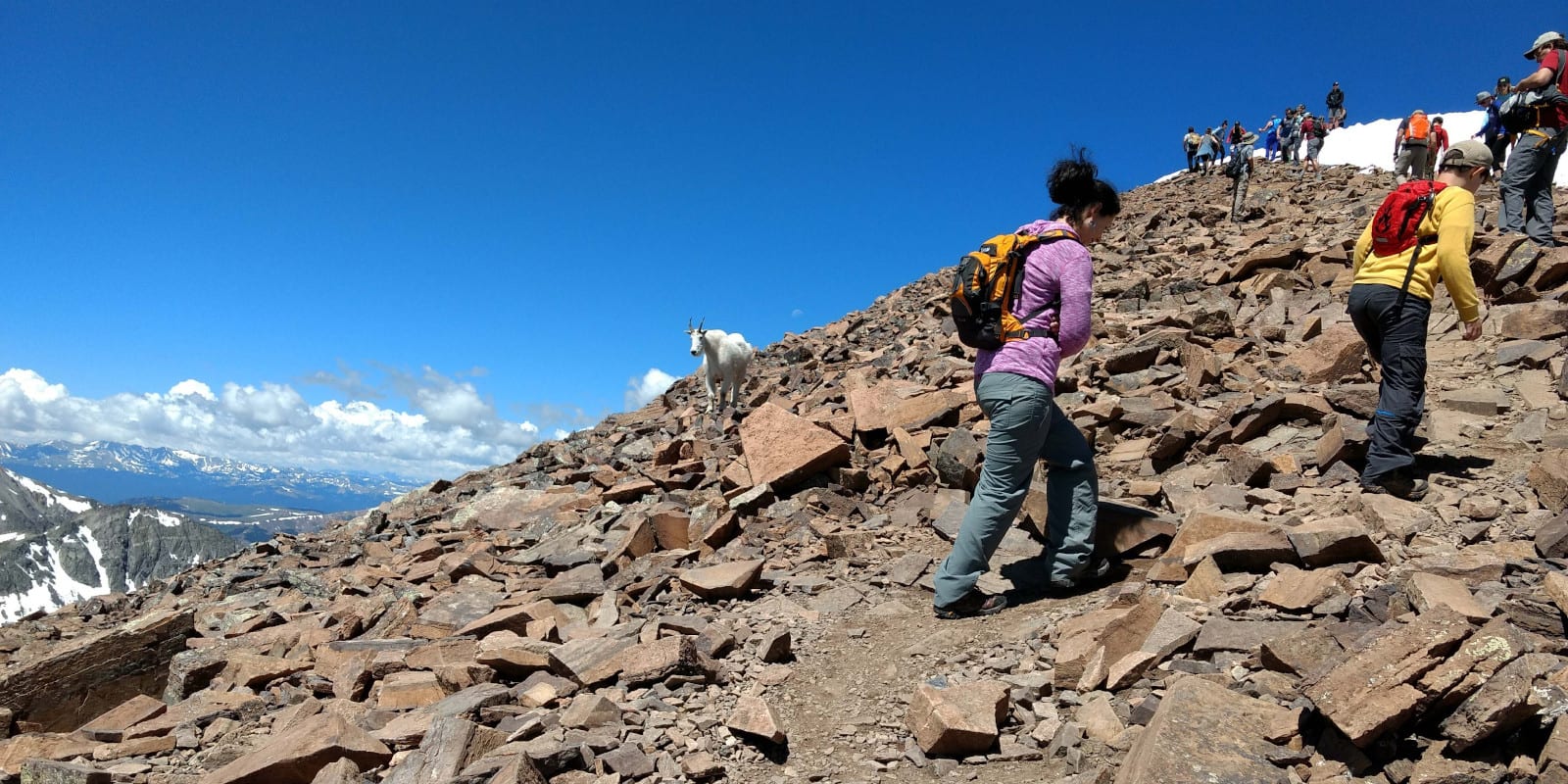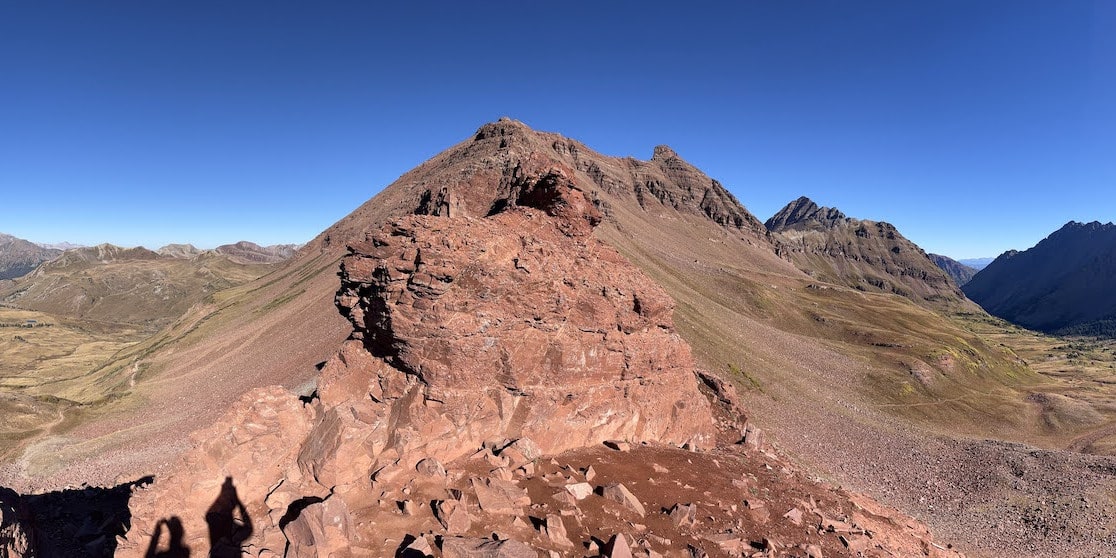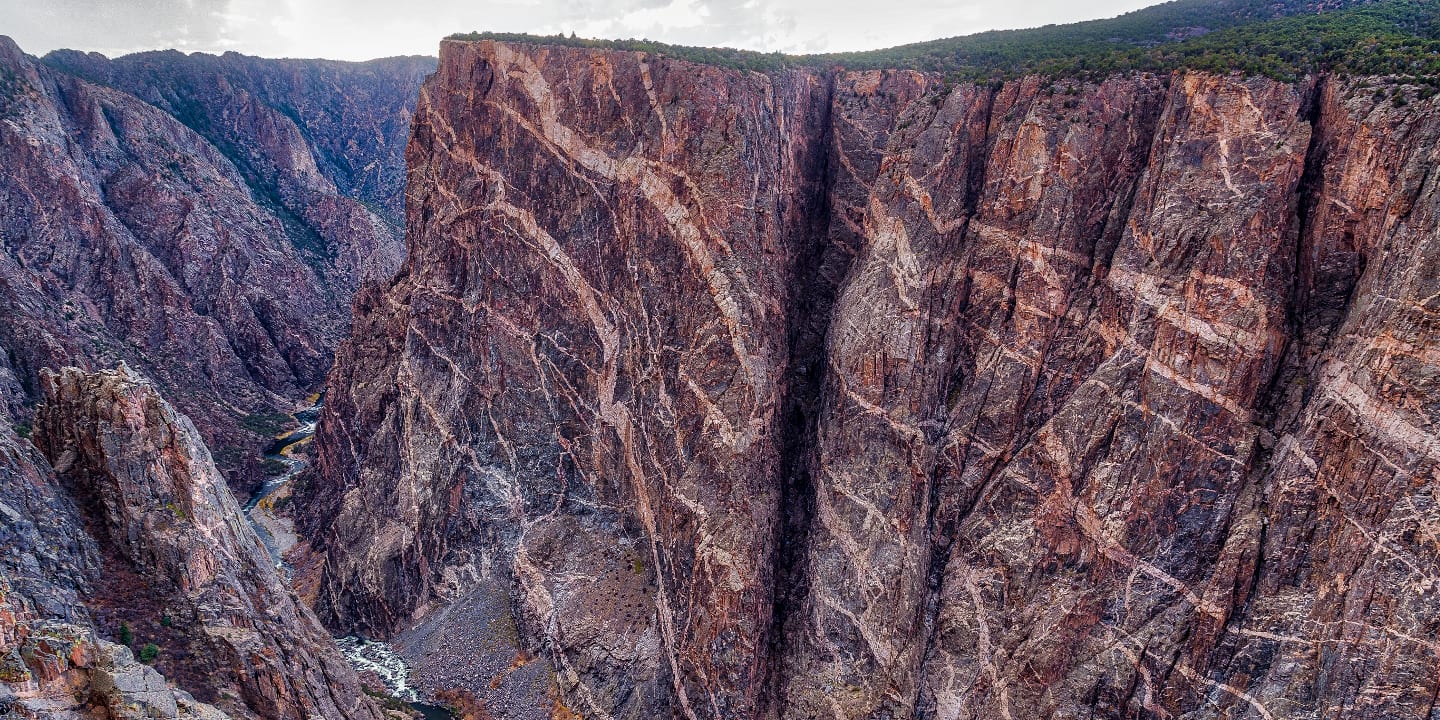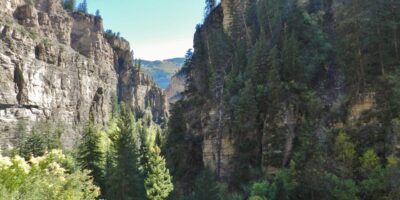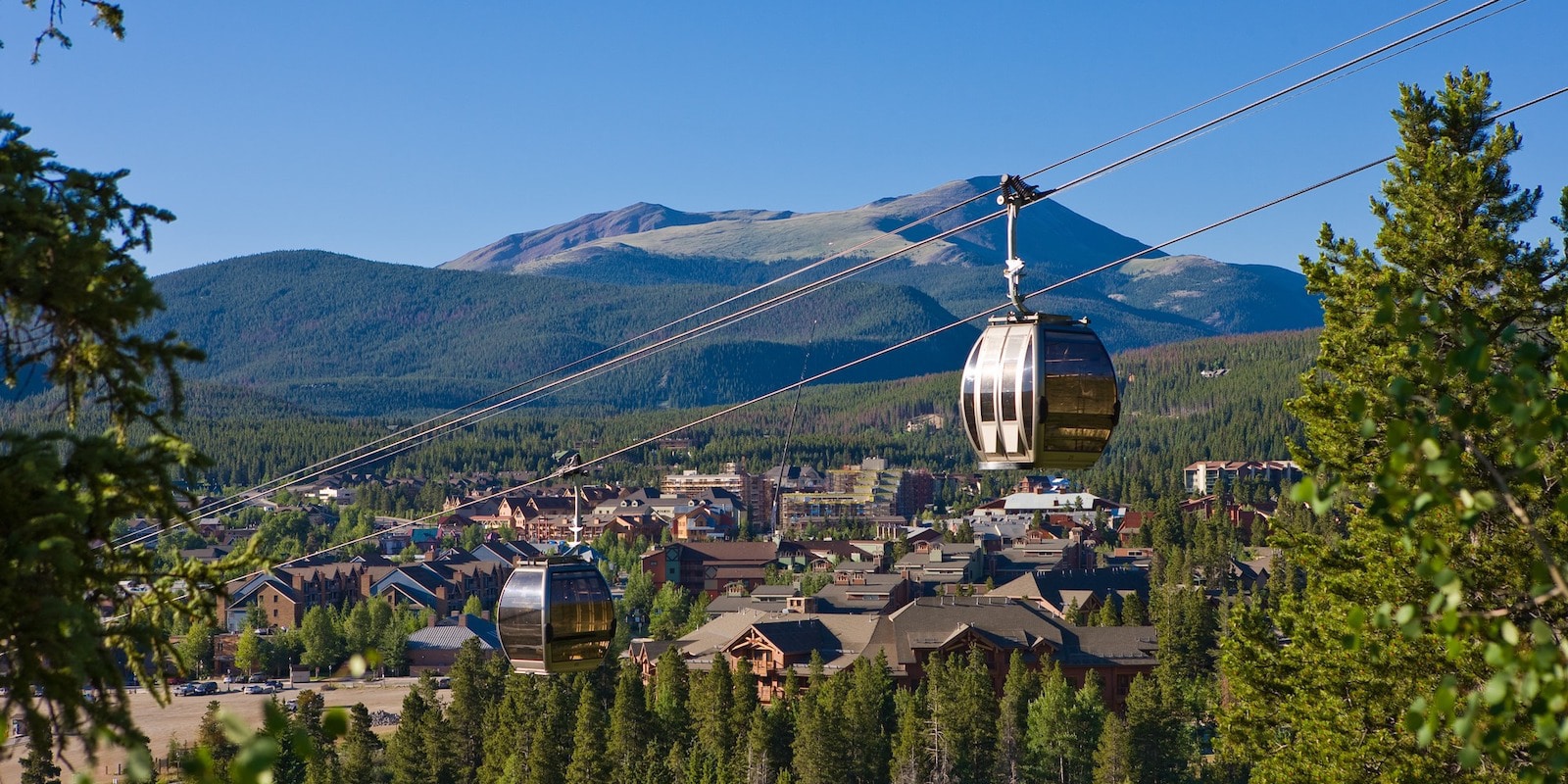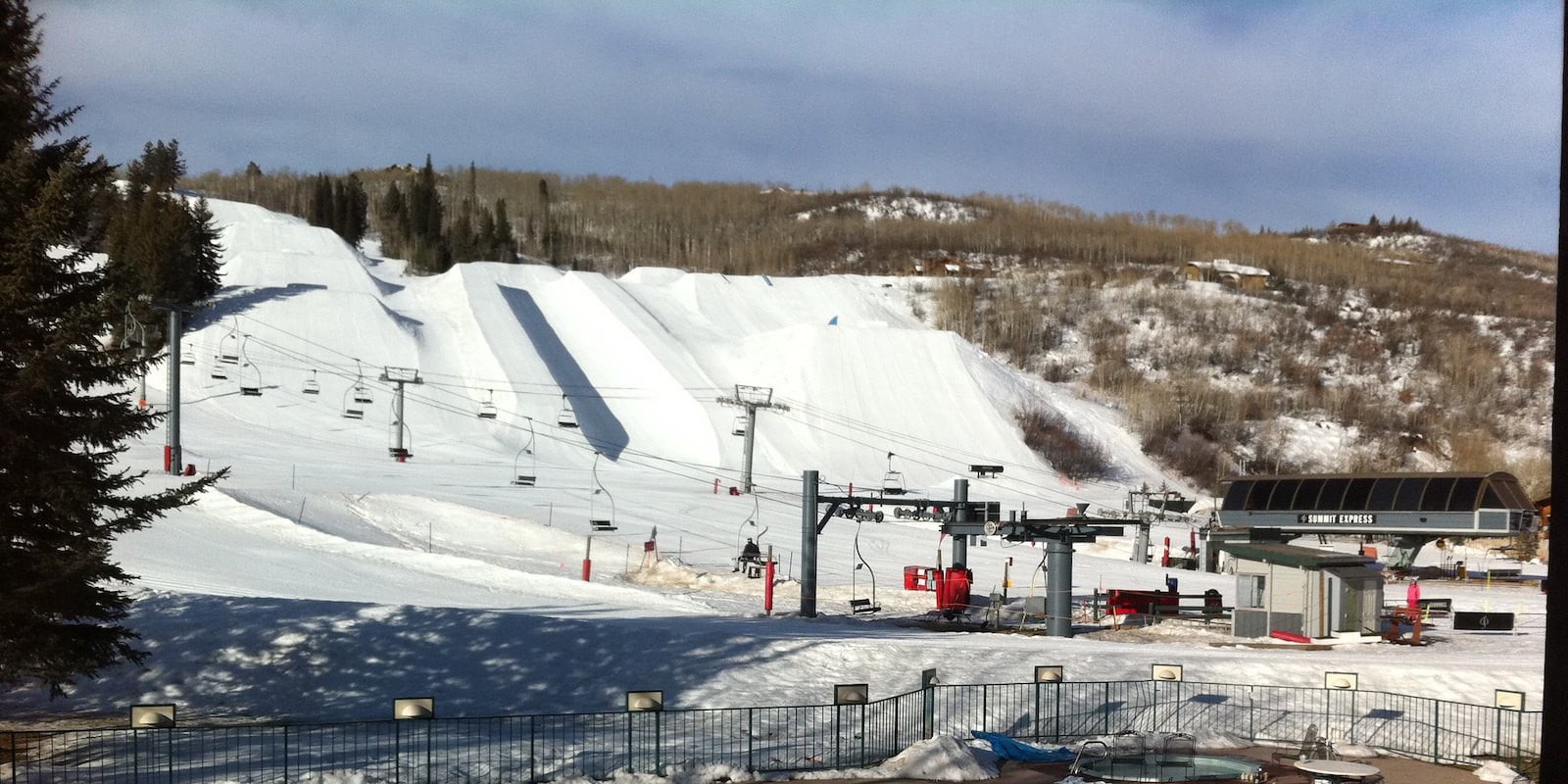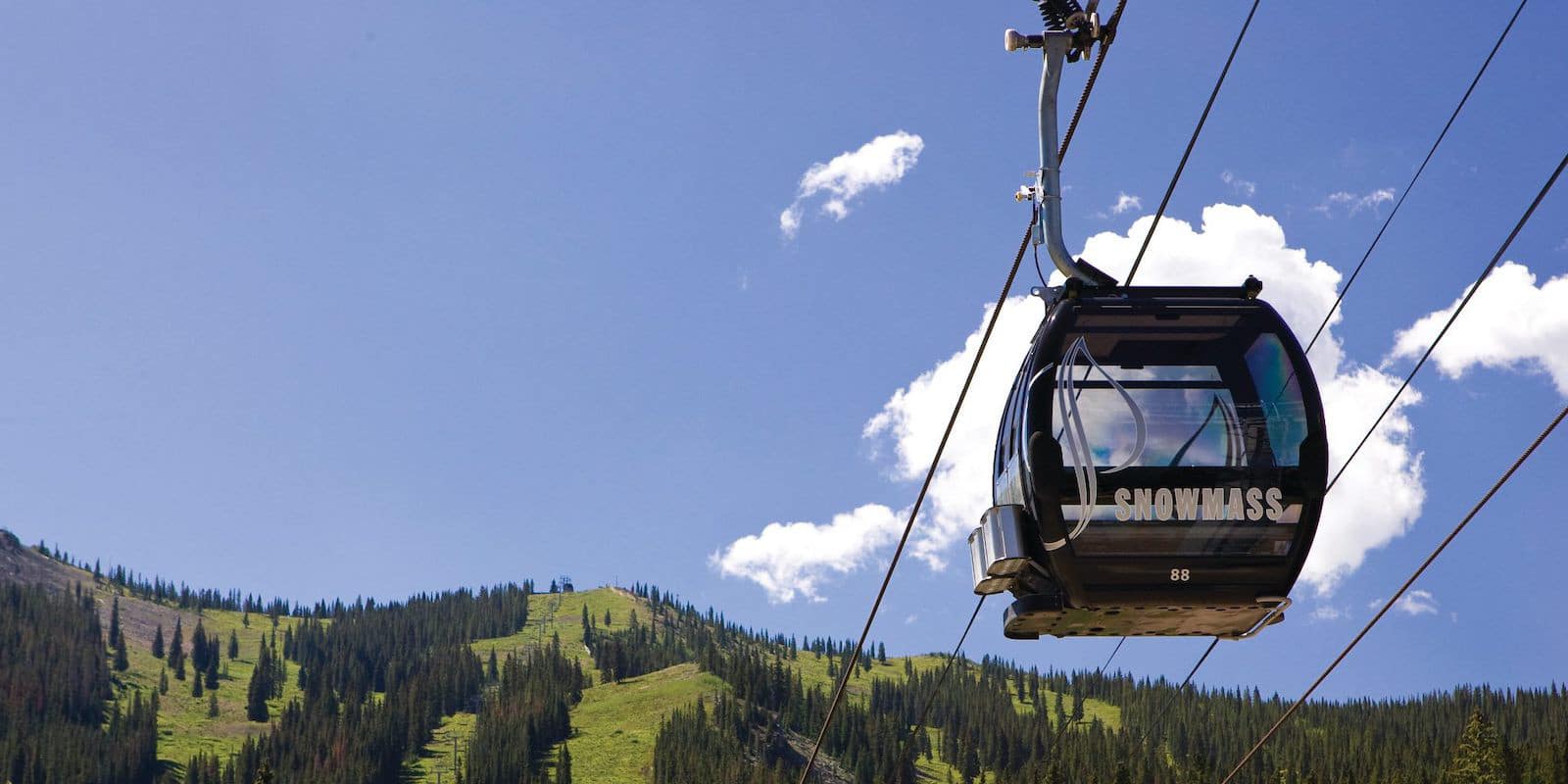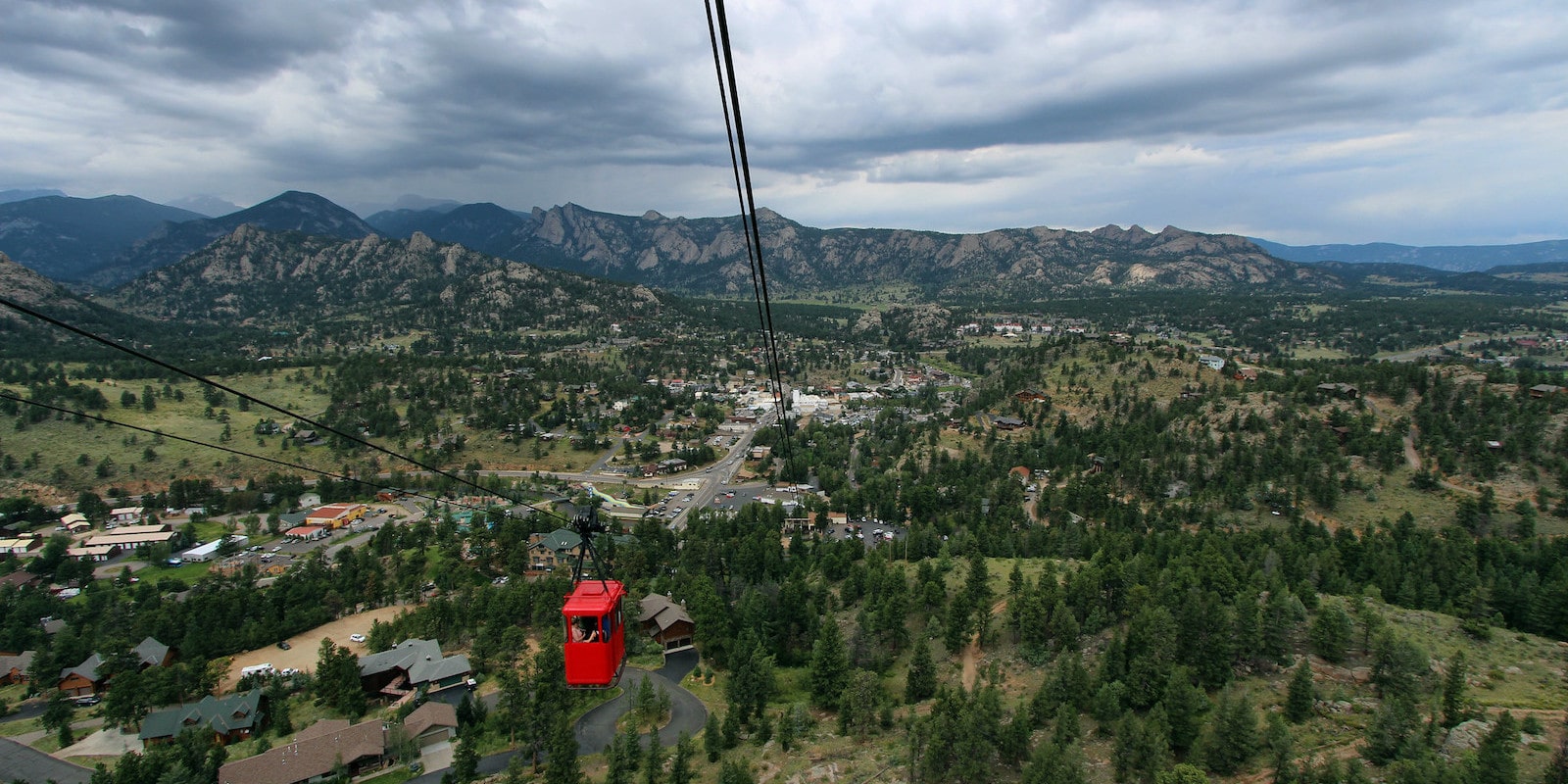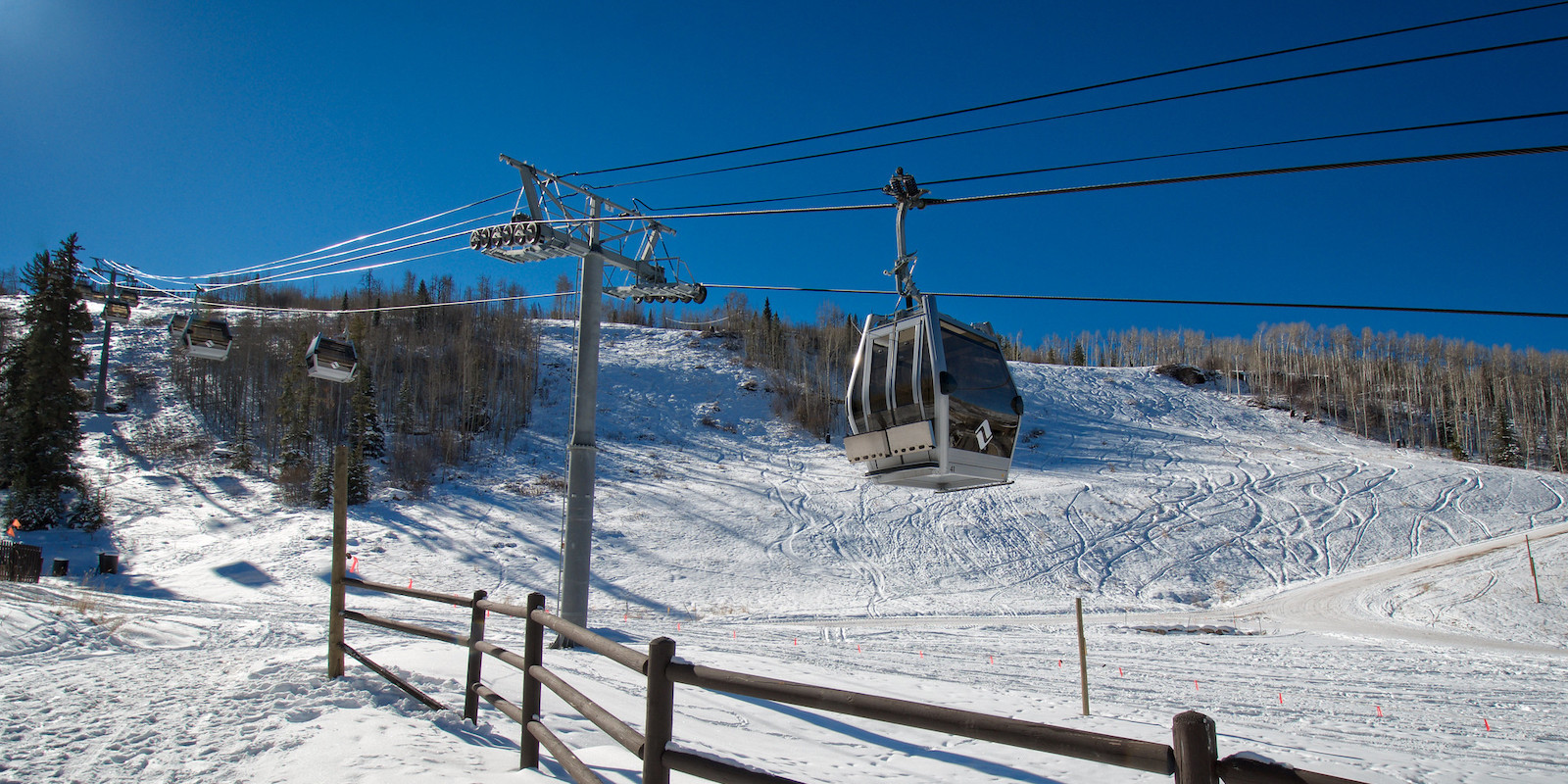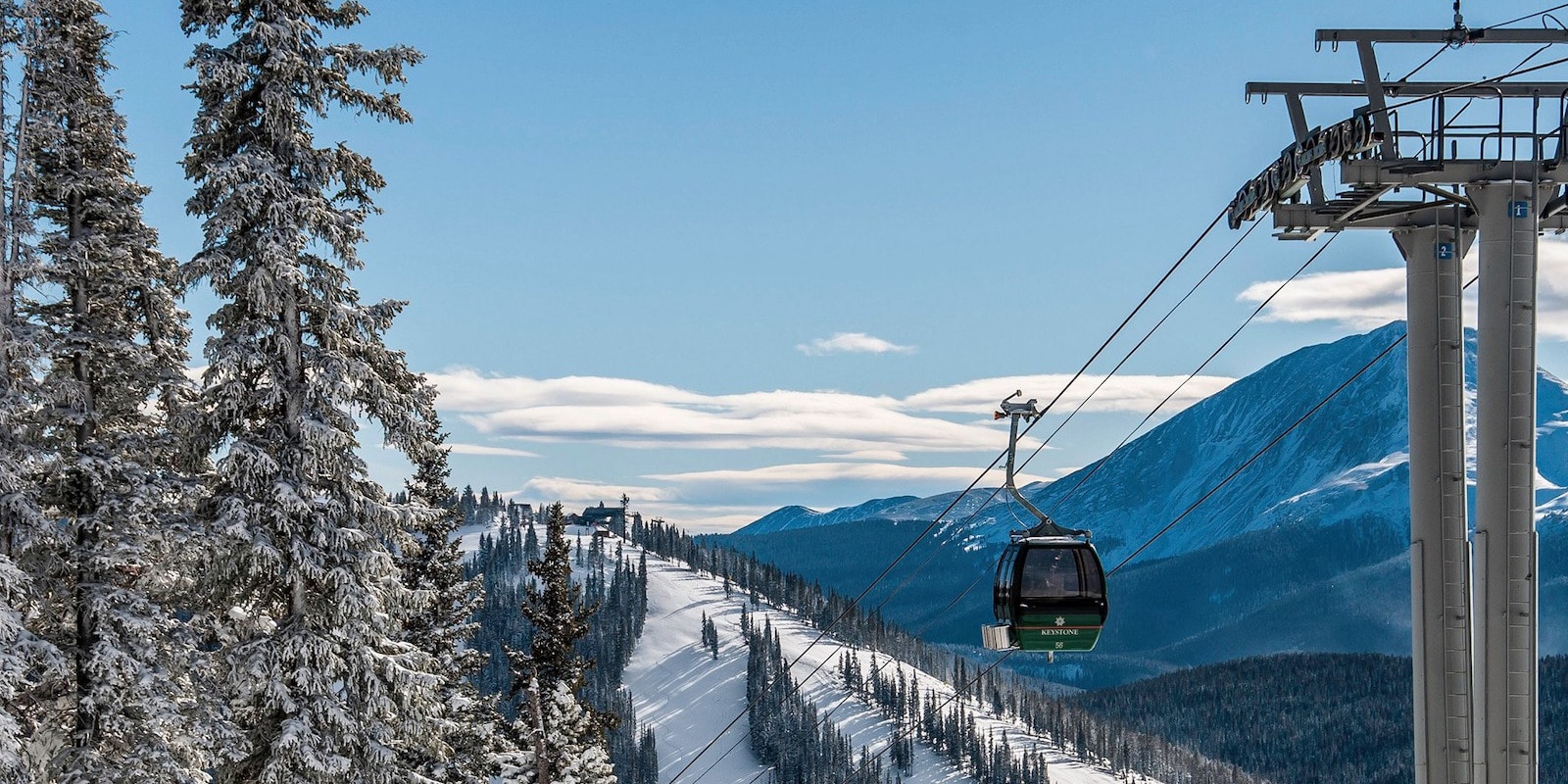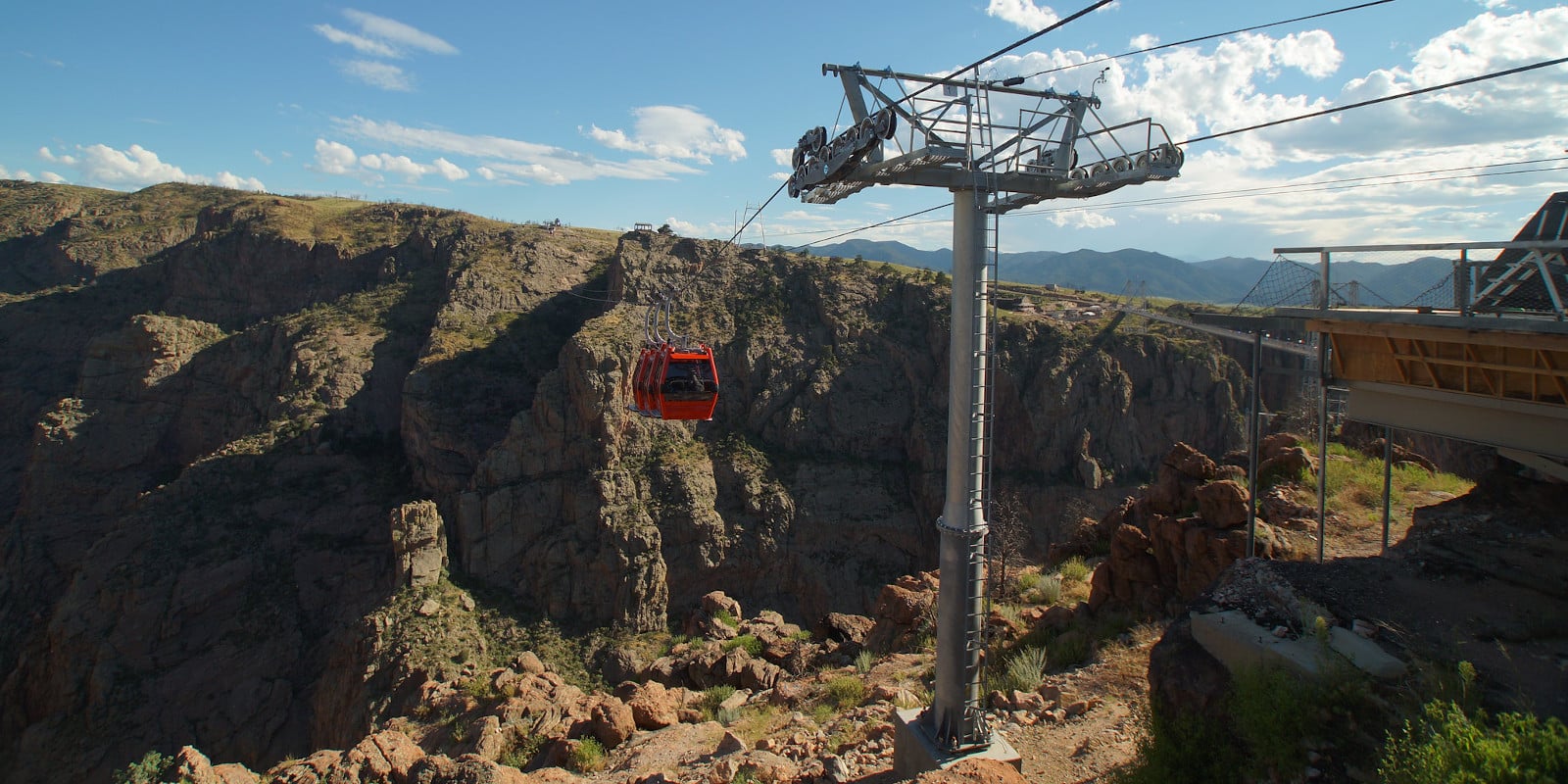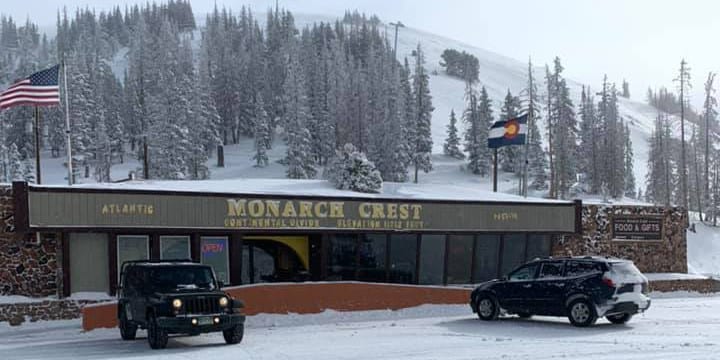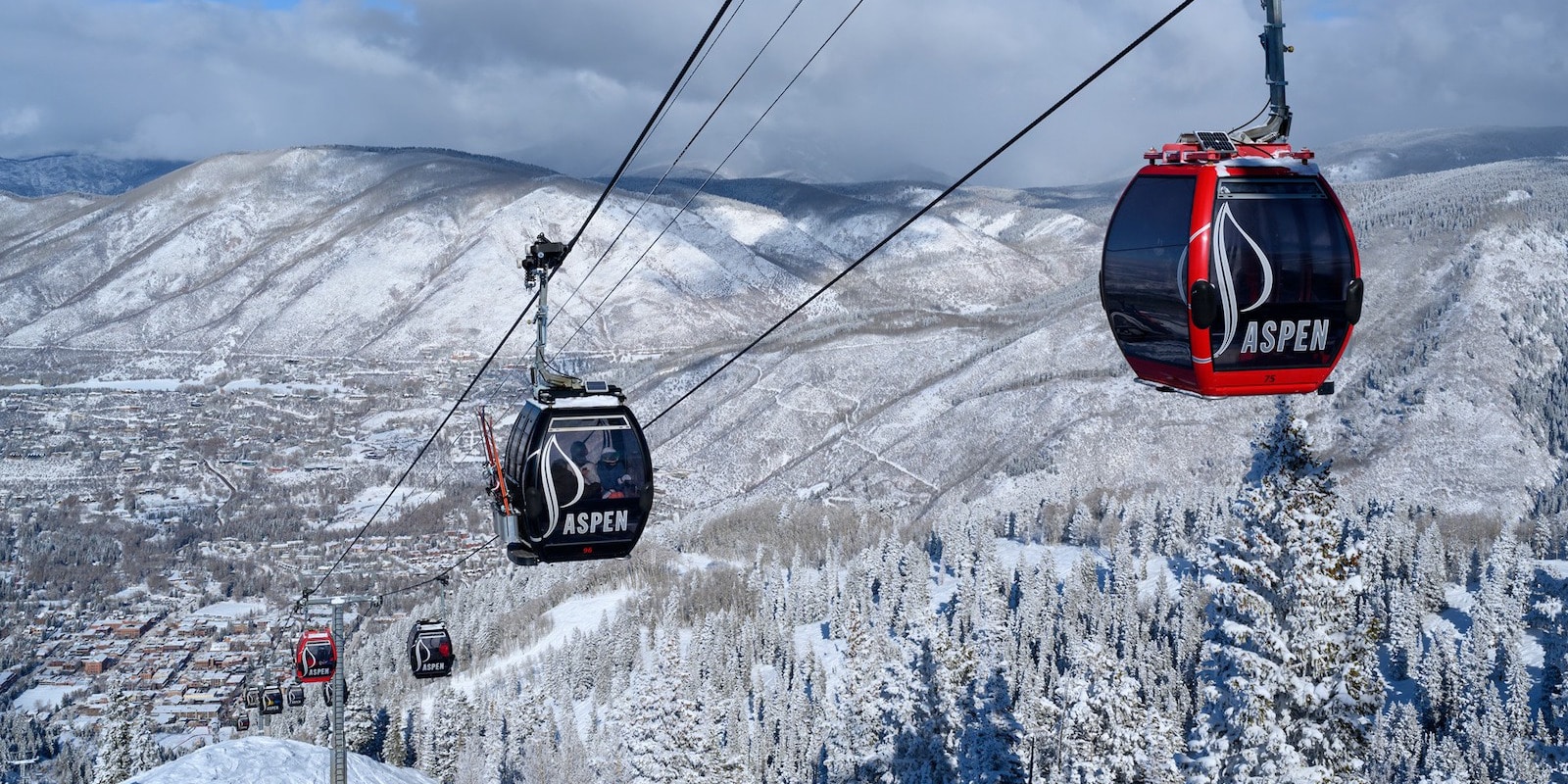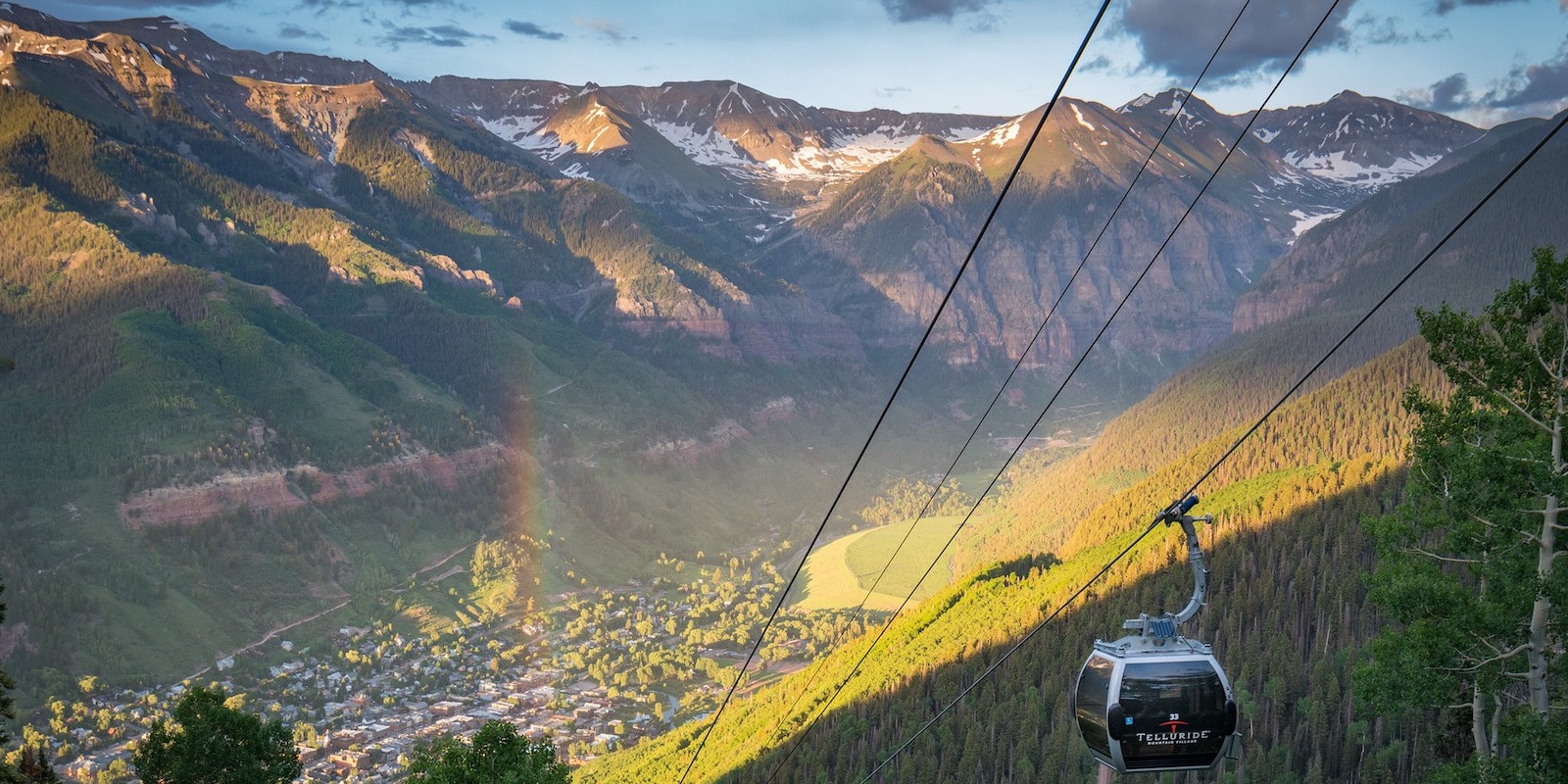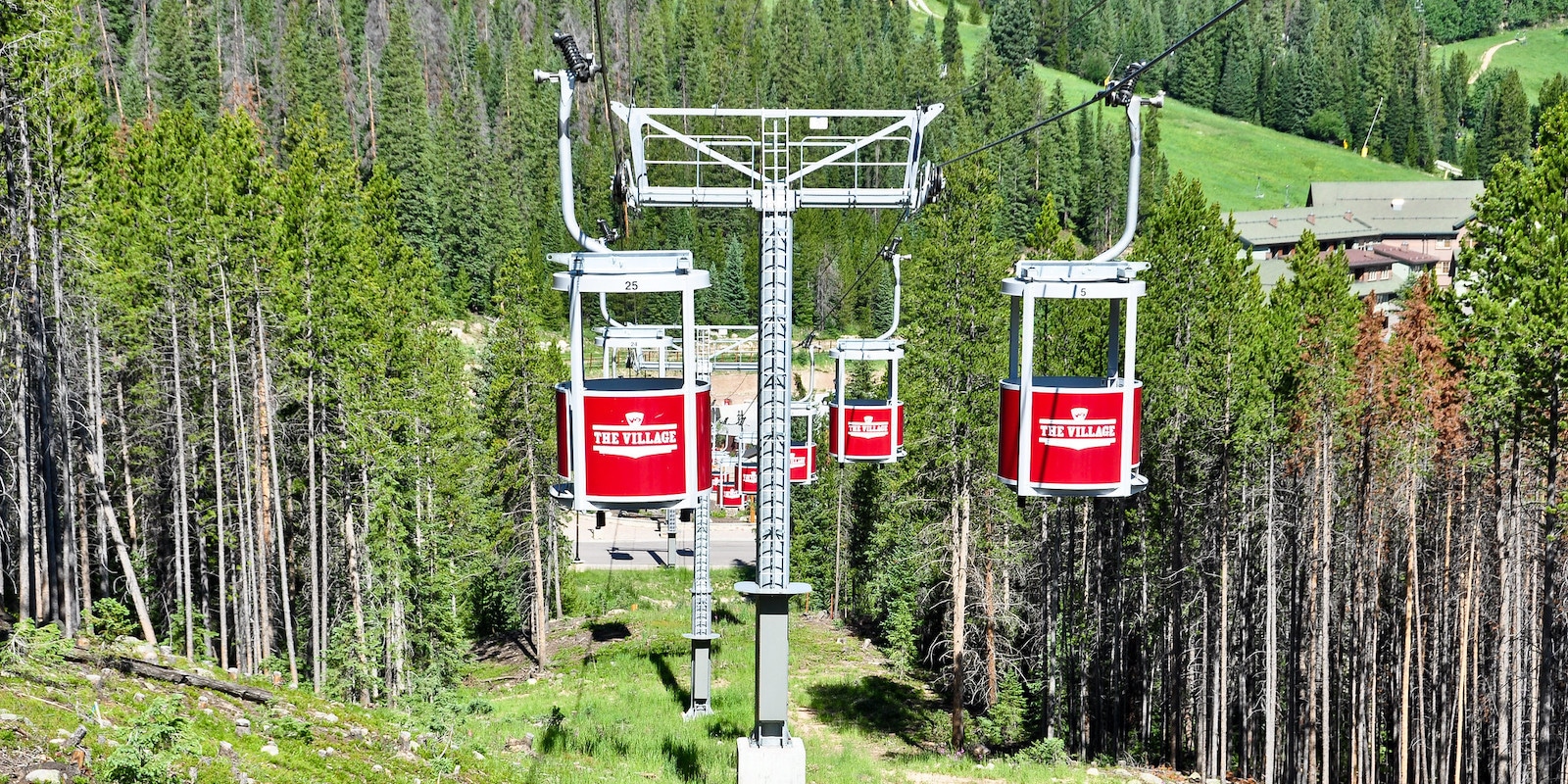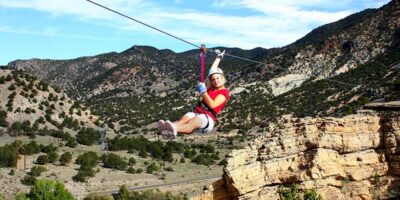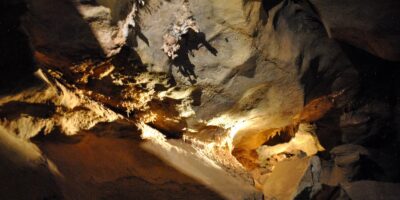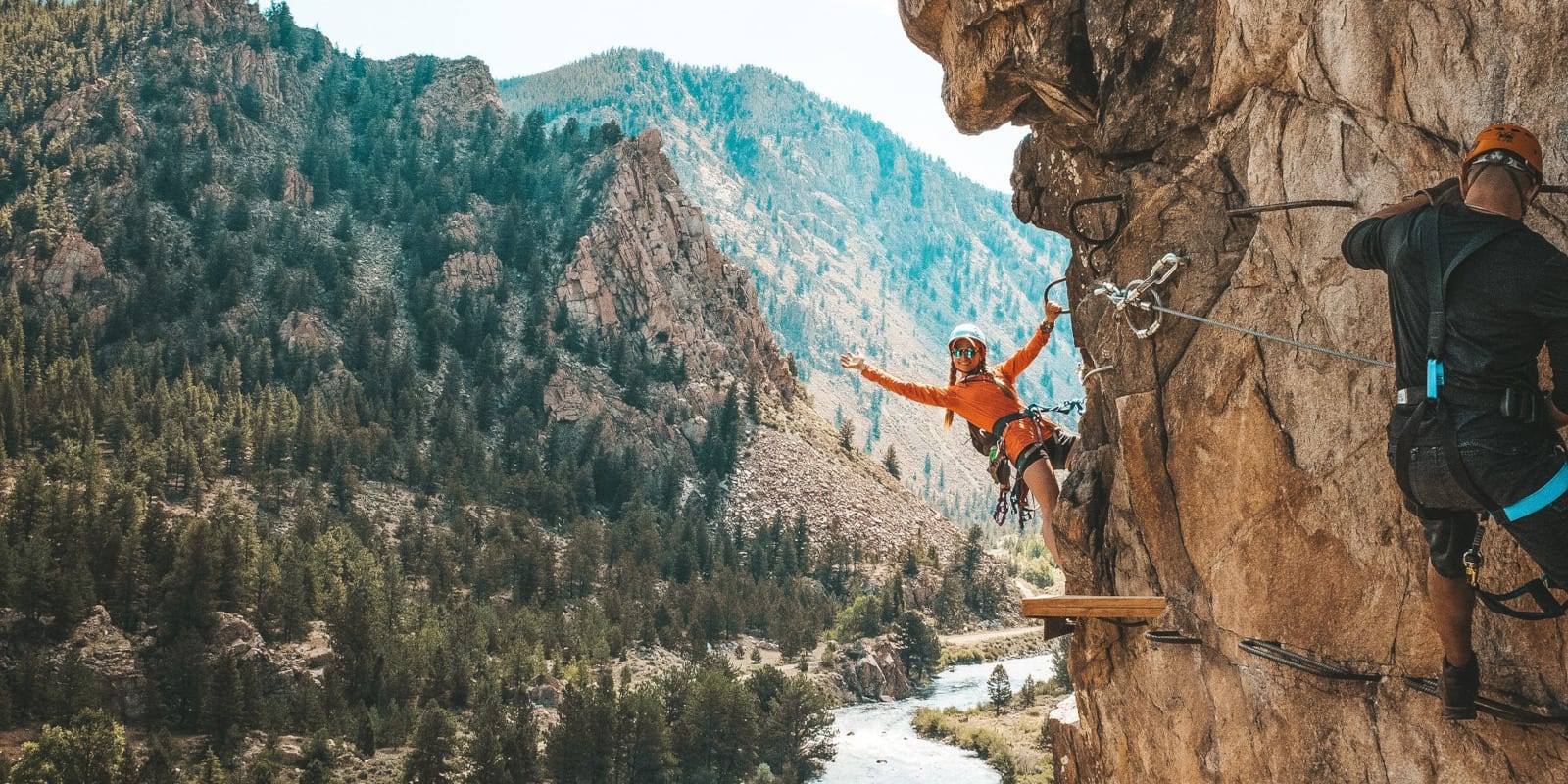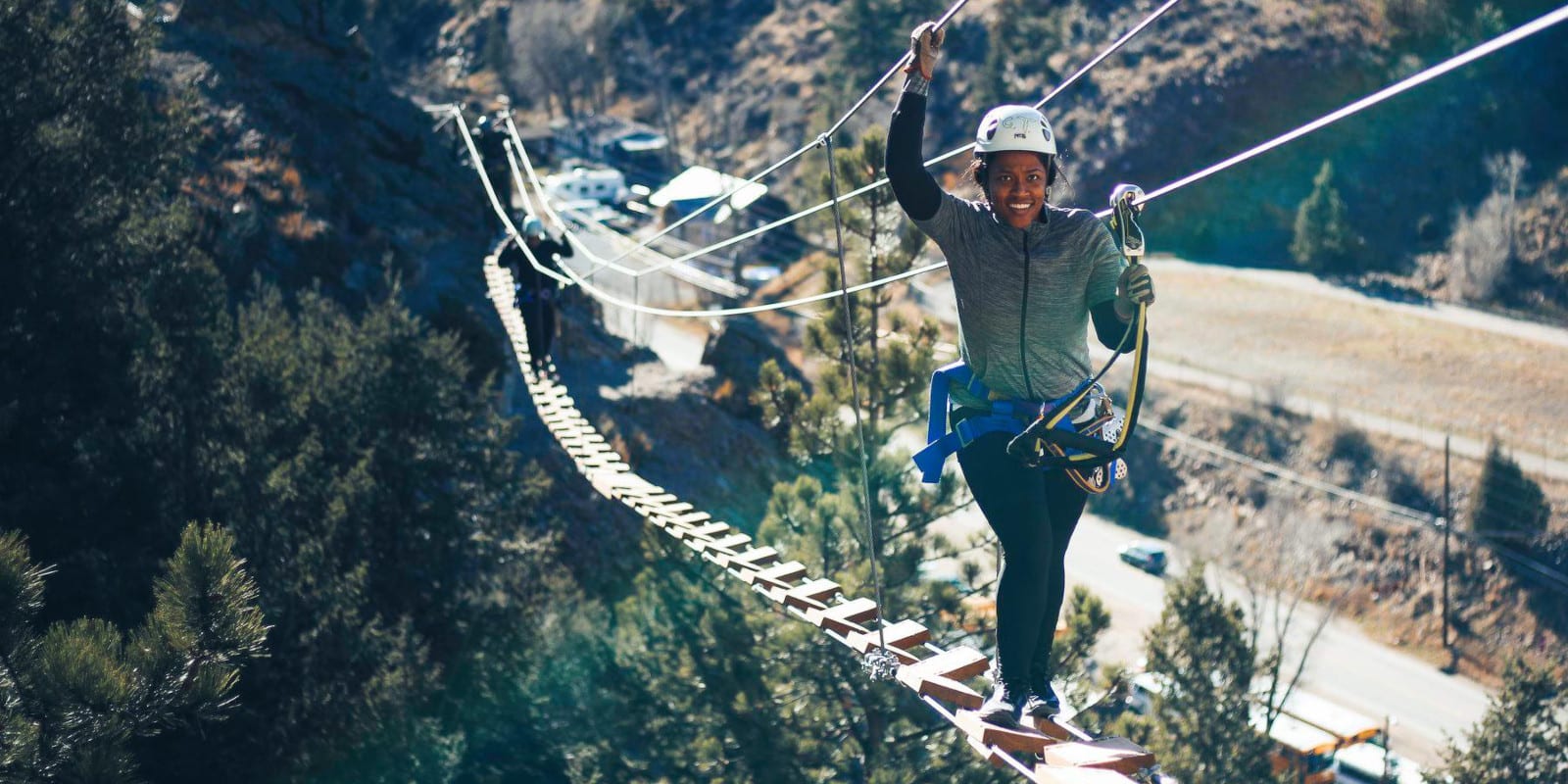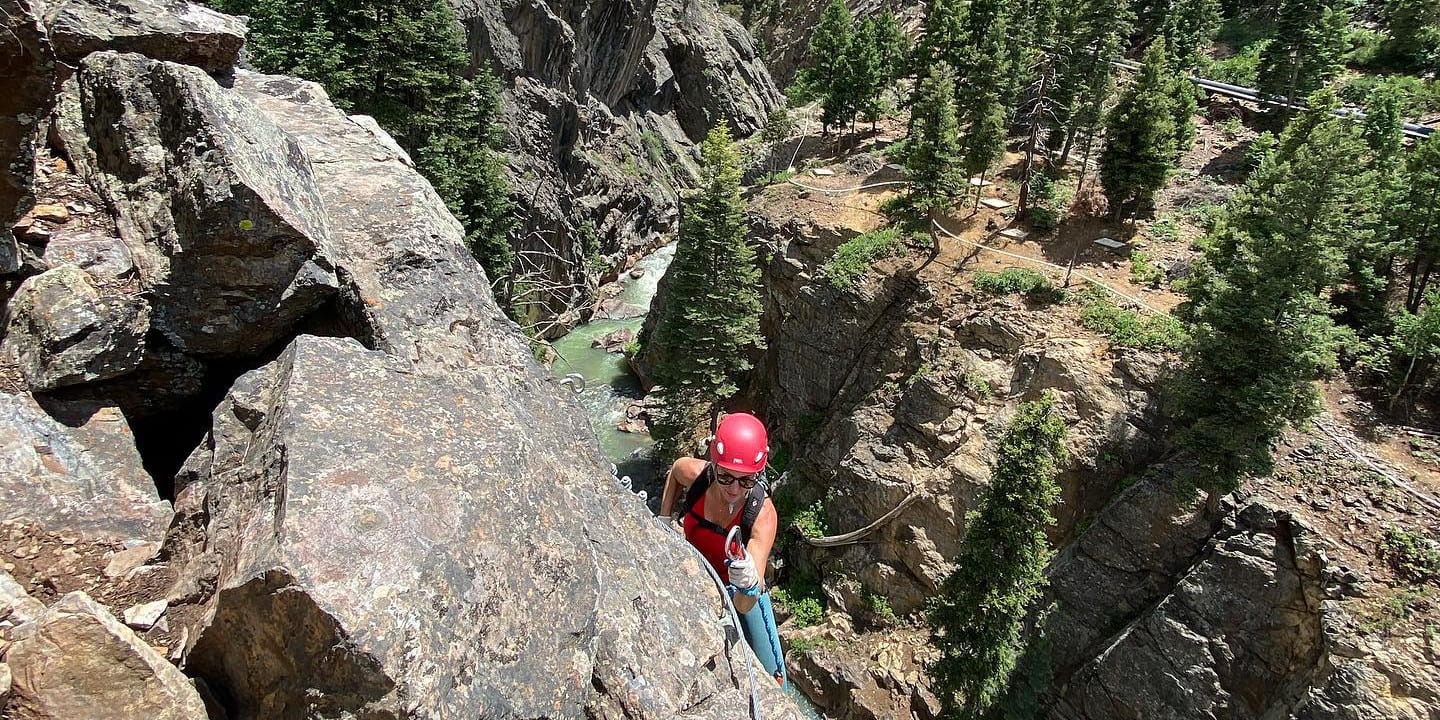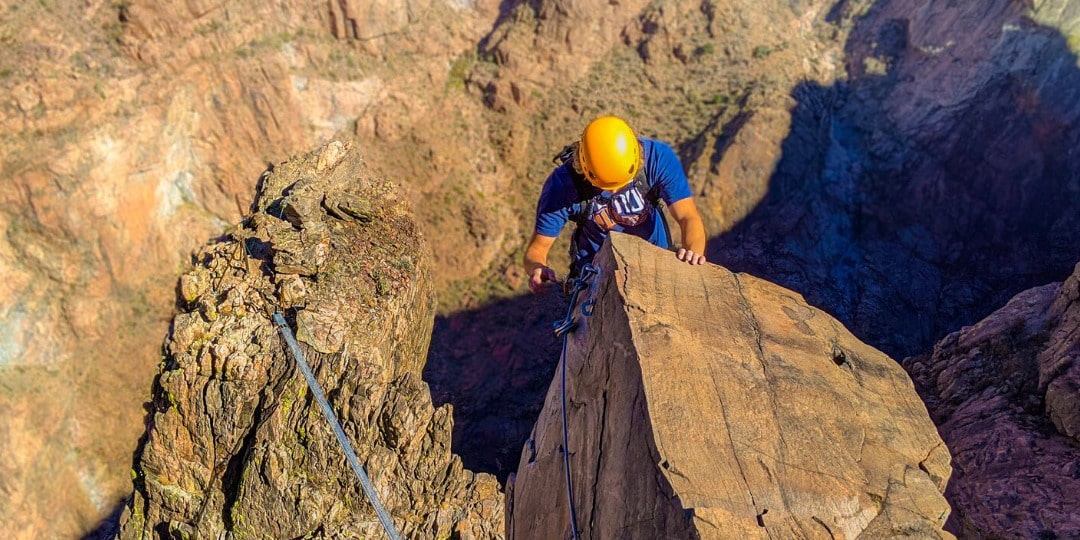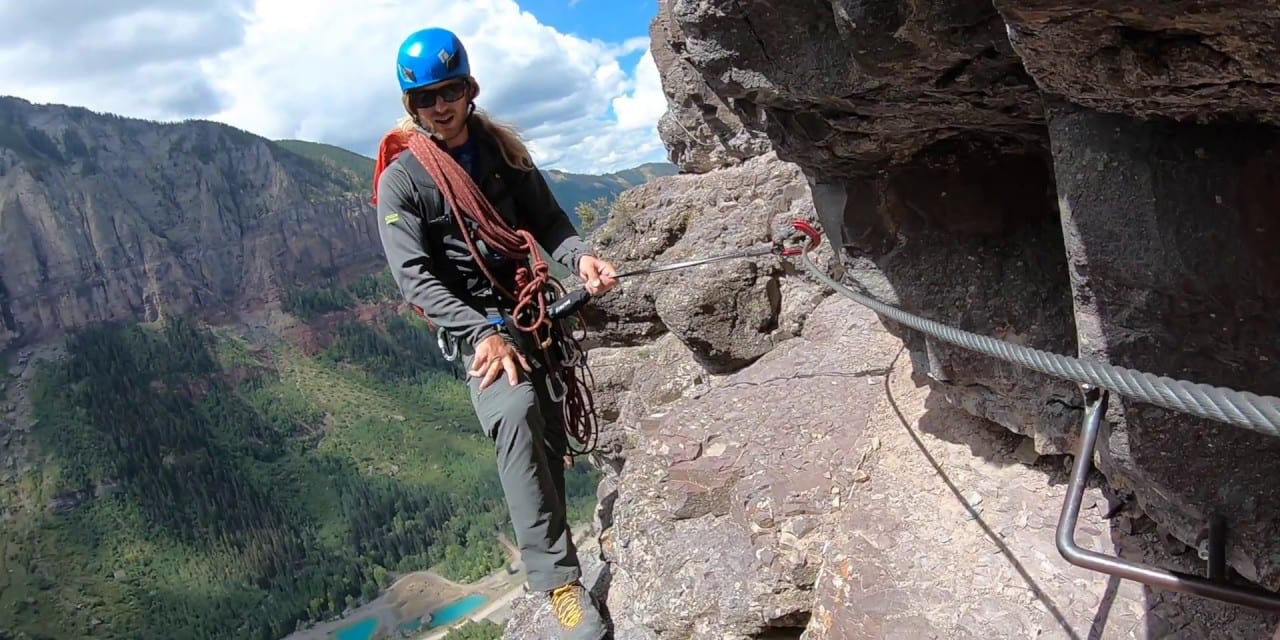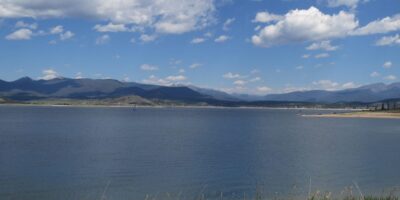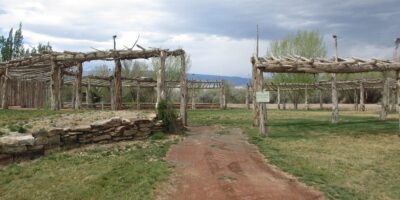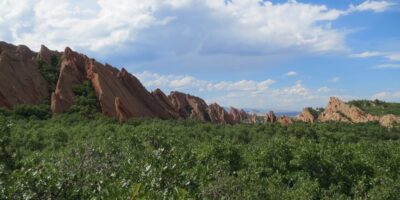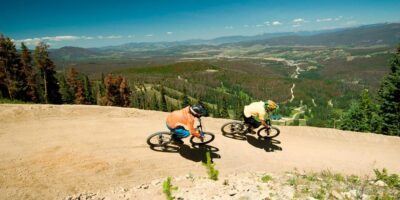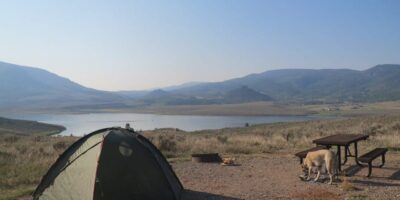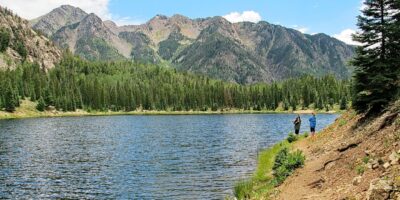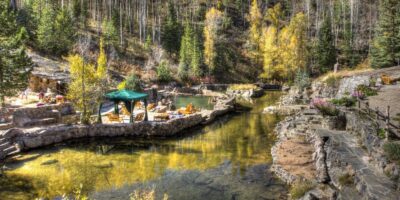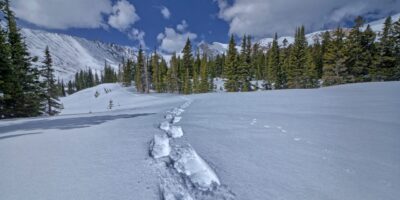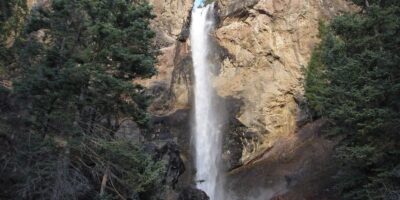You can hike nearly anywhere in Colorado, as it’s all pretty scenic. Some hikes lead you to the top of a snowy peak or through alpine valleys, while some pass spooky ghost towns and secluded hot springs.
List of Popular Hiking Trails
There are too many hiking trails in the state to name. Every city, state and national park has at least one, and that’s only a small fraction of what’s located throughout public land. Below are longer hikes, which can be done in sections such as a day hike, or a multi-day trek.
Featured Hikes
Gondola Rides and Chairlifts in Colorado
Take the easy way up and catch the view while hiking all the way down. These gondola rides and chairlifts are open to hikers throughout the summer months and winter months some of them welcome snowshoers. Trails at the ski areas will generally contain a mix of forests, meadows, and valley views.
Via Ferratas in Colorado
Minimal climbing experience is needed to traverse Colorado’s magnificence via ferratas. While they combine hiking and climbing into one vertically, hair-raising challenge, they’re typically fine for newbies to the sport. However, you’ll still need plenty of endurance and the ability to keep your fear of falling in check.
Guide to the Top Hiking Trails in Colorado
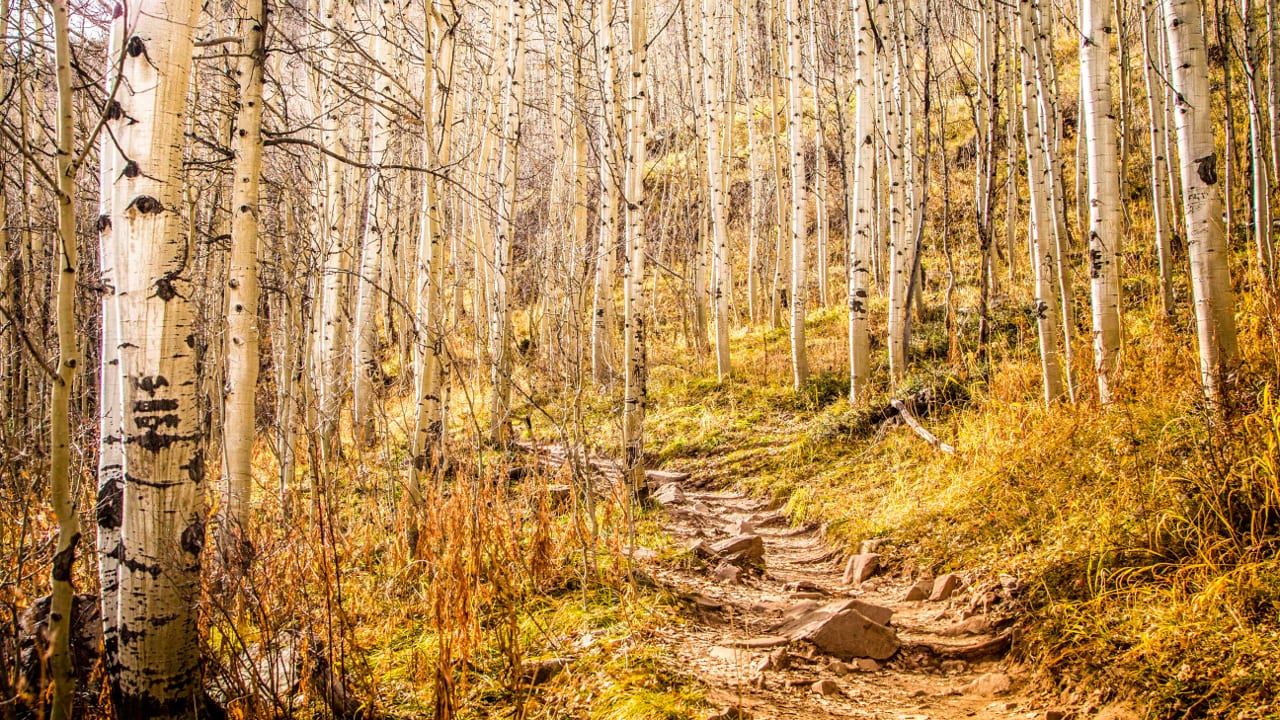
Colorado is a hiker’s paradise. From jagged 14,000-foot peaks to rolling forest hills, you can find it here. Remember to adjust for the elevation and prepare properly.
Summer is the most popular time of year to hike, though you will find die-hards scaling and (ice) climbing up over 14,000 feet. The spring snow has had a chance to melt off most of the trails by June, which is when locals and tourists flood the trails. Afternoon thunderstorms are most common in June and July, so always start your hike early, and turn back if you see signs of a storm rolling in.
Hiking trails in Colorado’s parks and wilderness
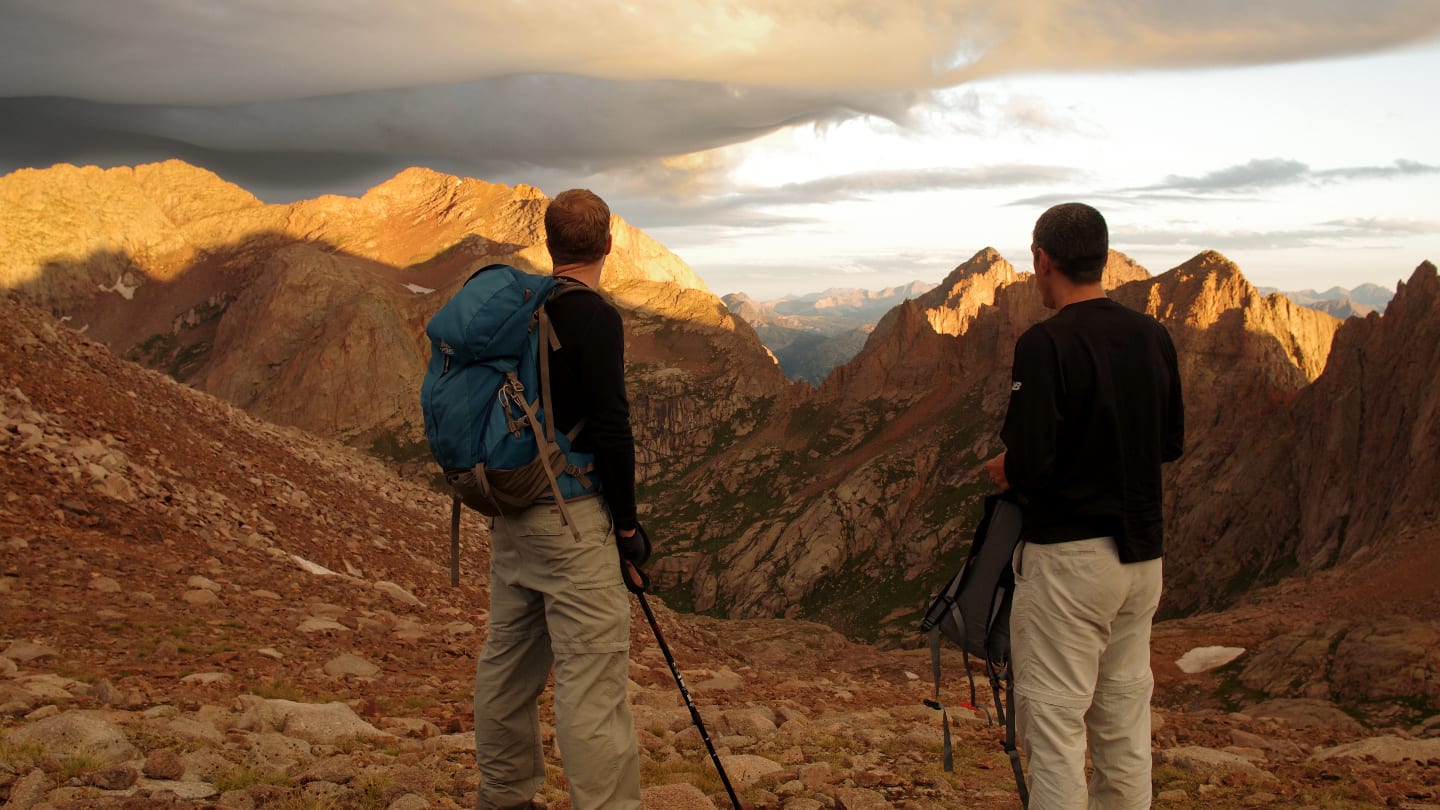
From quick lunch break treks to a more enduring adventure into the vast wilderness, Colorado surrounds you with hiking trails. Prep your backpack and take on an overnight hike. Or find something perfect for a morning triumph, so you’re back by dinner.
Local city and county parks provide an easy opportunity for a relaxing trek. National parks and monuments are great places for road trips and day hikes. All state parks offer a chance to stretch your legs and walk around too.
Hiking Gear Checklist
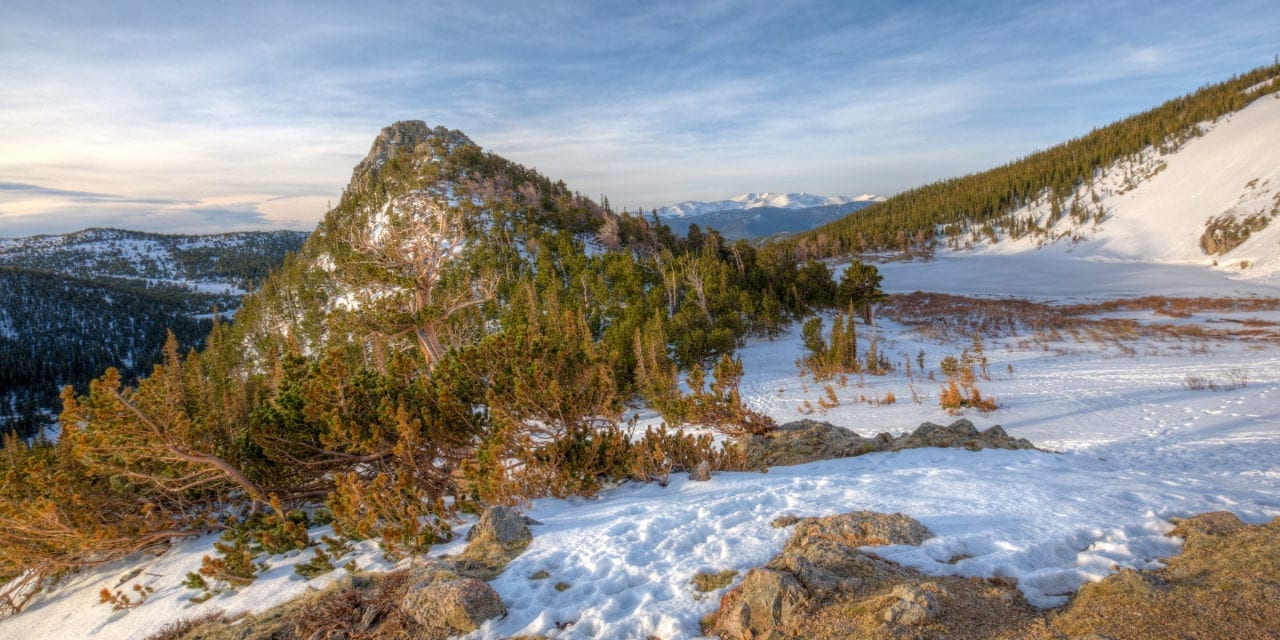
Depending on the hike length and difficulty, gear needs to change. On a short, quarter-mile hike, you’ll probably be fine with running shoes and a T-shirt. On longer treks though, you’ll need to pack smarter.
Always dress in layers so you can remove longer sleeves while you hike uphill and add them on again when you need them. It’s smart to have a lightweight rain jacket that you can compress inside your pack. It can double as a layer of warmth when needed. Most importantly, bring a friend, and tell someone else where you’re going and when you expect to be back.
Here is a simple hiking checklist:
- Hat and sunglasses
- Water and food
- Knife, compass, map
- Camera, cell phone
- Sunscreen, lip balm
- Poncho or rain gear – a heavy-duty garbage bag is excellent
- Cold weather gear – gloves, jacket, pants
- Weatherproof matches and fire starter
- Flashlight and spare batteries
- First aid kit
- Waterproof zip-lock bags for select items
Hiking Tips
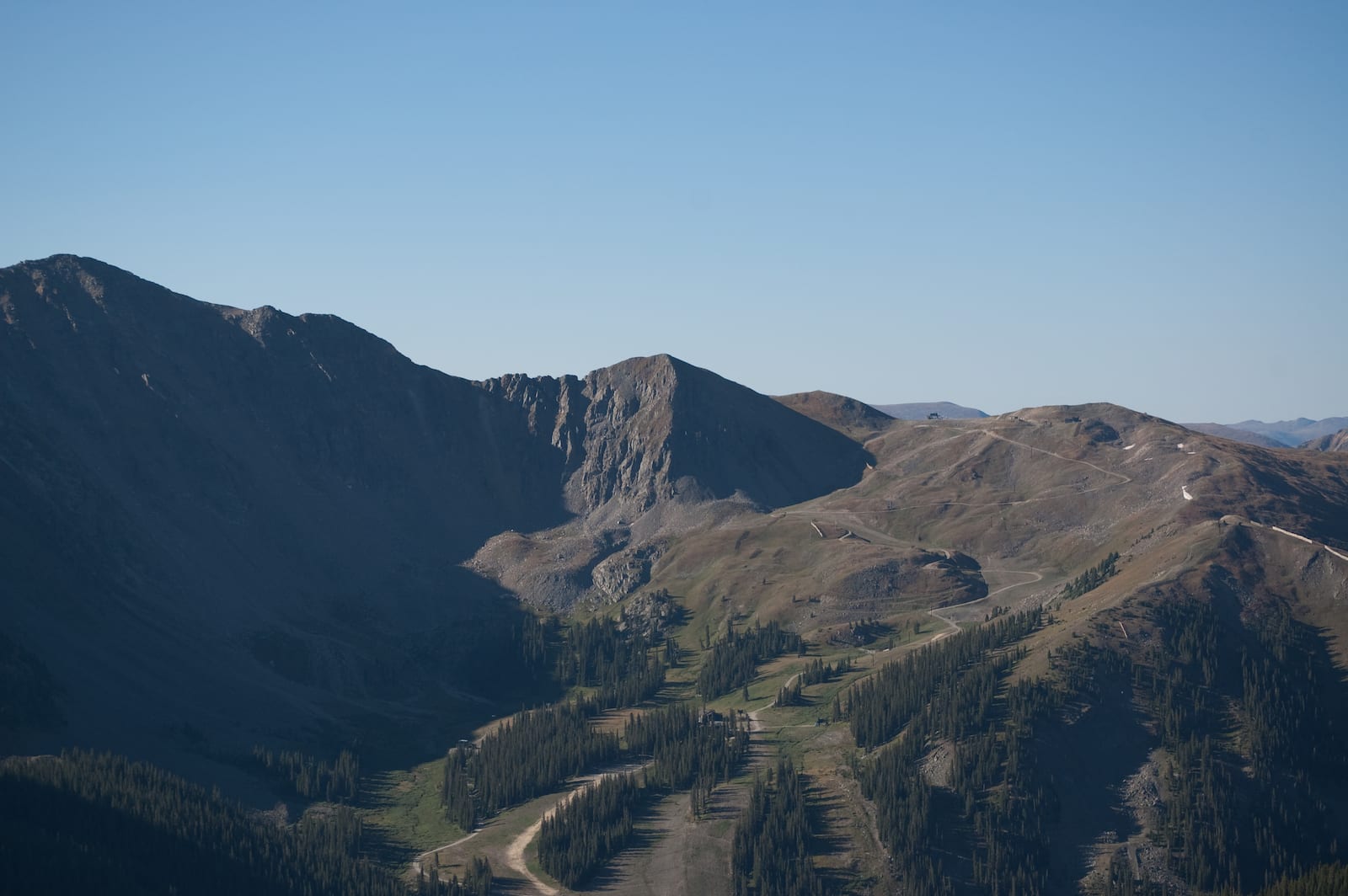
Any experienced hiker would tell you – there’s no shortage of incredible trails in Colorado. From relaxing for a couple of hours on the Bear Lake Trail to the demanding 8 miles around Pyramid Peak, we have a little something for any hiker’s “palate.” Let’s explore the most prominent ones and provide some tips on preparation, depending on the difficulty level.
Just as ski slopes have different difficulties, hiking trails vary in difficulty. Before you strike off on a hike, be honest with yourself about your physical strength and ability to handle the altitude. ALWAYS be prepared with layers of clothing, plenty of water, and a first aid kit for safety.
Bring extra water – This one is kind of obvious but does deserve stress for Colorado hikes, especially if you are passionate about hiking because there are many smaller trails intertwined with the “bigger” ones. So, it’s good practice to be prepared for the spontaneous “hey, let’s try this trail” moments that may overtake you.
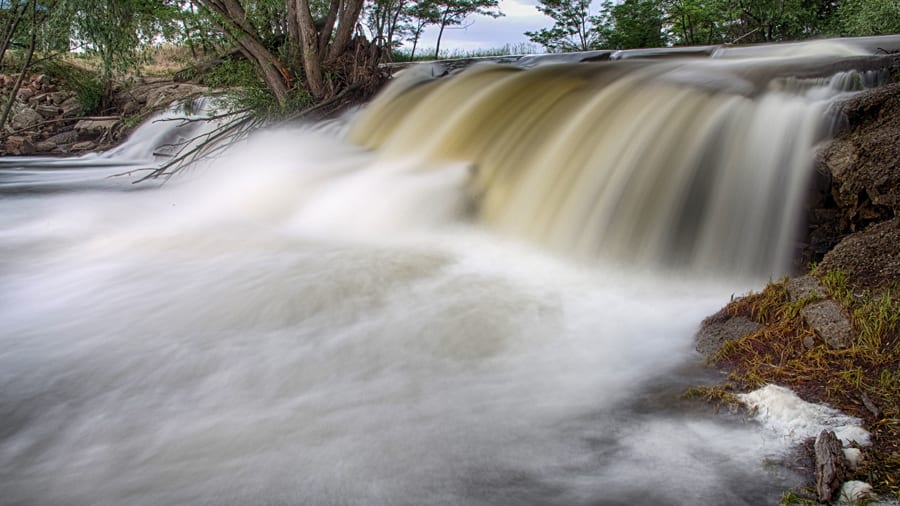
Generally, a good rule of thumb is 32 oz of water for every hour. Before hitting the trail, take a moment to look at the maps assess the chances of straying off the trail, and plan your water supplies accordingly.
Overnight hikes – plan for some chilly nights and steep climbs – If you’re undertaking a more serious multi-week hiking project, like The Colorado Trail, it calls for more serious planning. In terms of temperature averages, Colorado is 42nd (looking at summer temperatures) and 39th (year-round averages), so you can expect some crisp nights.
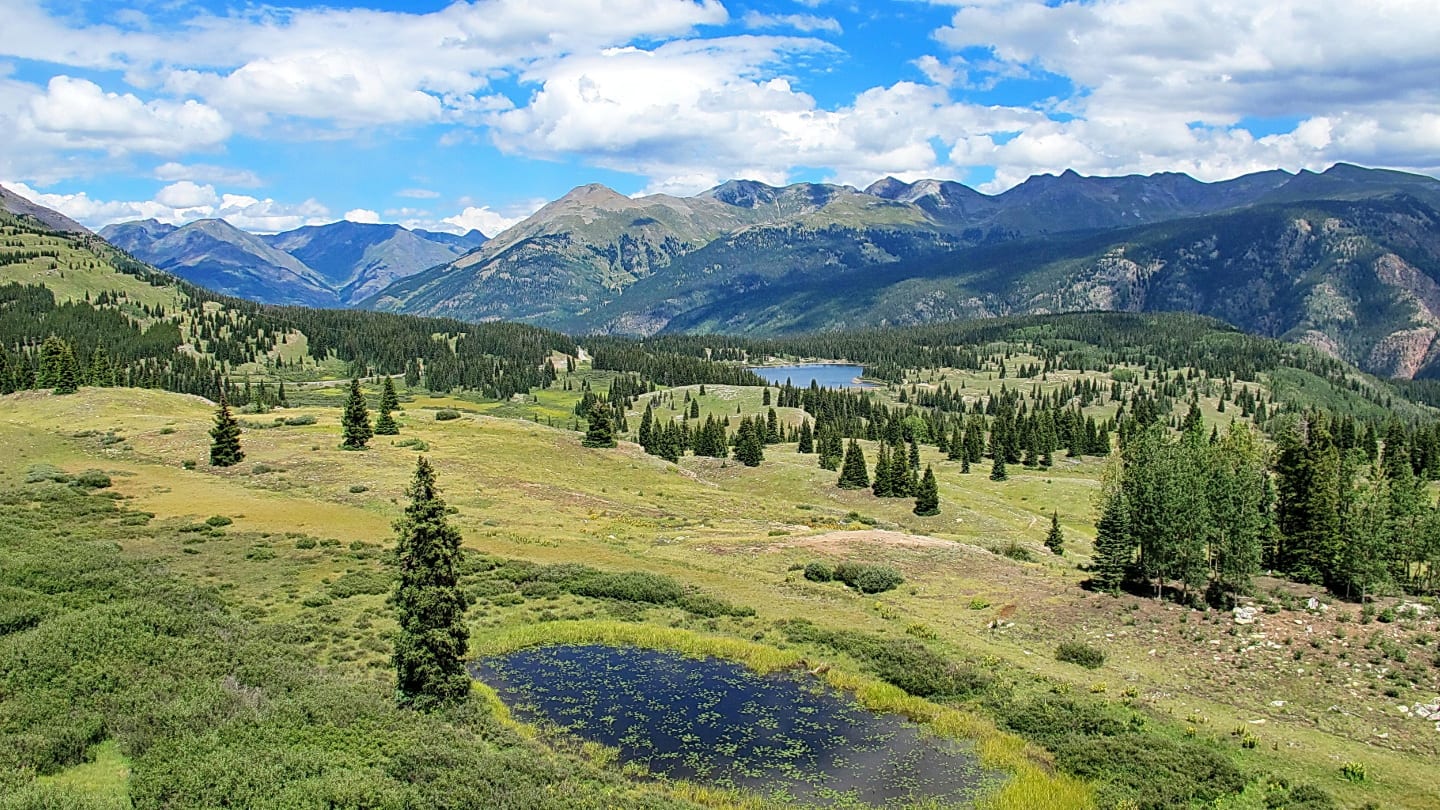
The two things we’d like to stress here are smart packing and meal planning.
Good boots – For long-distance hikes, two items that trump everything else are well-chosen boots and an air mattress/sleep pad. The latter will ensure you have a peaceful slumber under the Colorado skies and wake up rested and the former will allow you to spend that energy wisely.
When it comes to boots, we’d say that PU (polyurethane) hiking boots paired with quick-drying socks (avoid cotton) will be the sweet spot between breathability, sturdiness, and element isolation.
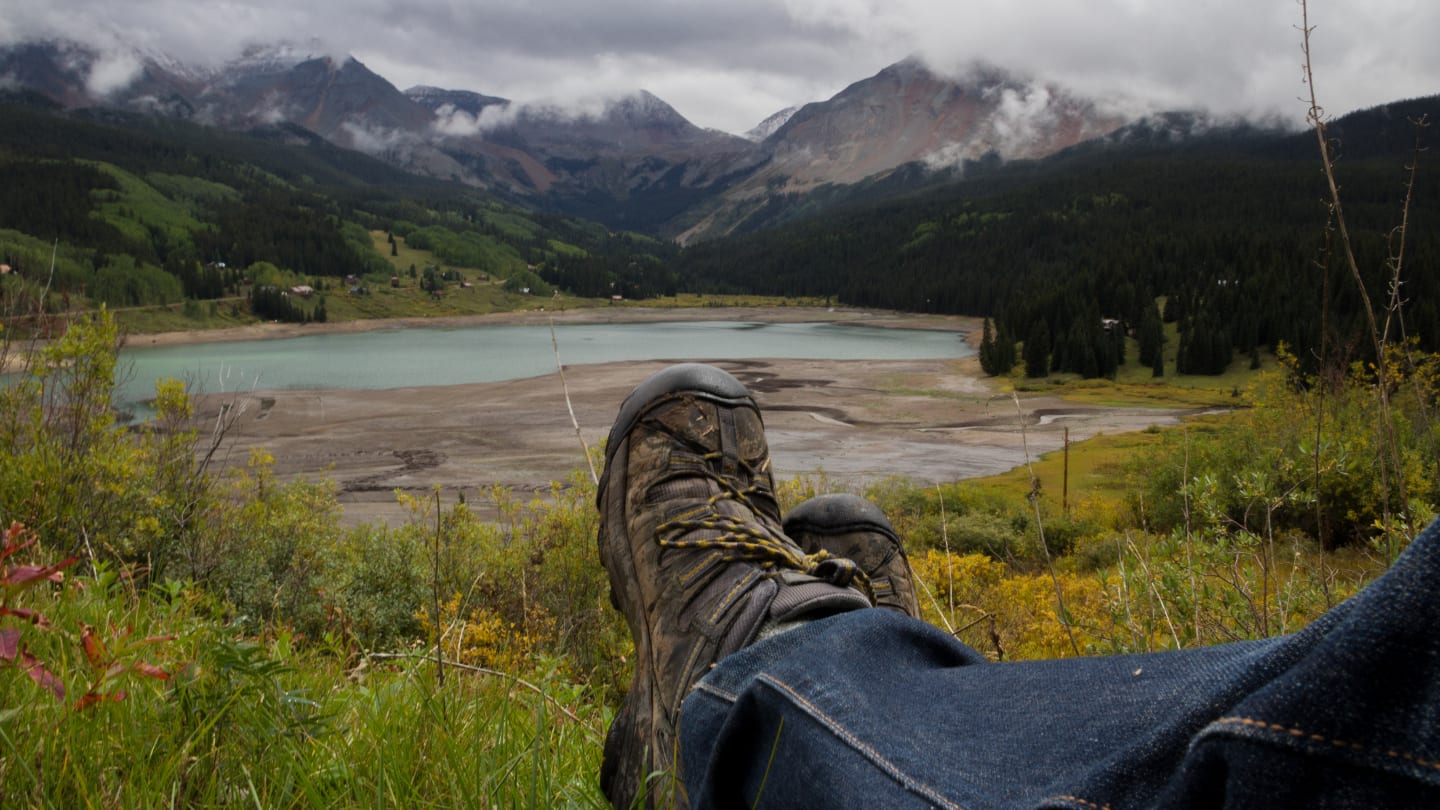
Whatever boot you choose, make sure that it’s well broken in before hitting the trail. This will keep blistering at bay. New boots, moody weather, and steep trails don’t mix well.
Small air mattress with a high R-rating – A good, versatile air mattress that won’t be much of a burden during the day but, come night, will do a good job at protecting you from the elements. We could go into the nitty-gritty of temperatures for specific trails and the R-ratings of the air mattresses, but it’s beyond the scope of this guide.
The rule of thumb would be to find the balance between the weight and thickness of the air mattress and temperature properties (R-rating). Today, the better ones can weigh as little as a few ounces, pack as small and thin as a water bottle, and still be rated for the kind of moody weather you can expect on the Colorado Trail. We think it’s generally better to pack a thin air mattress for a simple overnight hike, especially since you can find them with top comfort and support.
Don’t let the bugs or (God-forbid) bears bite – If you’re hitting the Rocky Mountain trails in early summer, you’ll want to pack a bug-repellent. Bugs and mosquitoes are mostly gone by August.
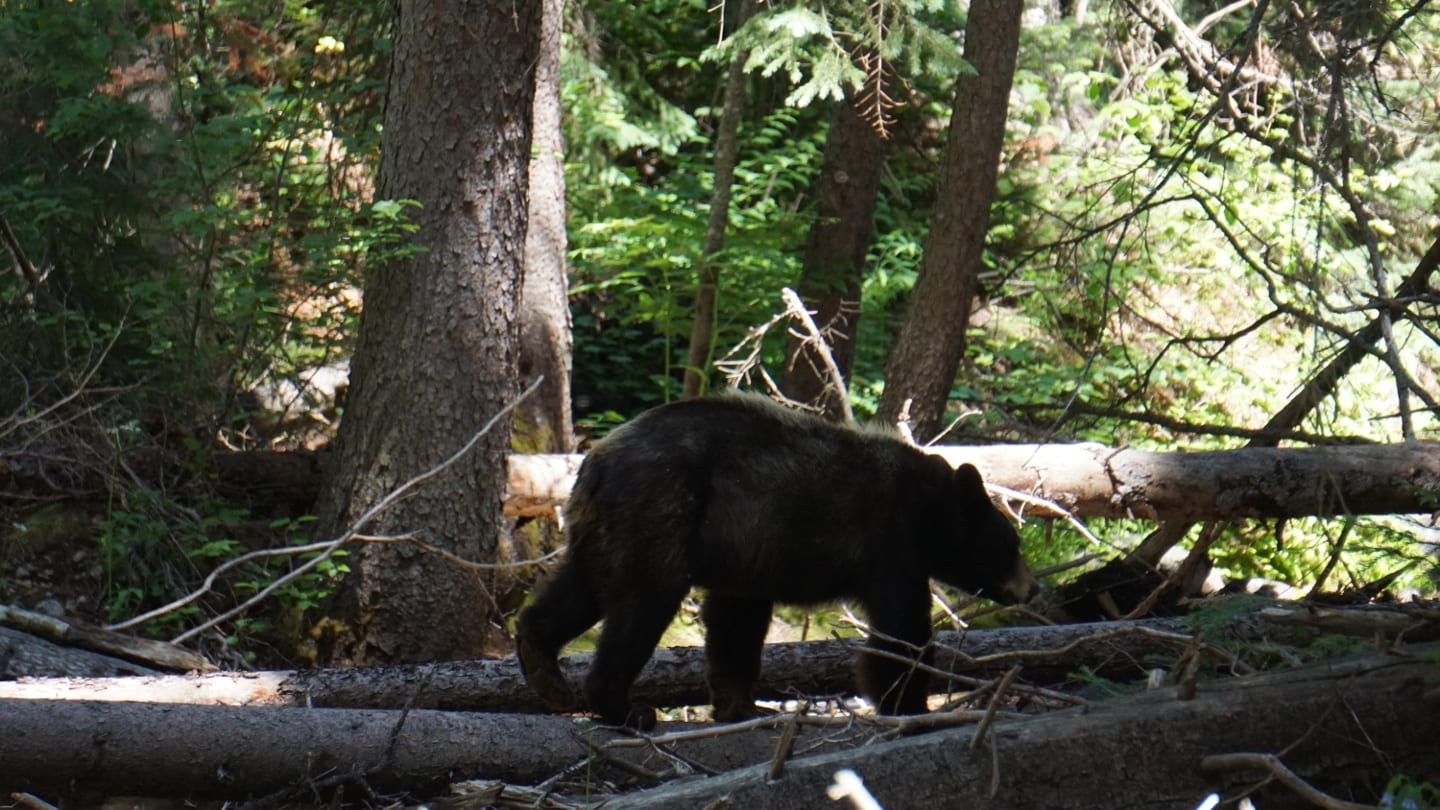
On a more serious note, while you might see a black bear on the trail, they tend to keep to themselves. Nevertheless, if you’re cooking, it’s smart not to do it in the same place where you’re setting camp for the night. Cook, eat, move a few miles, and set camp.
The FAQ of the COT website covers pretty much everything you need to know about the trail, including general hiking tips.
Easy Day Hikes
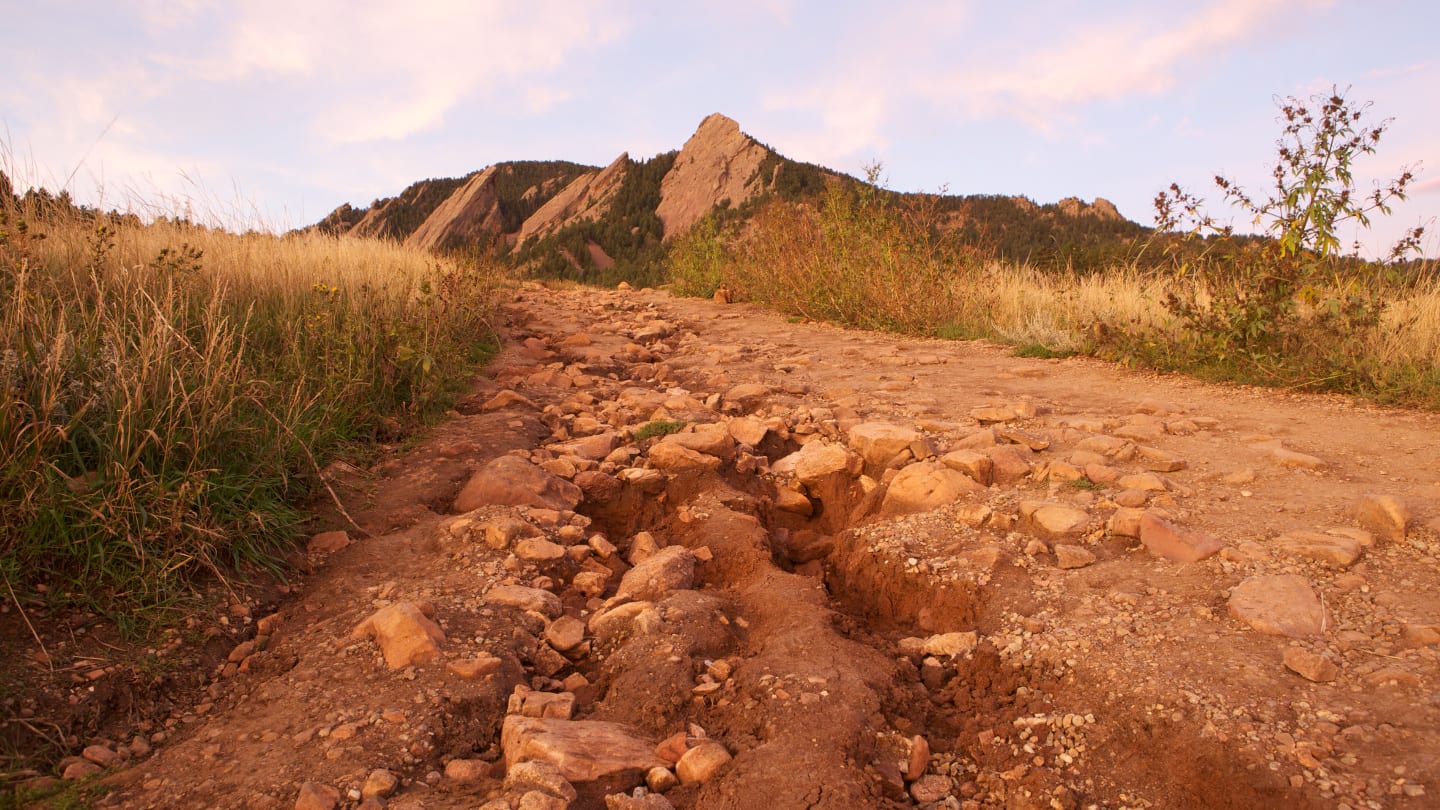
Day hikes vary from early morning strolls to 16-mile treks with several altitude changes. The trail you choose will be based on your stamina and objective. For a day hike, you will usually pack plenty of water and a sandwich (or two). Some protein bars are also a good idea, in case your hike stretches past the noon hour into the afternoon.
Most day hikes range from 4 to 8 hours. The significance of a day hike is that you can be back in your campsite or hotel room by dark.
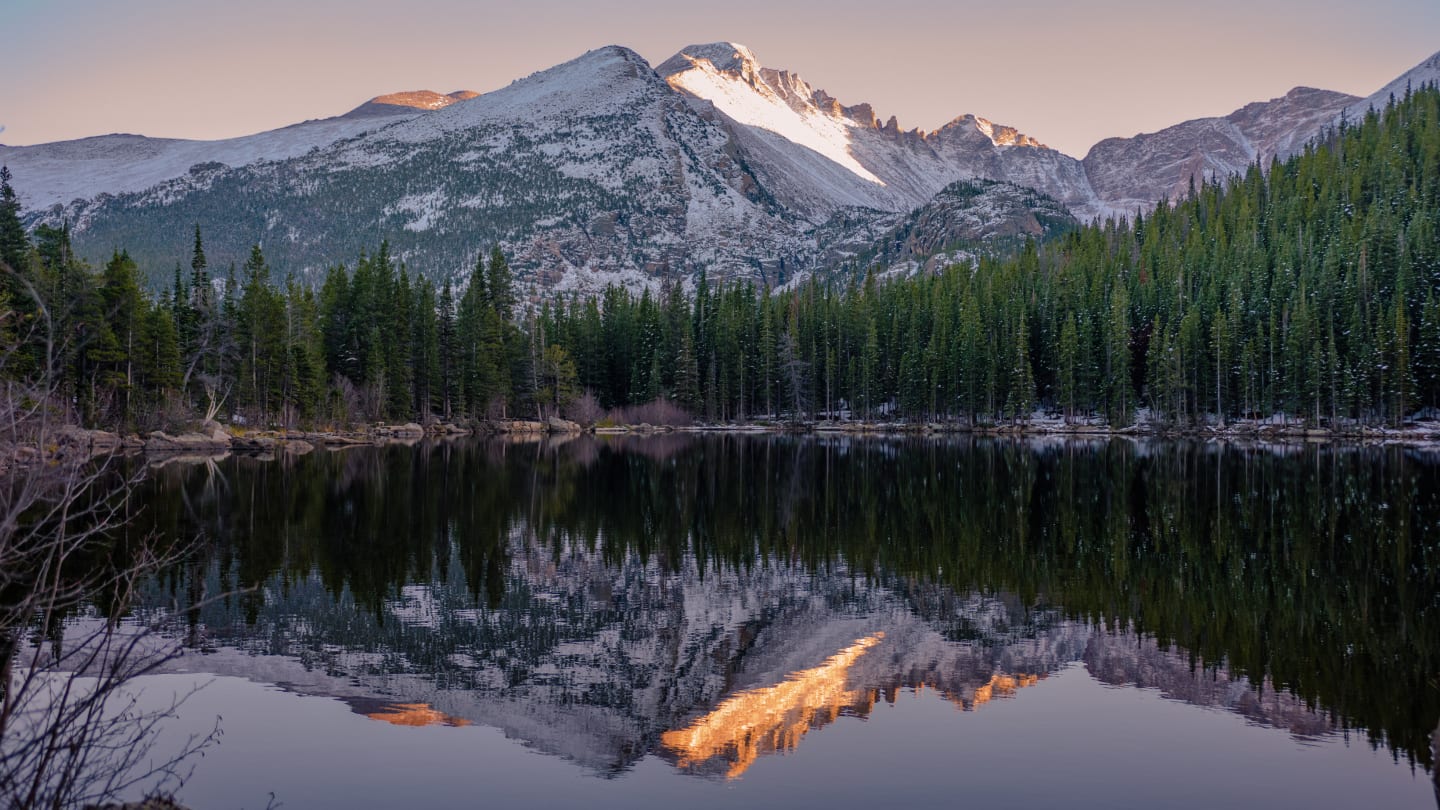
Bear Lake is an easy trail that you can do in a couple of hours. The trail has some climbing up steep inclines but is well-traveled and a maintained path. You’ll enjoy the beauty of this walk and get acclimated to the altitude at Bear Lake. It’s a little over a mile. The lake is in Rocky Mountain National Park (RMNP), near Estes Park and Grand Lake.
The Chautauqua Trail near Boulder takes you through a beautiful meadow. The round trip is a little over a mile but, if you’re feeling adventurous, take the Bluebell-Baird Trail in addition to the Chautauqua. It will add 2 miles to your round trip. Boulder is a hiker’s heaven and there are many more interesting trails in the area – you can see some of them in a guide we published a while ago here.
Moderately Hard Day Hikes
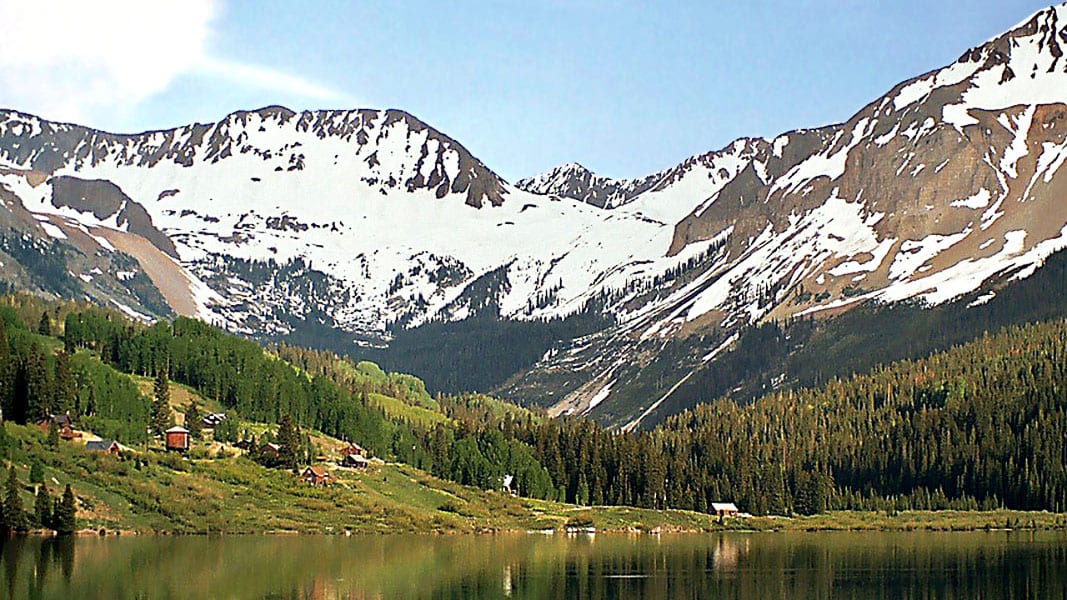
Lizard Head Pass ranks in the moderately hard category because it is 7 miles long. The pass leads to Lizard Head Peak, which is a nearly vertical volcanic pipe. Located outside of Telluride, you get the chance to acclimate to the higher altitude and view some impressive Coloradan scenery.
Back to Rocky Mountain National Park, where we will find the Lion Lakes day hike. This is 12 miles, round trip, but don’t let that scare you. You take the Wild Basin Trailhead and Thunder Lake Trail, then follow the lakes, waterfalls, and streams. This is a smooth and mostly flat hike.
Hard Day Hikes
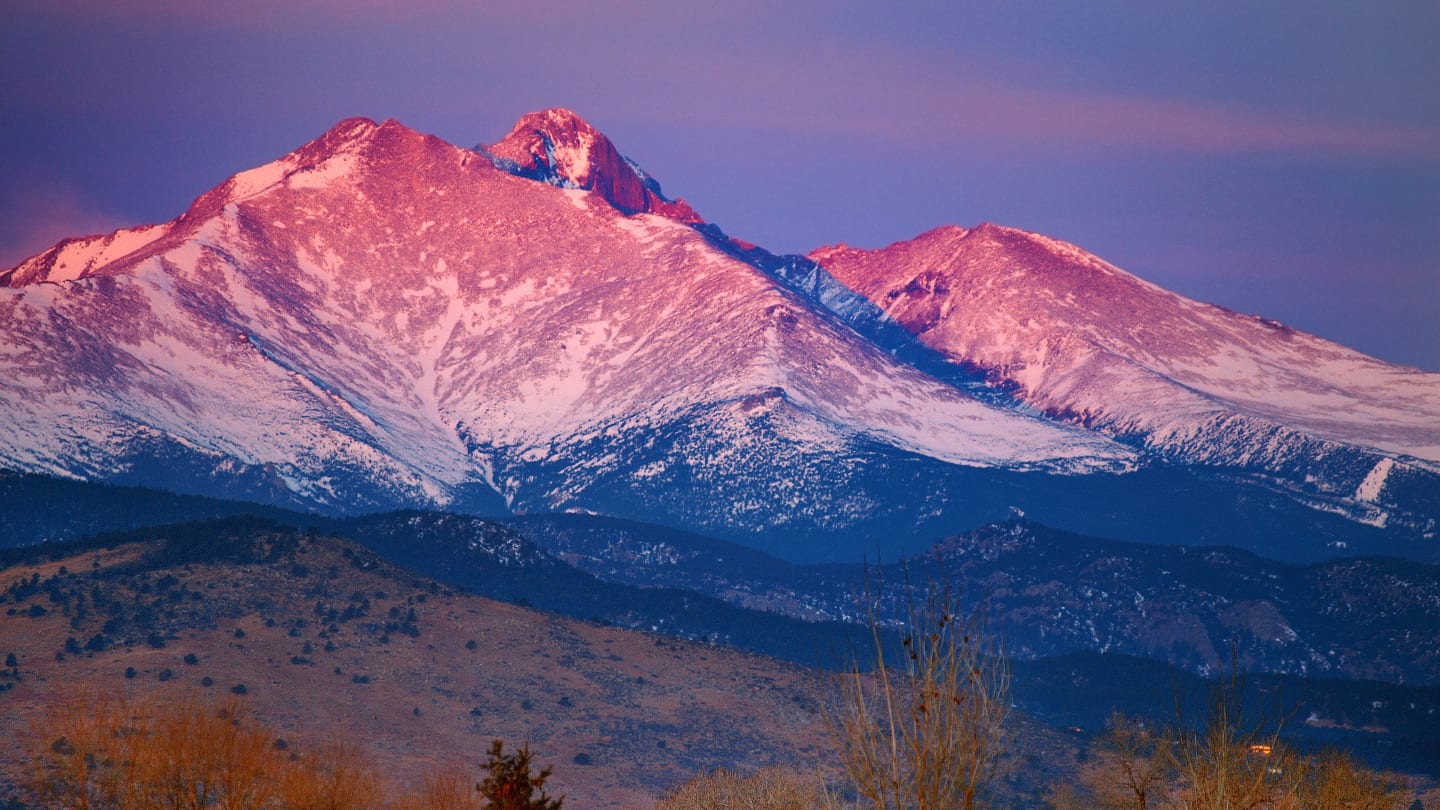
Longs Peak, also in the RMNP, is one of the most-hiked and least-finished trails in the state. About 15,000 people a year attempt to reach the peak and only half of them make it. It’s only 15 miles, but you gain 5000 feet in elevation. Even though the trail is well-marked – be prepared for changes in the weather.
If Longs Peak was a breeze, then try Pyramid Peak. Located near Aspen, you might want to take a rope and harness with you. It’s only a little over 8 miles, round trip, but it will take you at least an hour per mile.
Top Backpacking Hikes
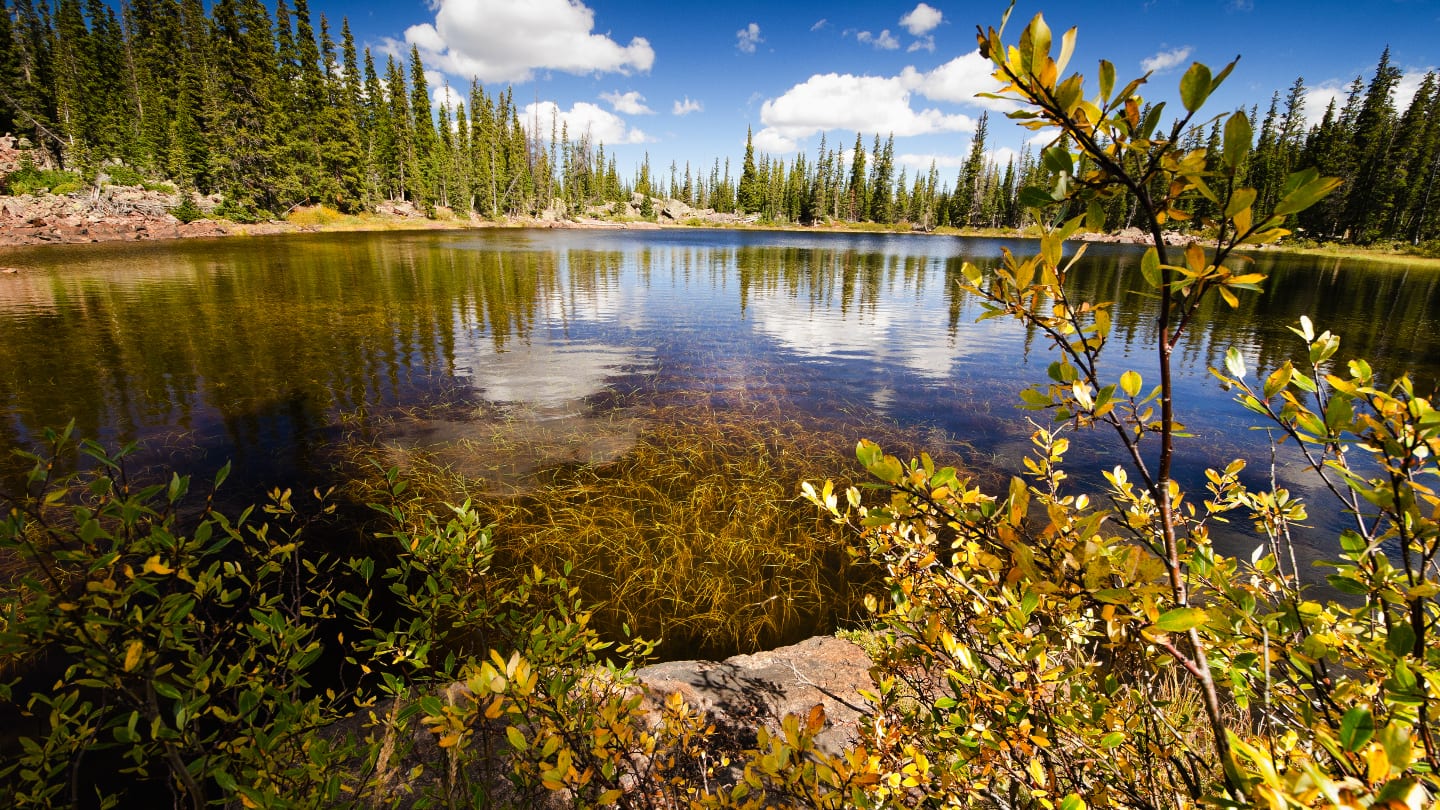
For a more rugged experience, some prefer to pack into the wilderness. Backpacking requires more planning and better equipment. Packs can weigh up to 50 pounds (which is over the comfort limit) and include foul weather gear, food and food preparation tools, and bedding.
Ideally, they are never more than 20 percent of your body weight. Day packs should be 10 percent. So a 200lb person could have a 20 to 40lb bag depending on the length of the hike.
If you’ve ever strapped on a backpack for any length of time, you’ll know that every pound matters. Pack smart! Less is more. When buying your gear take into consideration the weight of each item and it’s worth paying a little more for fewer ounces/pounds, as they add up.
The hiker may backpack to their campsite and set up camp for several days while exploring the area, or he or she may hike to a new campsite every day. Read our feature on multi-day backpacking hikes in Colorado.
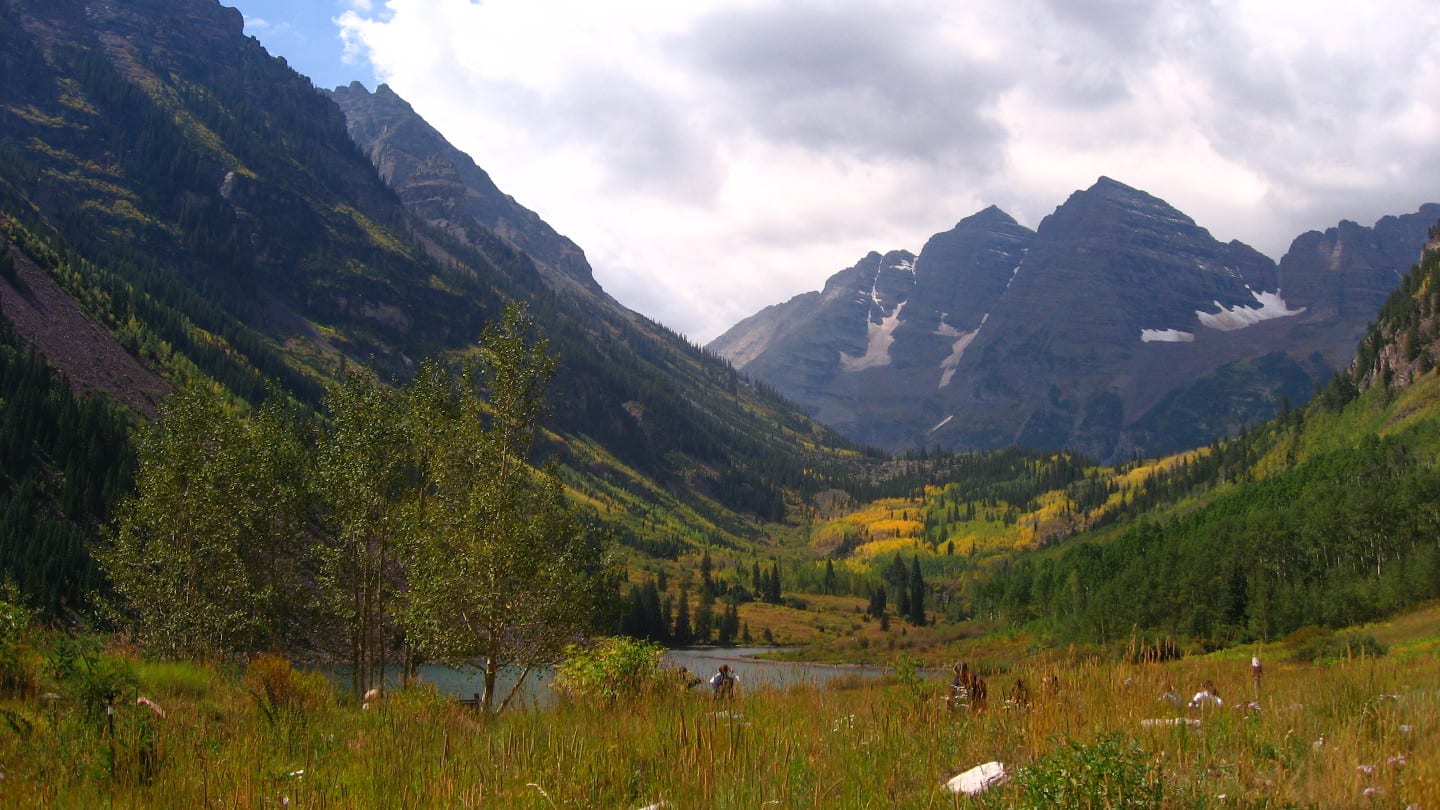
Two of the most notable, long-distance hiking trails in Colorado:
Colorado Trail (COT) – 486-mile trail from Waterton Canyon in Littleton to Durango; built by mostly volunteers, this outstanding route connects the foothills, near Chatfield Reservoir with Southwest Colorado. It passes through 7 national forests, 6 wilderness areas, and 5 major river systems.
Continental Divide Trail – 3,100-mile national trail through the Rockies from Canada to Mexico. It passes through Colorado for approximately 800 miles. It crosses paths with the Colorado Trail several times.
Once again, Rocky Mountain National Park tops the list with its Continental Divide Loop. This is a 25-mile hike that starts at Grand Lake. You’ll hike switchbacks up to Flattop Mountain at just over 12,300 feet, where you’ll see the Continental Divide. After following the Continental Divide Scenic Trail, you go through the Tonahutu drainage and the Tonahutu Creek Trail until it loops around to your starting point.
Surprise Lake Loop and Eaglesmere is a great hike to 10,400 feet elevation. It’s in Eagles Nest Wilderness, and you’re surrounded by aspens and spruce. If you include Upper Cataract Lake in your hike, you’ll get nearly 15 miles. This could be classified as a hard day hike, but you’ll appreciate the scenery much more if you plan on camping out at each of the beautiful lakes.
As you can see there’s a little something for any hiking level or taste. The trails we listed here barely scratch the surface. It’s an impossible mission to cover all the gems hiding in the rigors of Colorado. There are incredible hiking trails everywhere.
Related Activities
Most of the activities on this site can be combined with hiking in some way. At the end of the day, a campsite is a wonderful place to unwind. Some hikes lead to remote fishing gems, while others begin by them. Many of the snow-fueled waterfalls require a short hike to reach.

